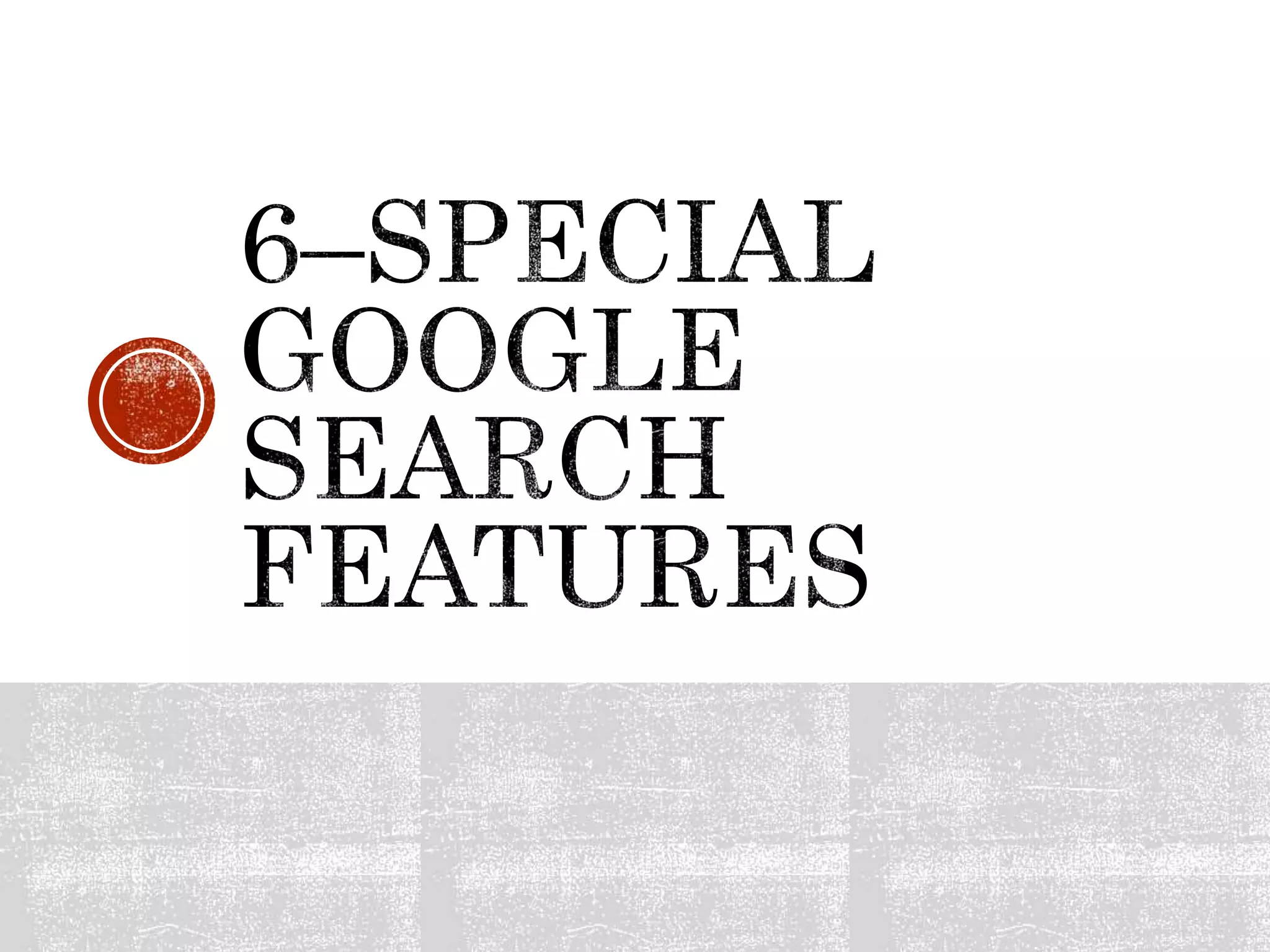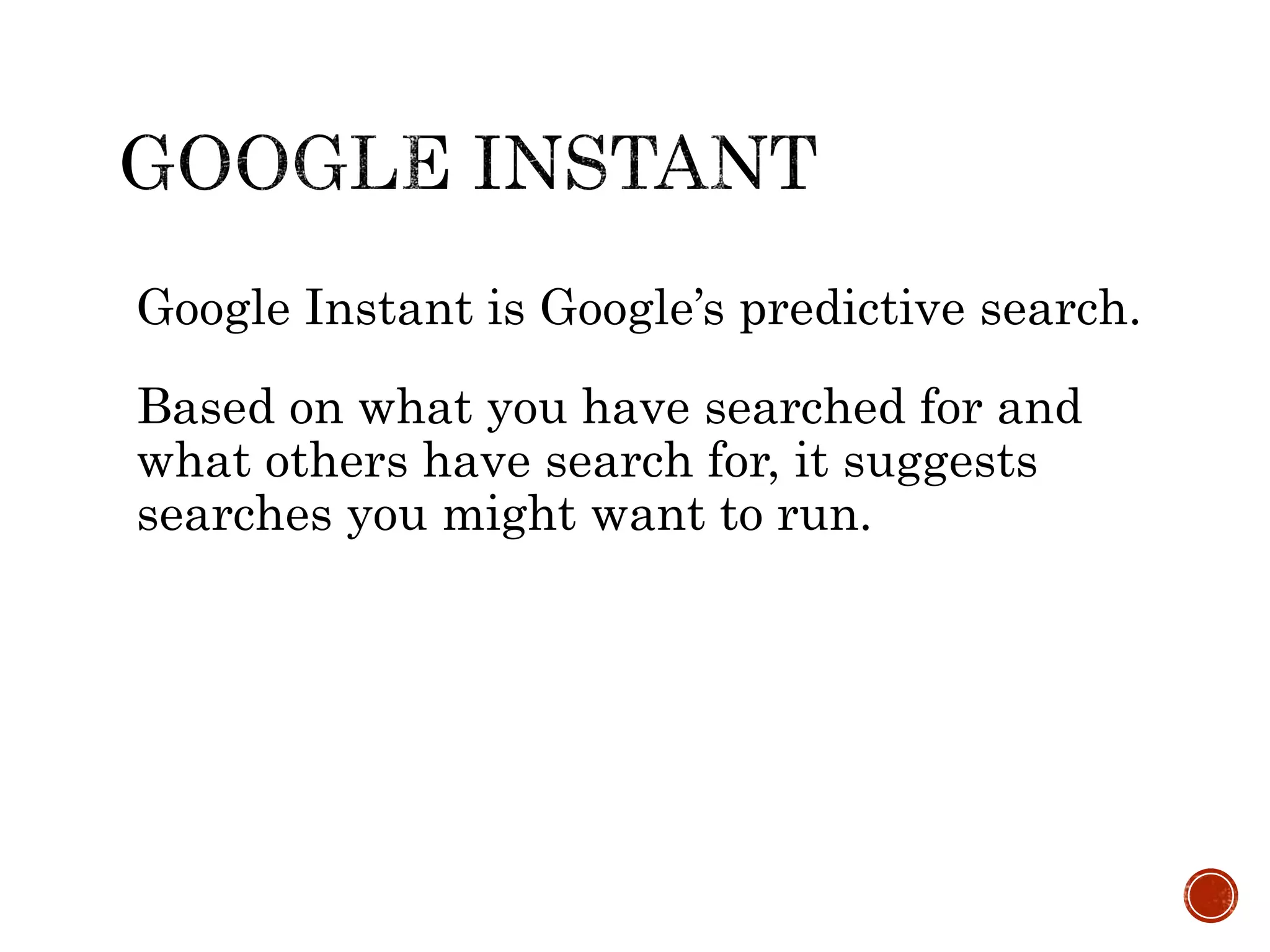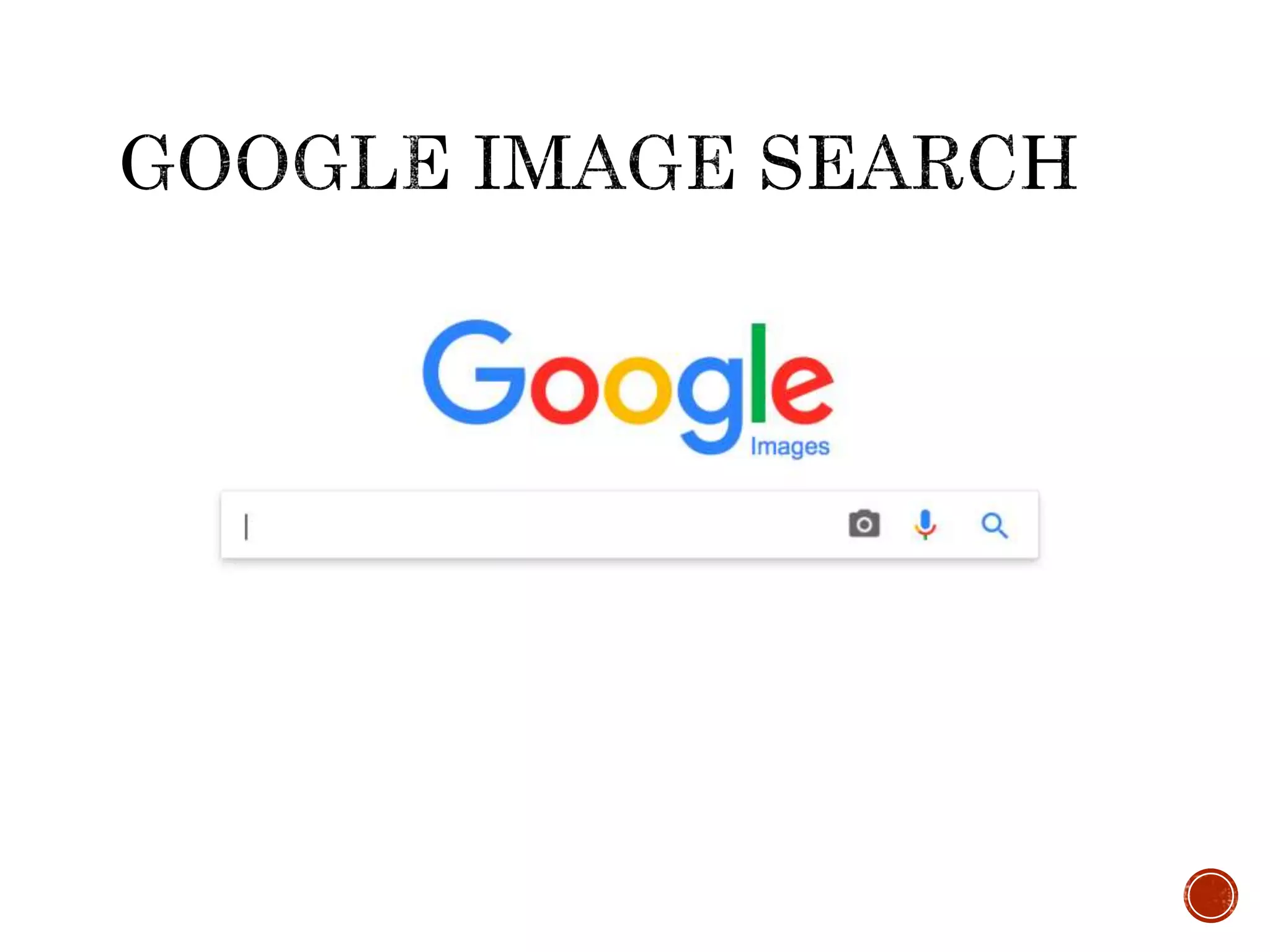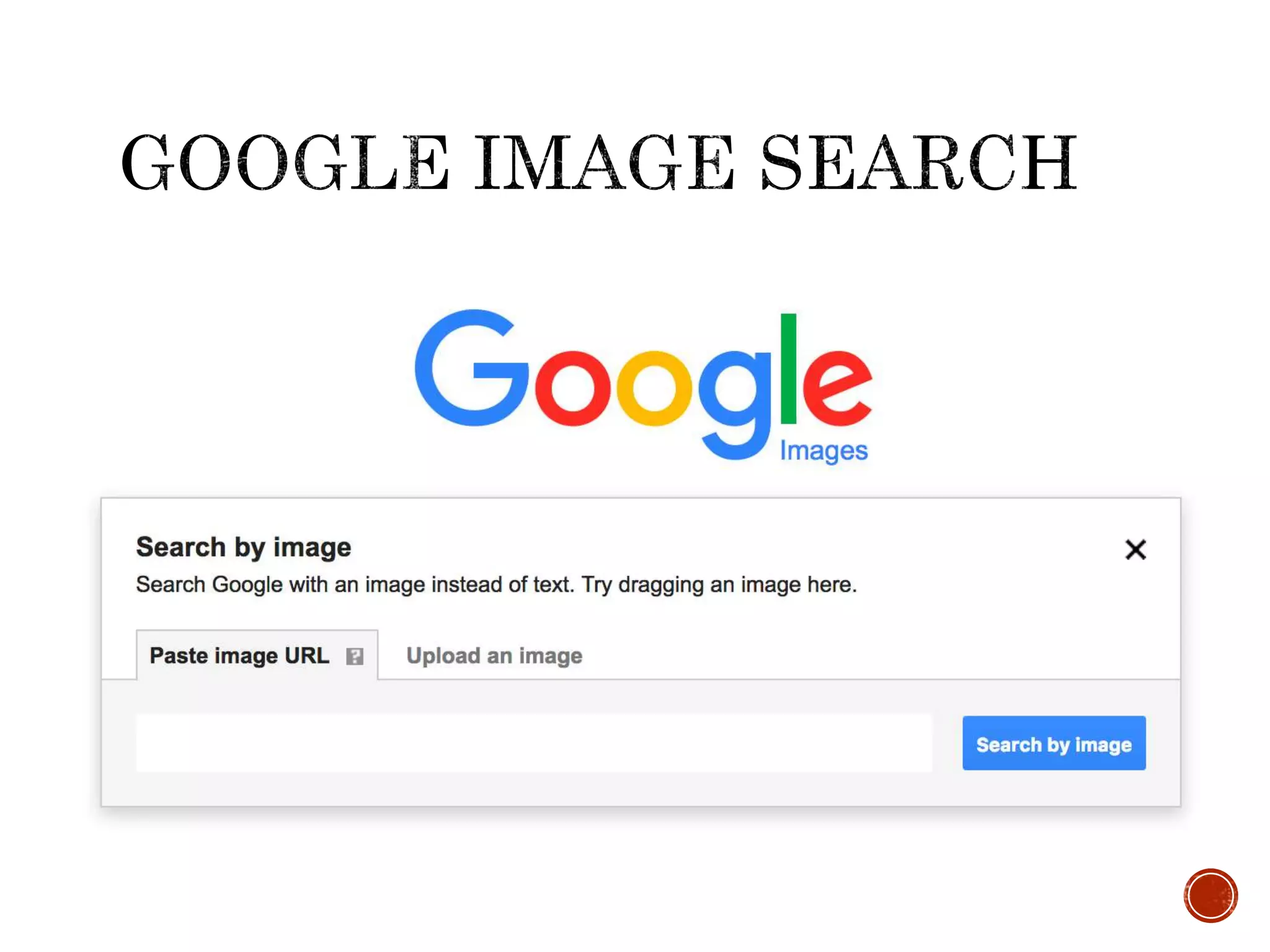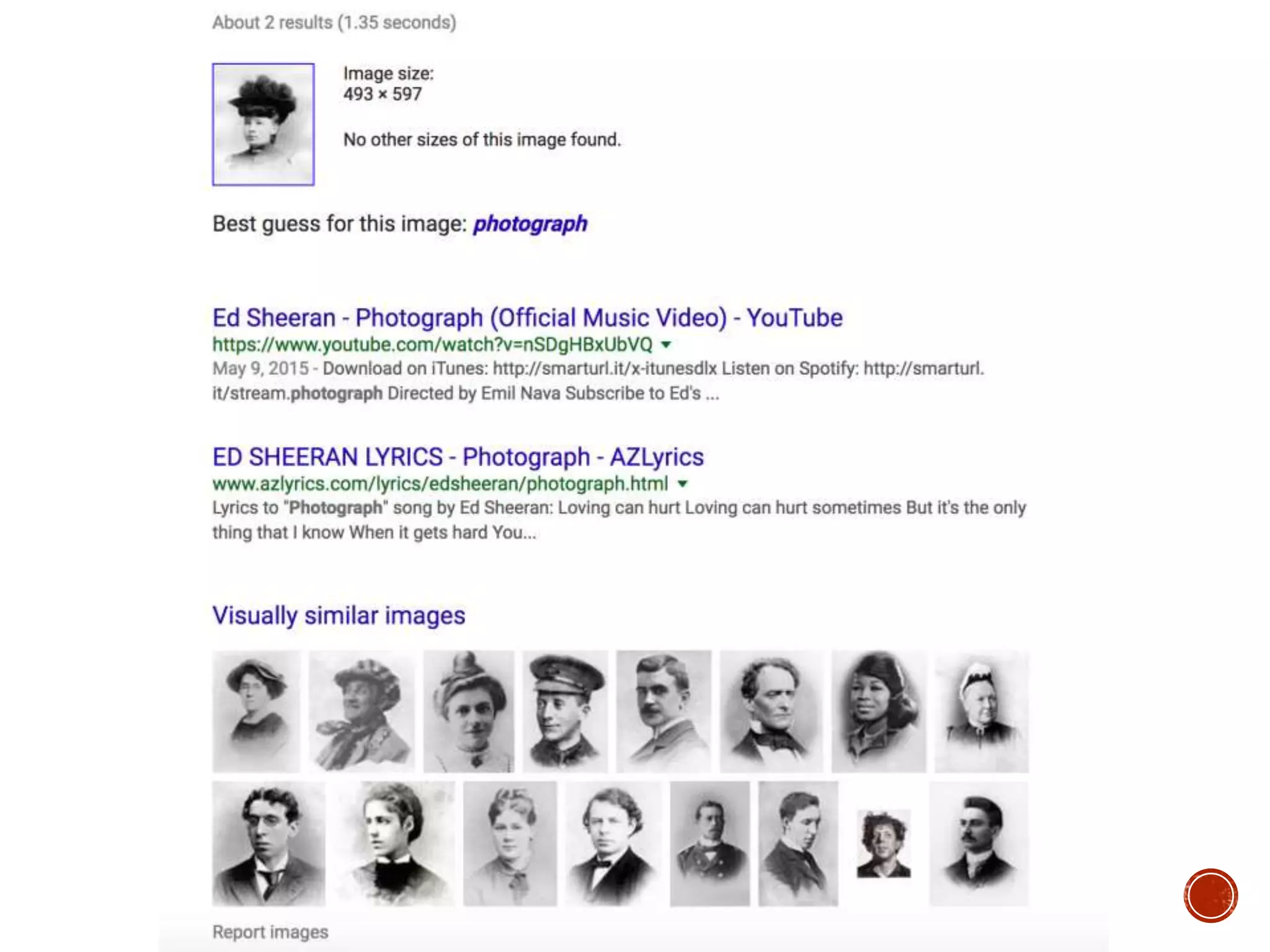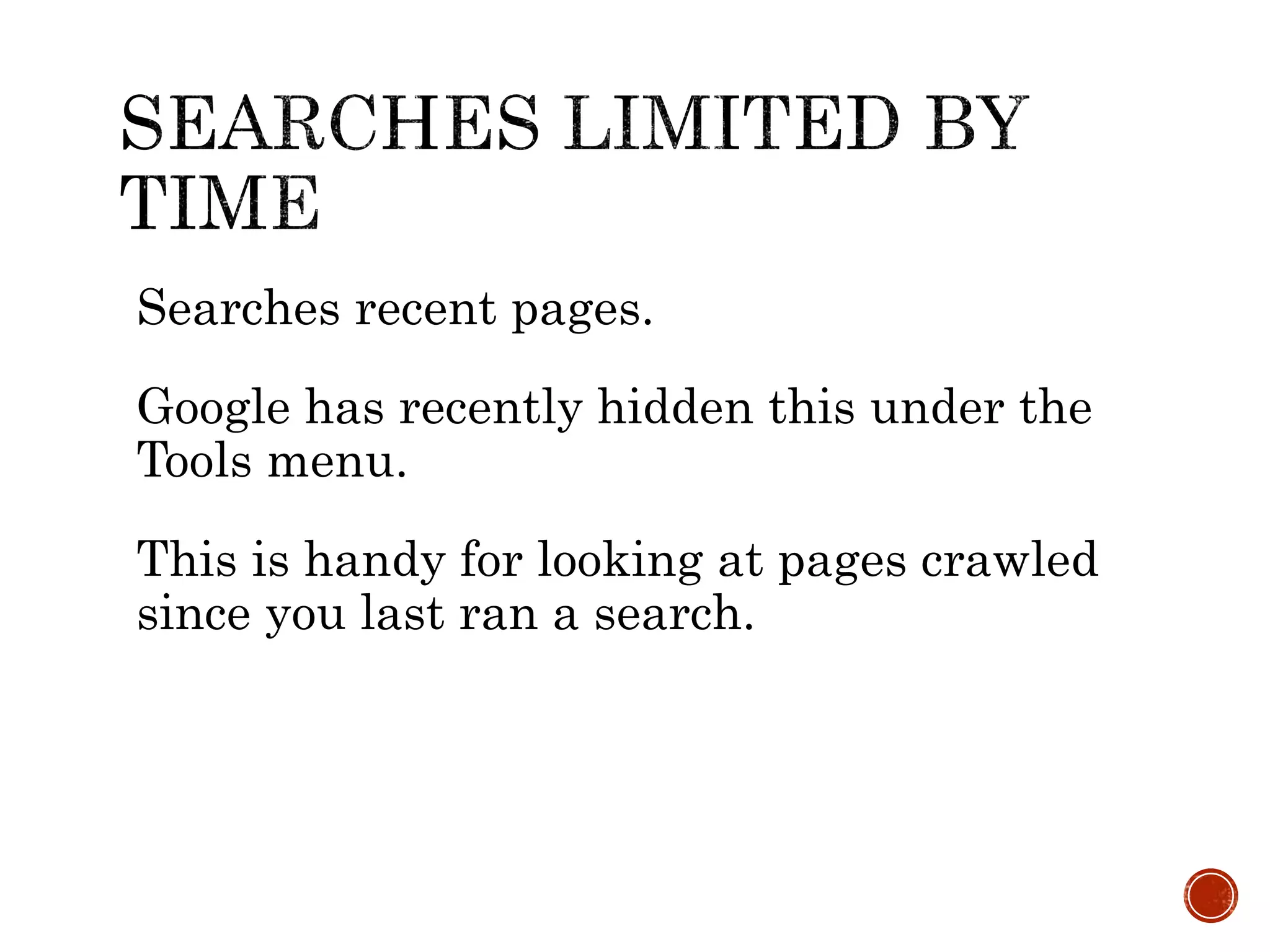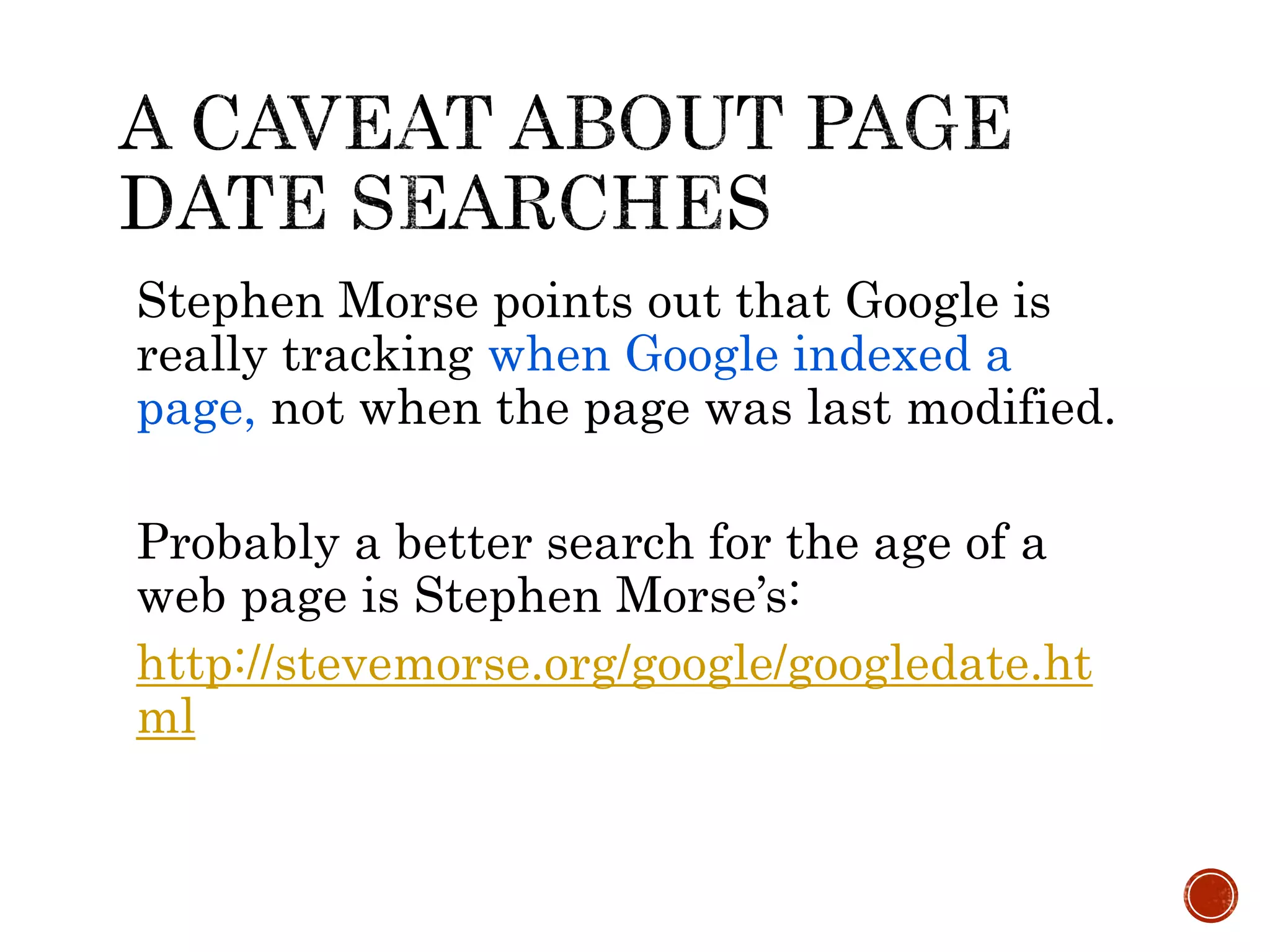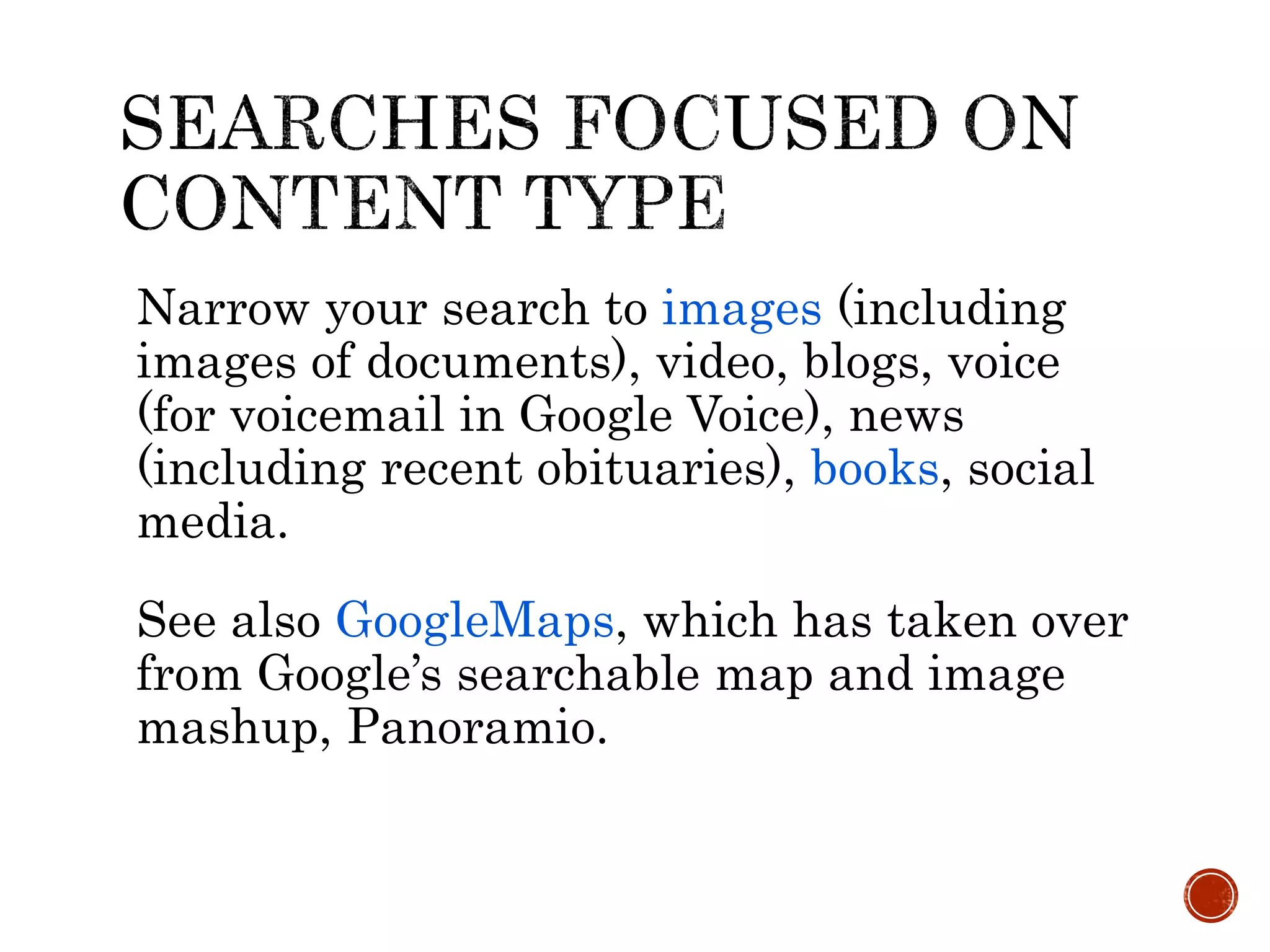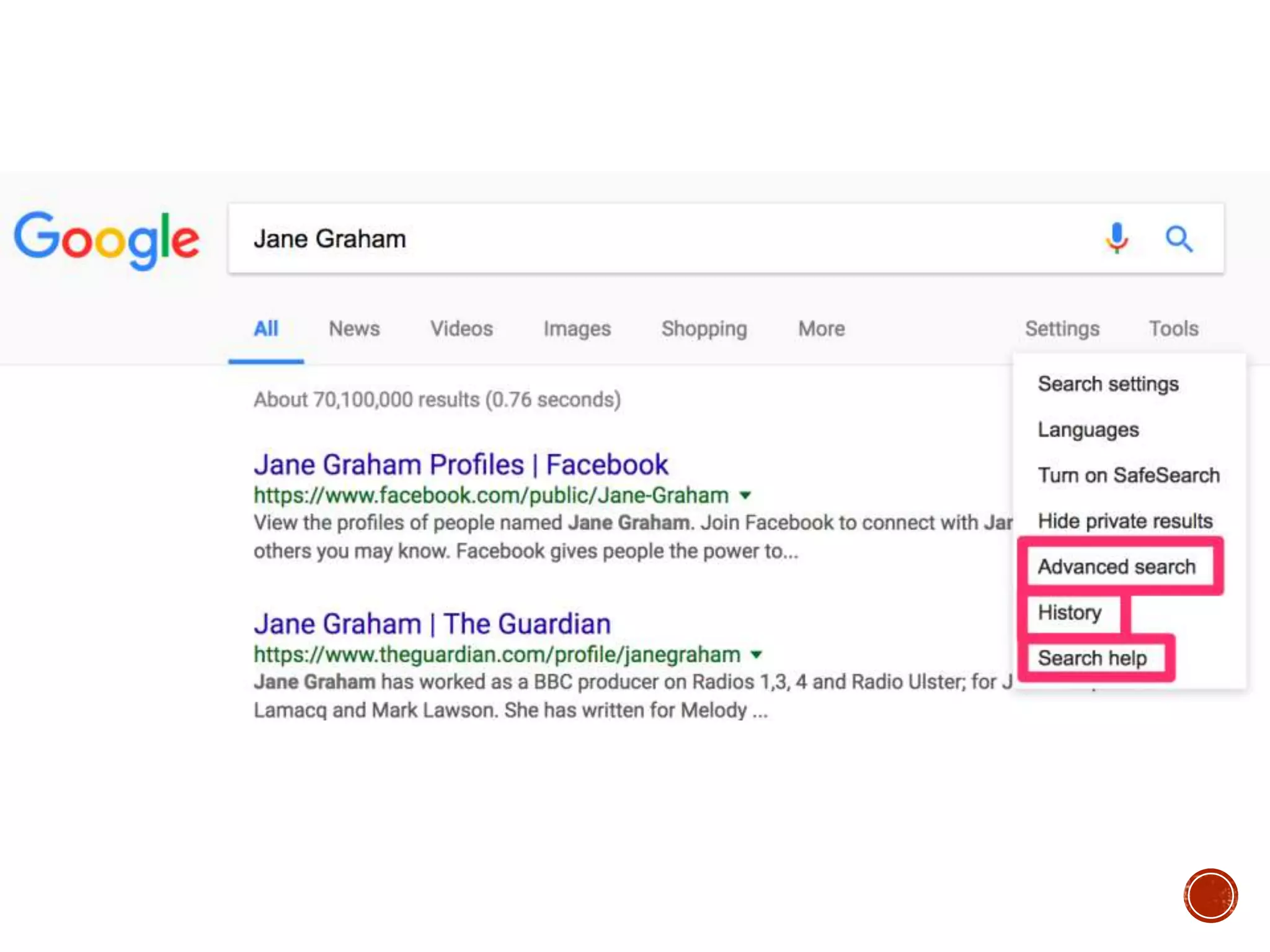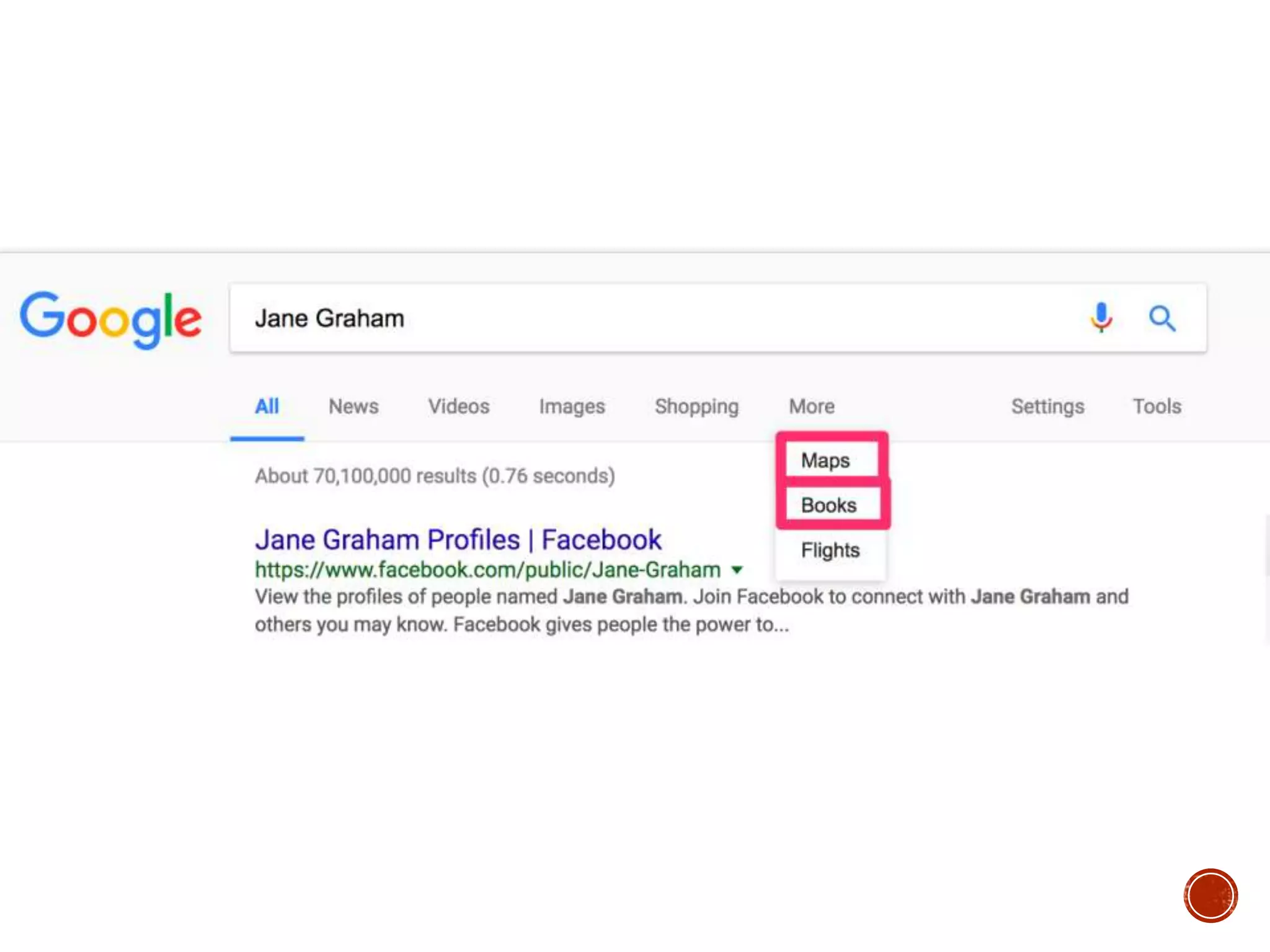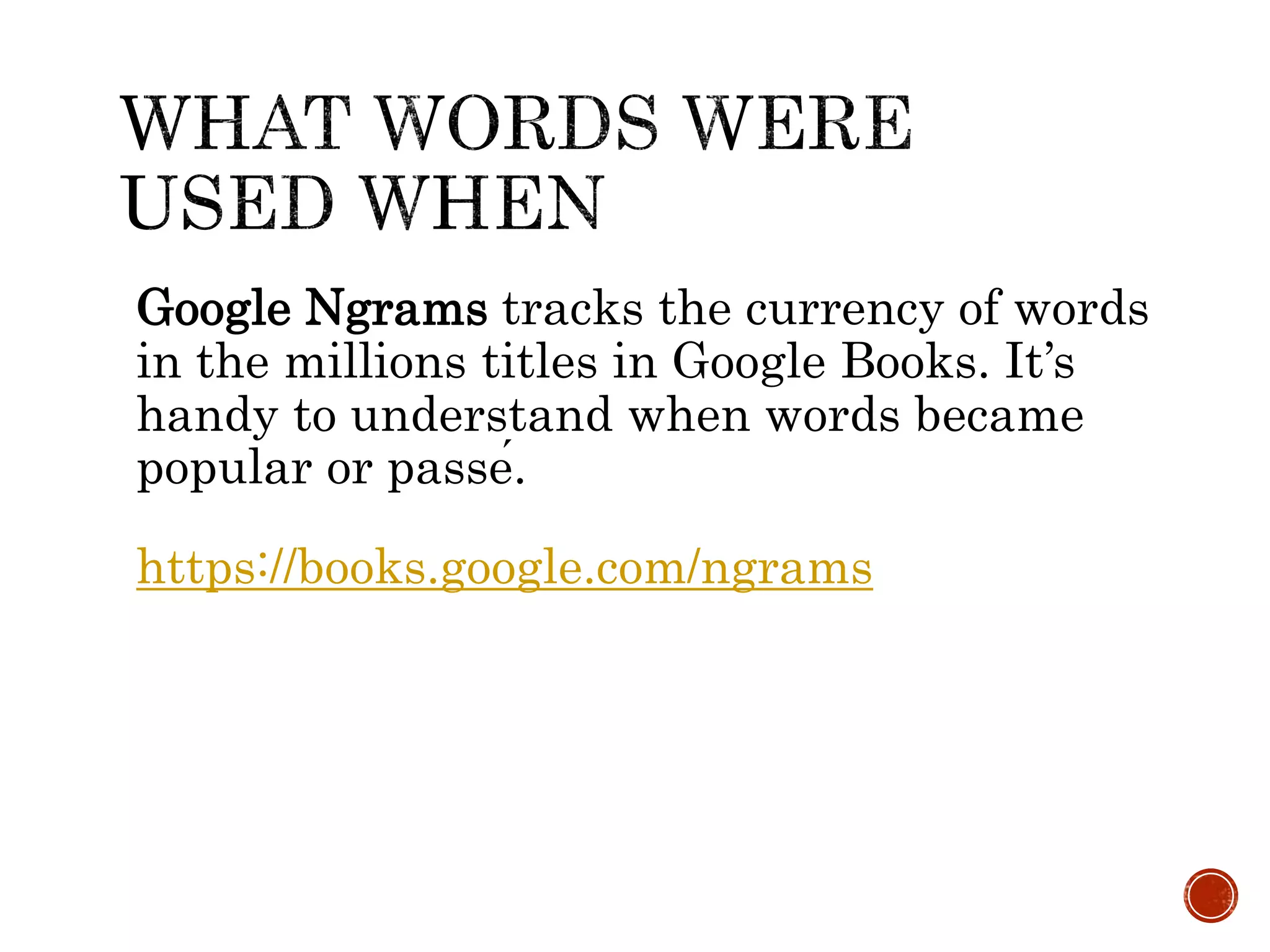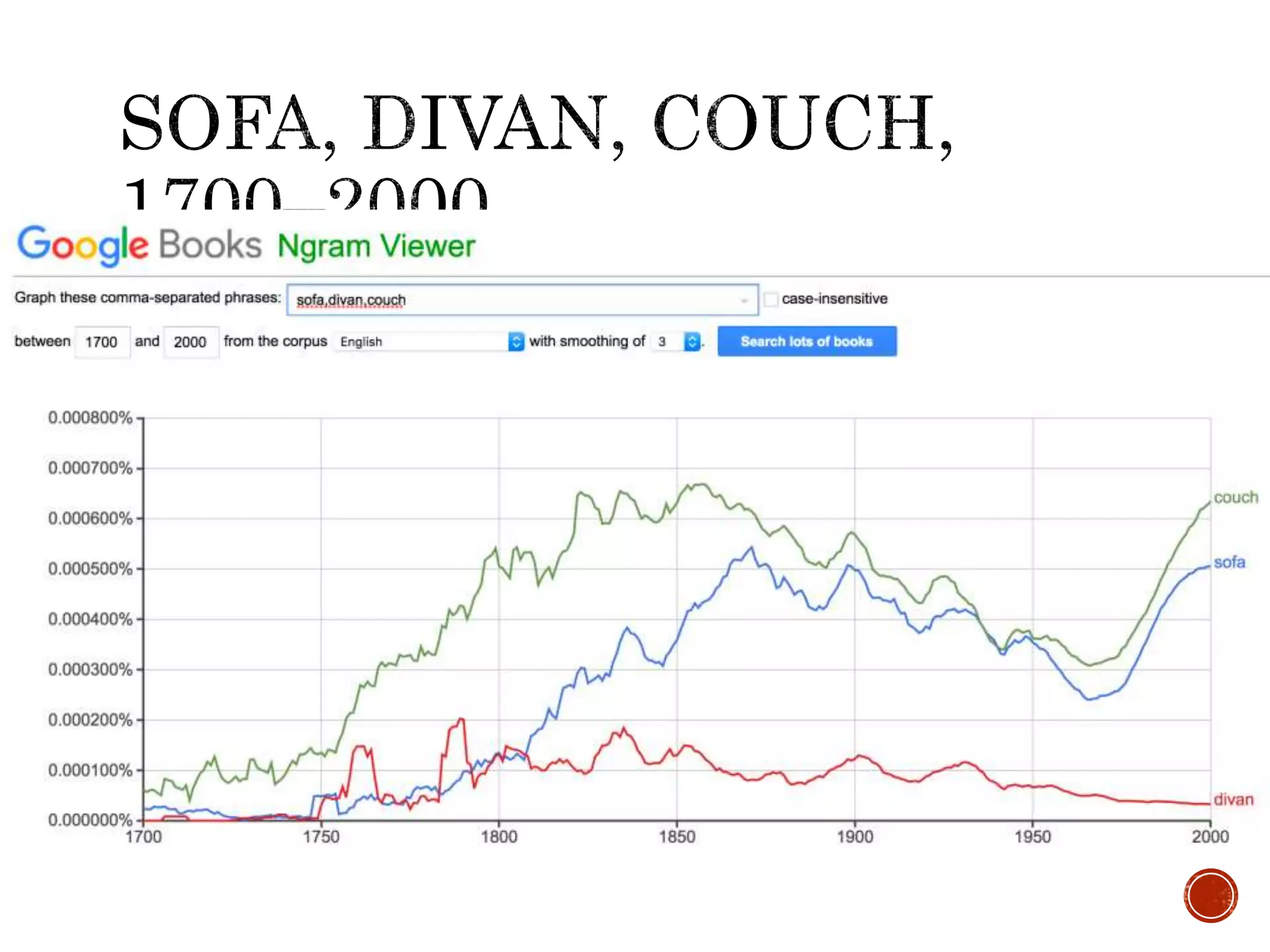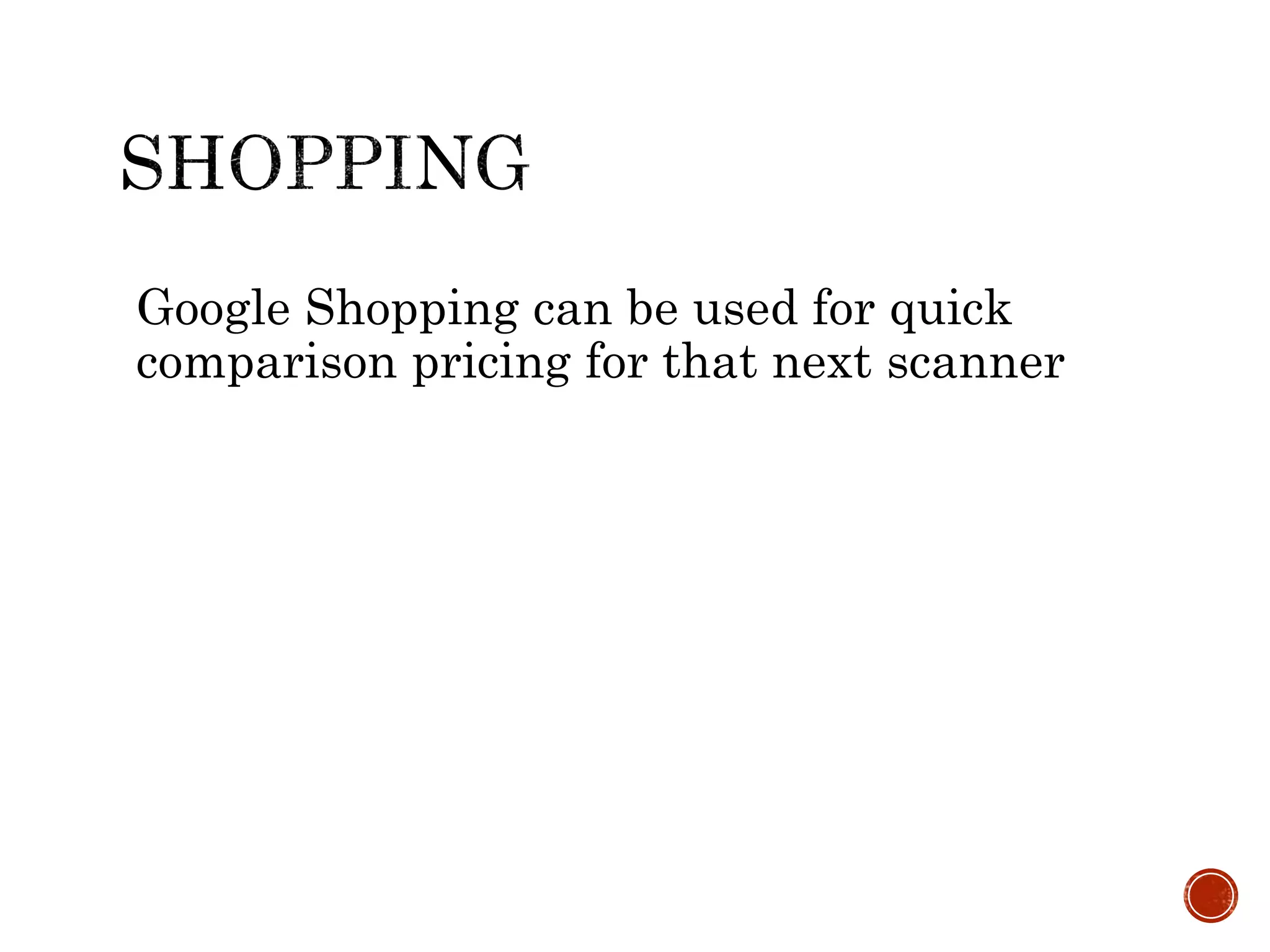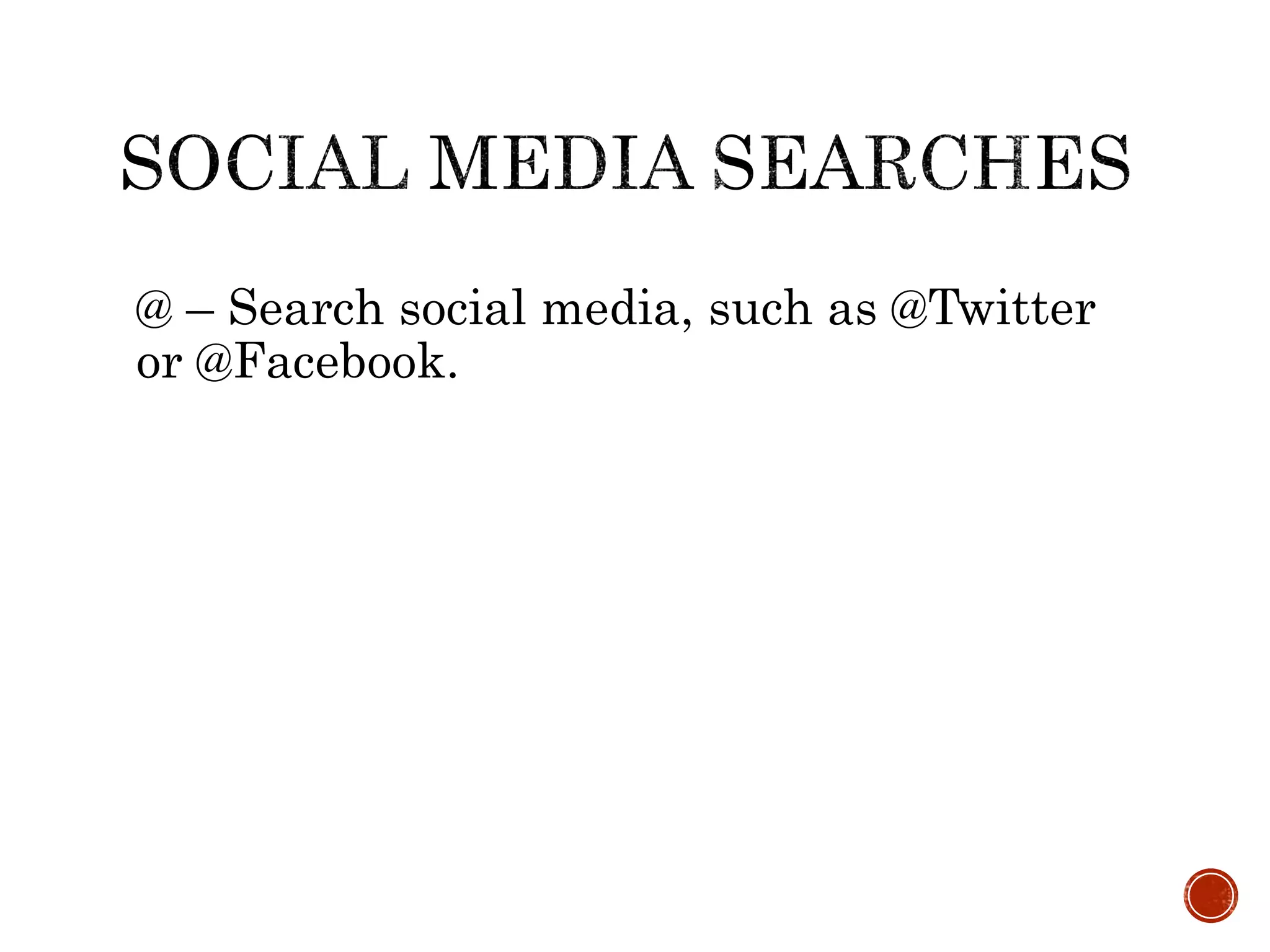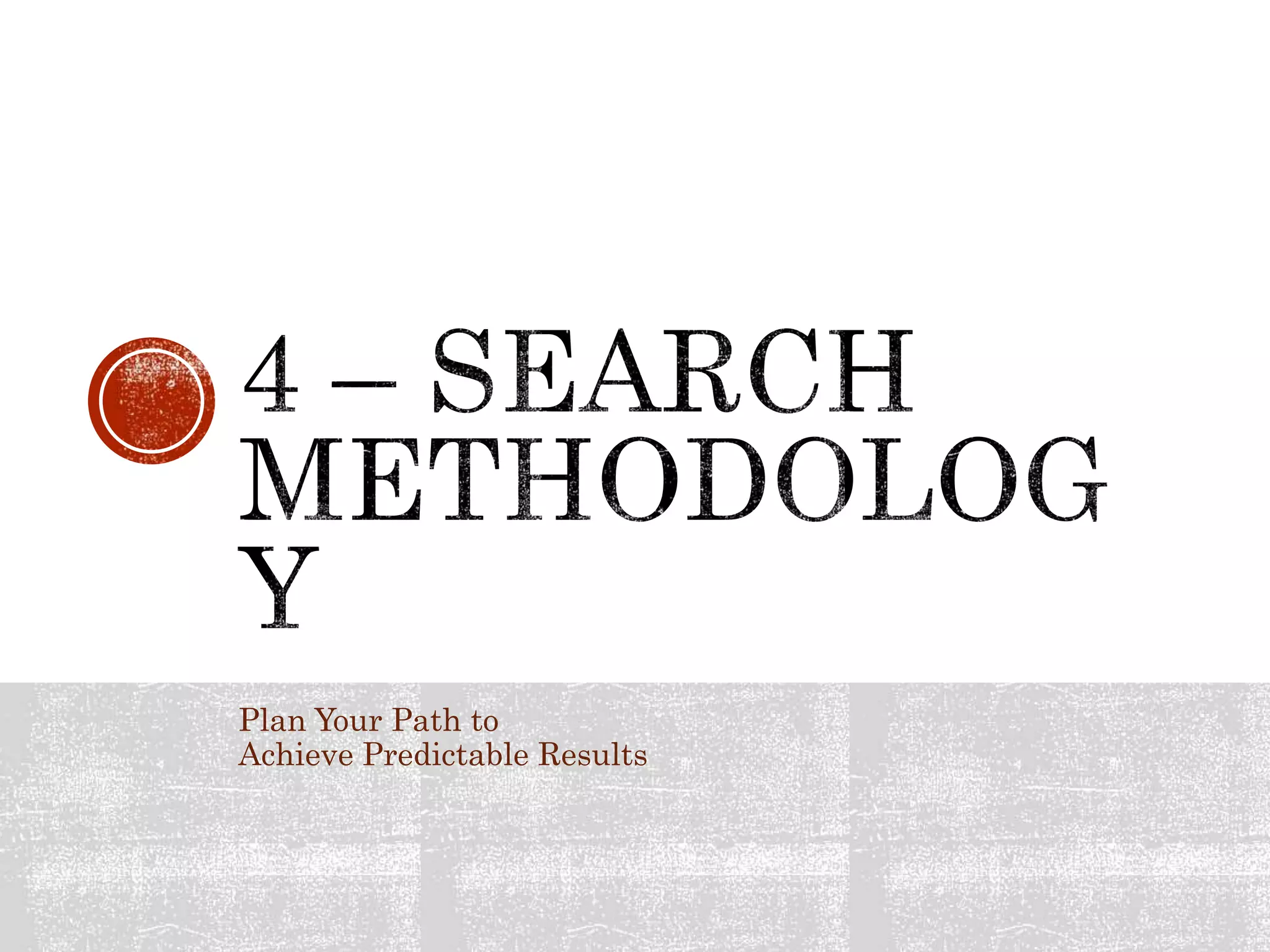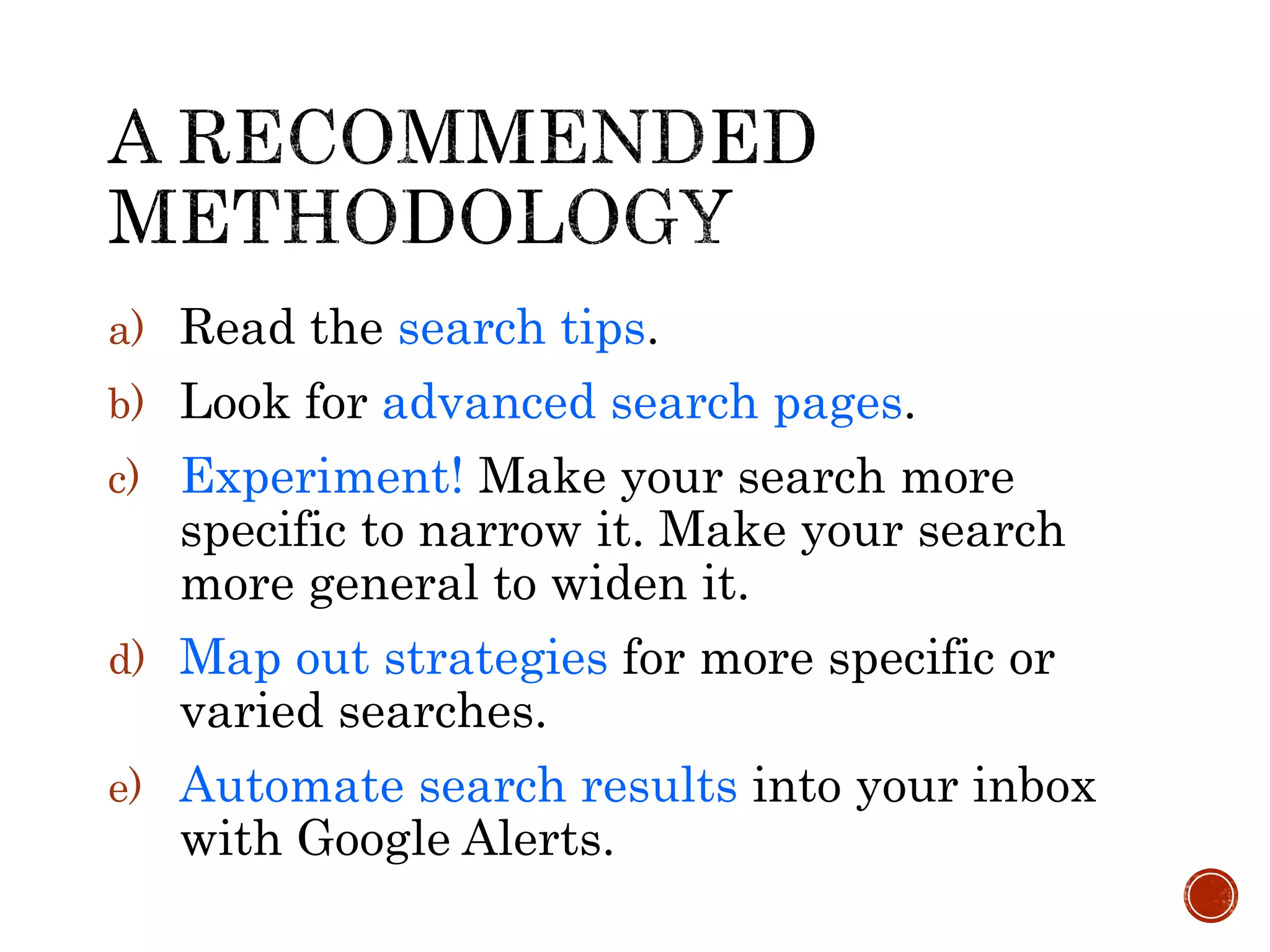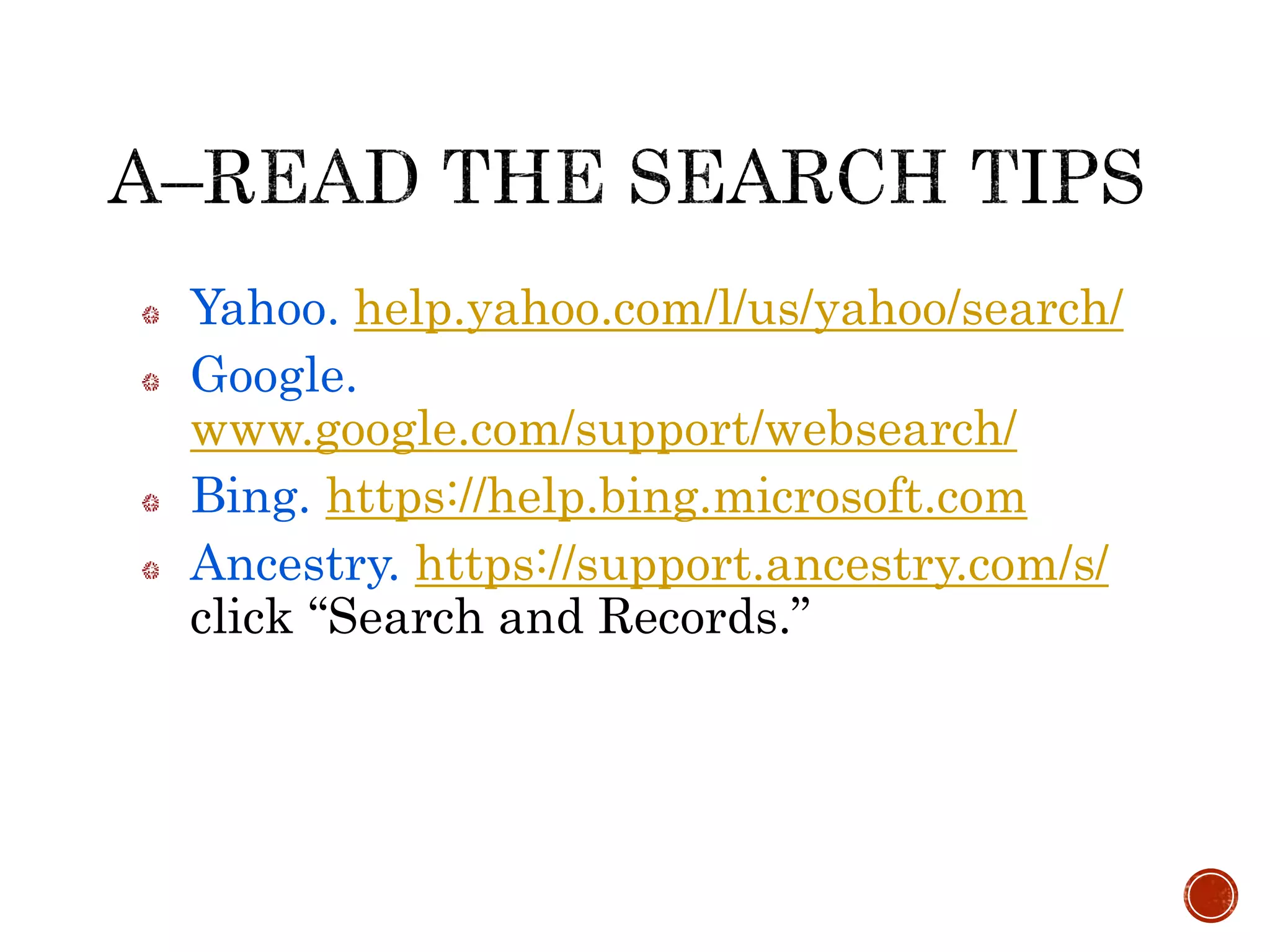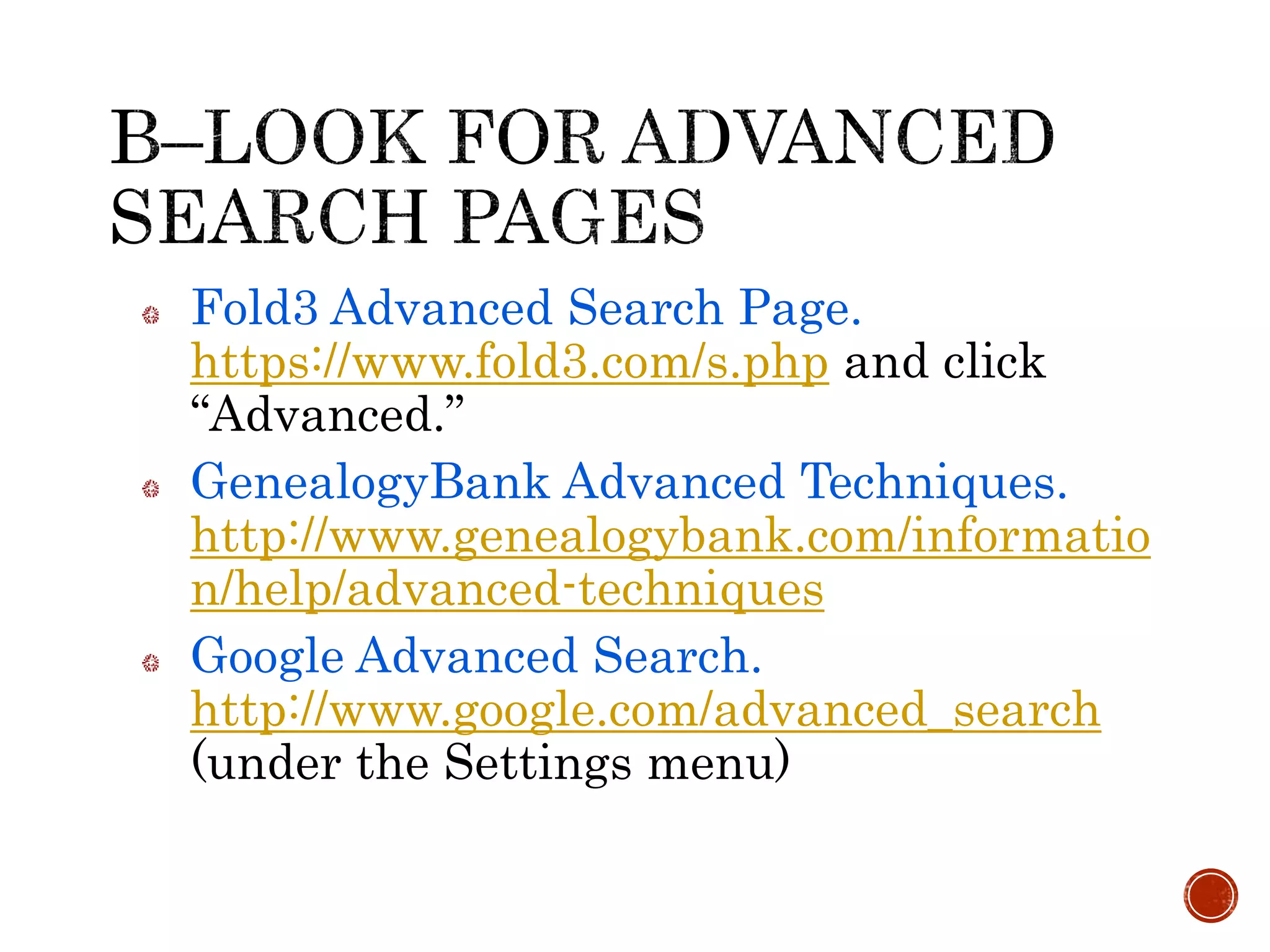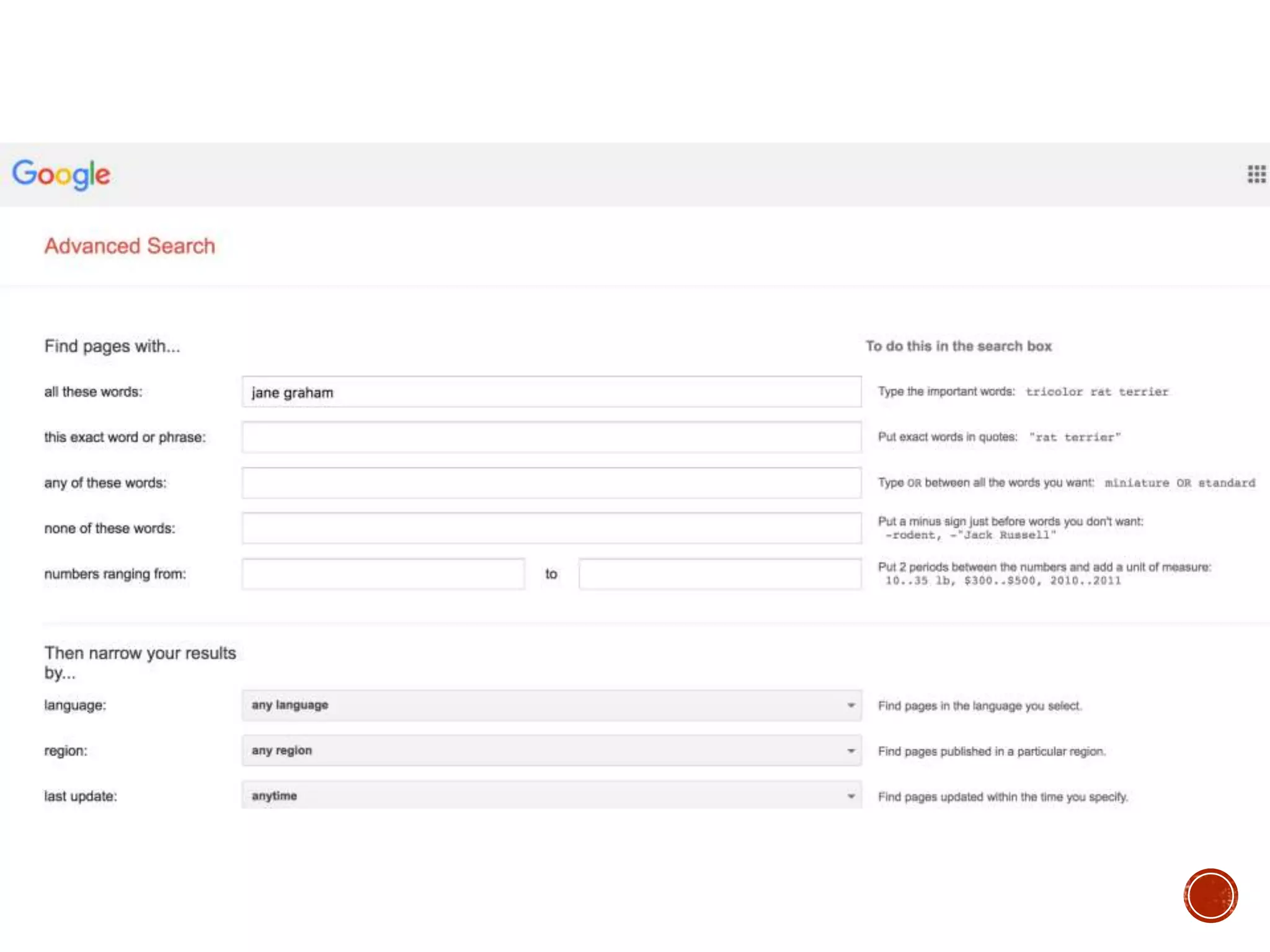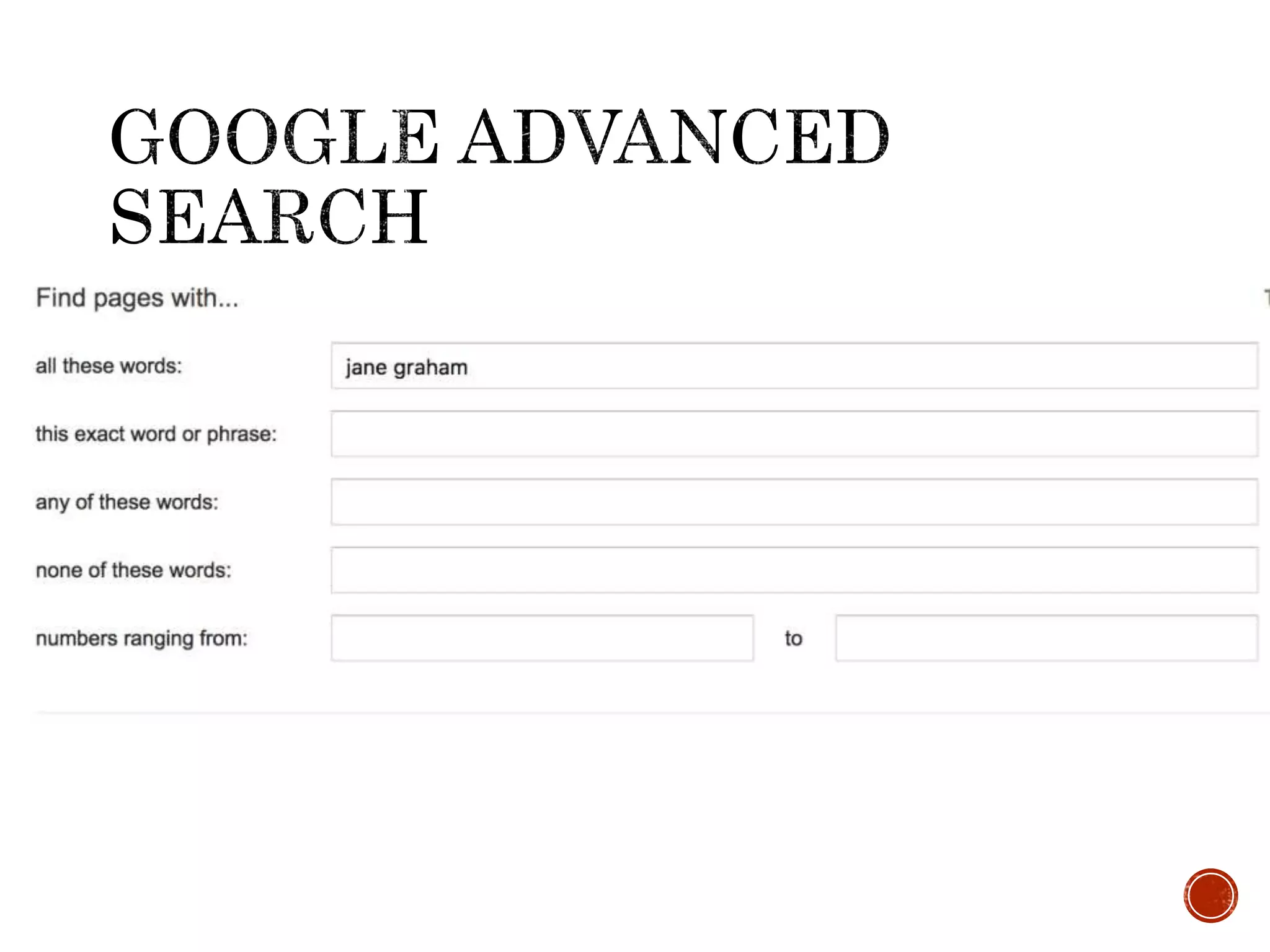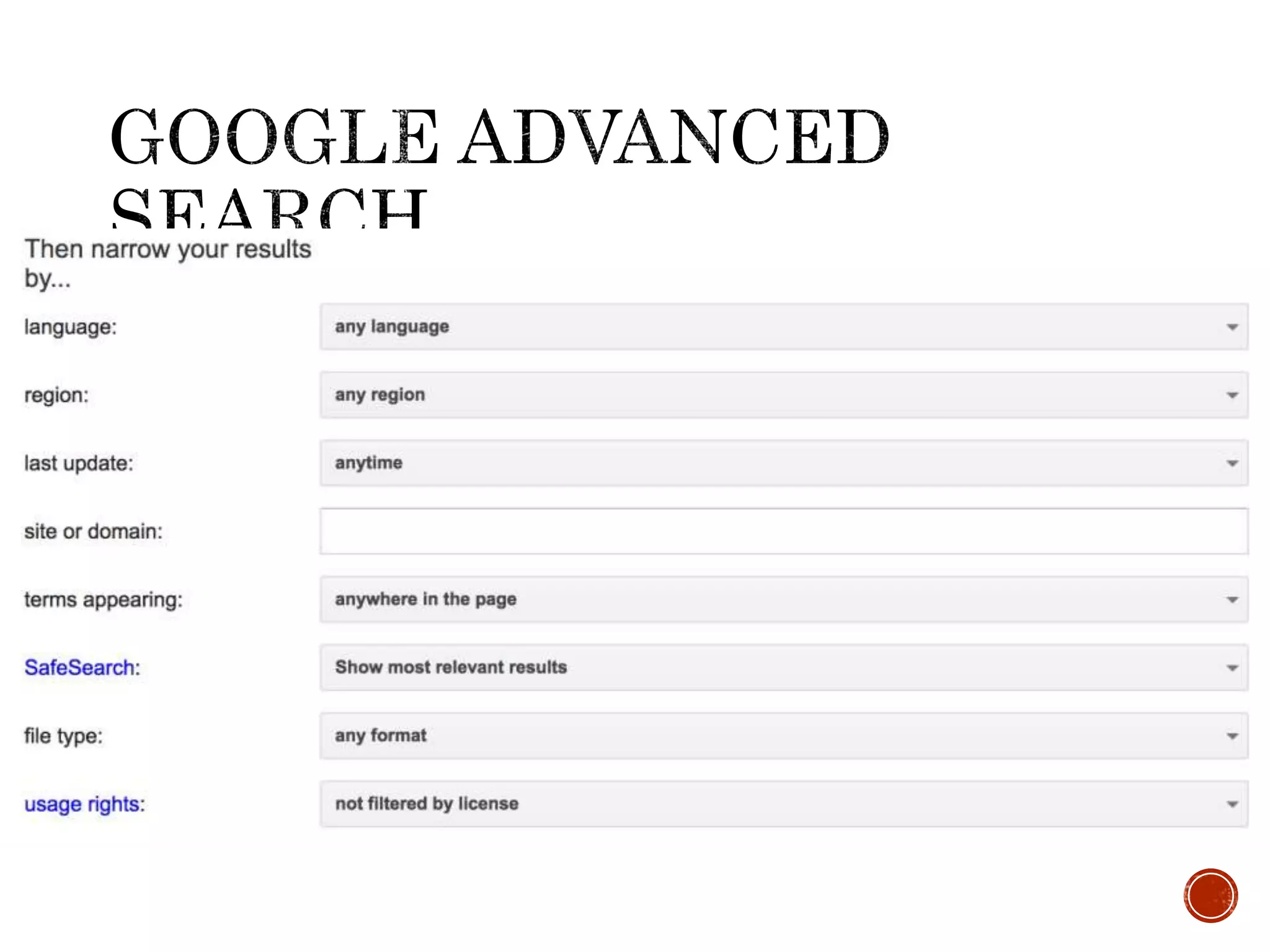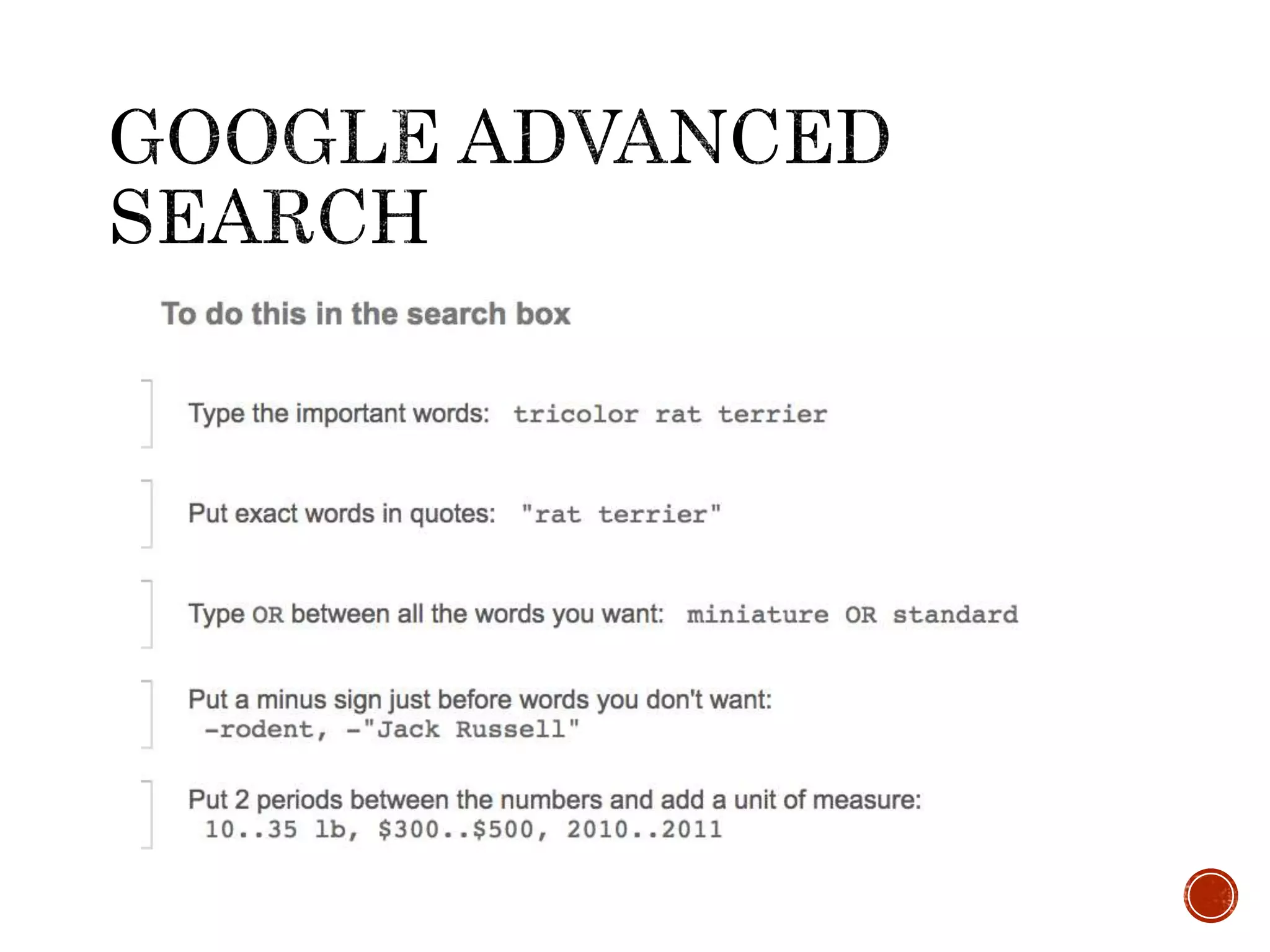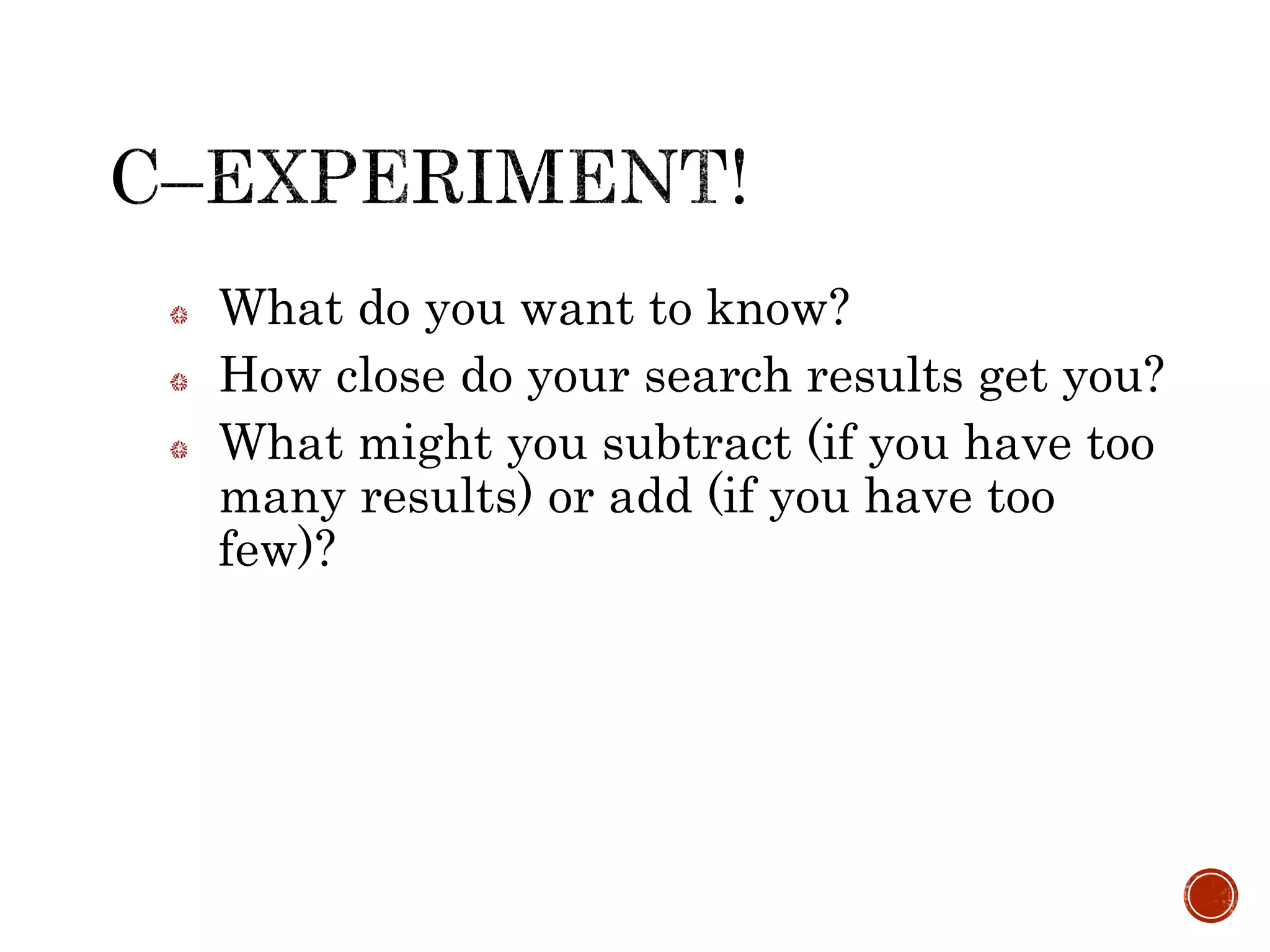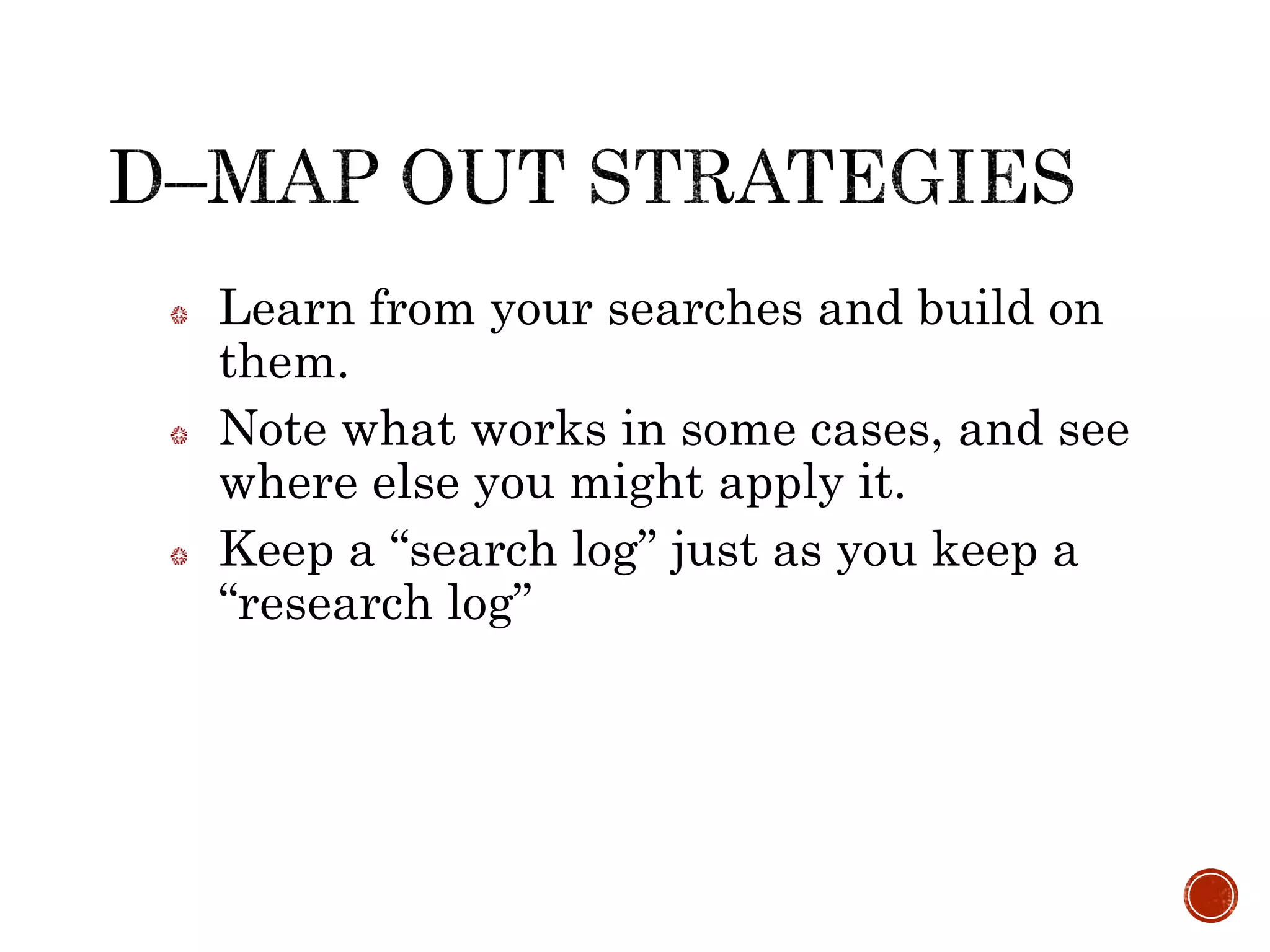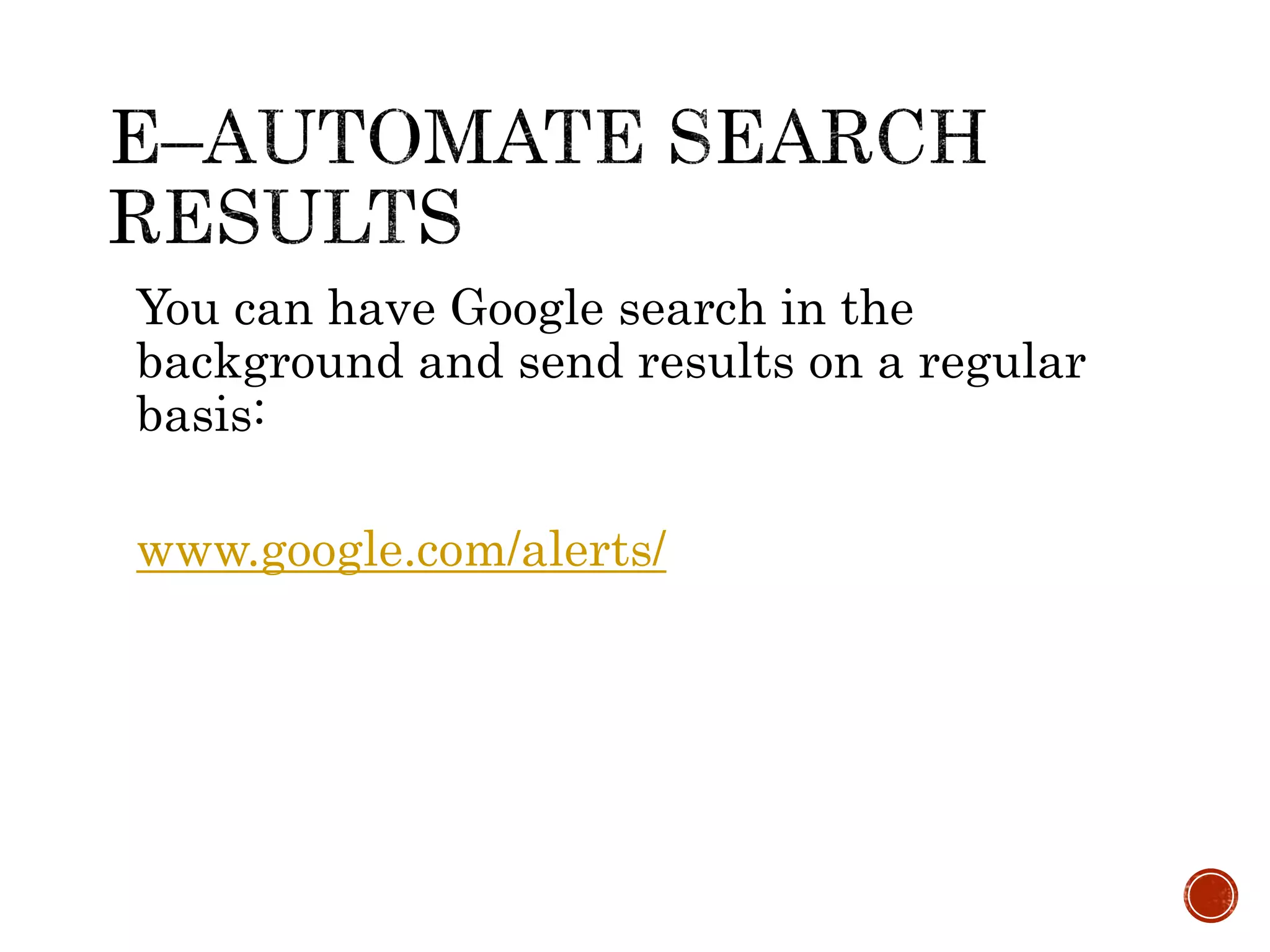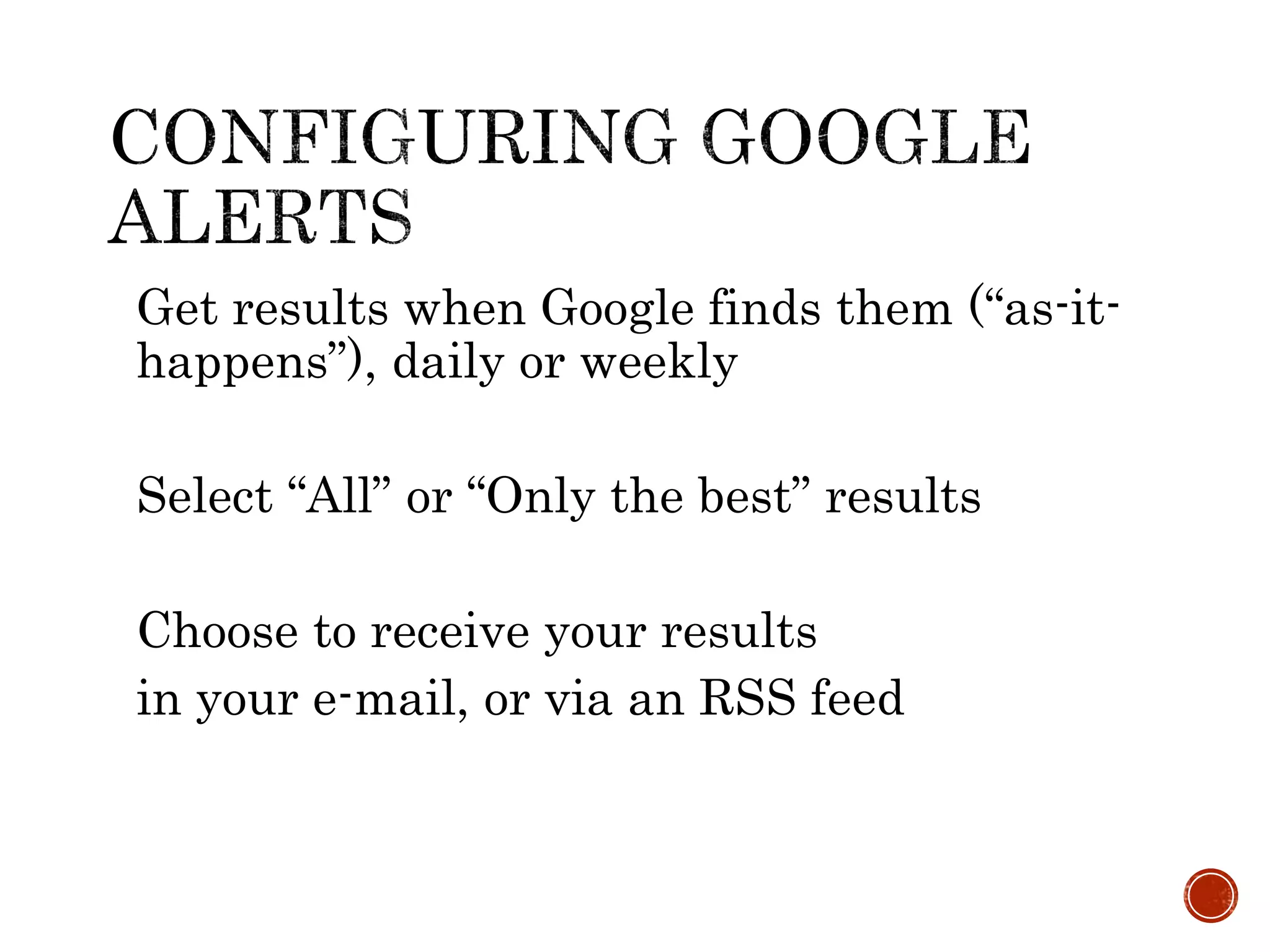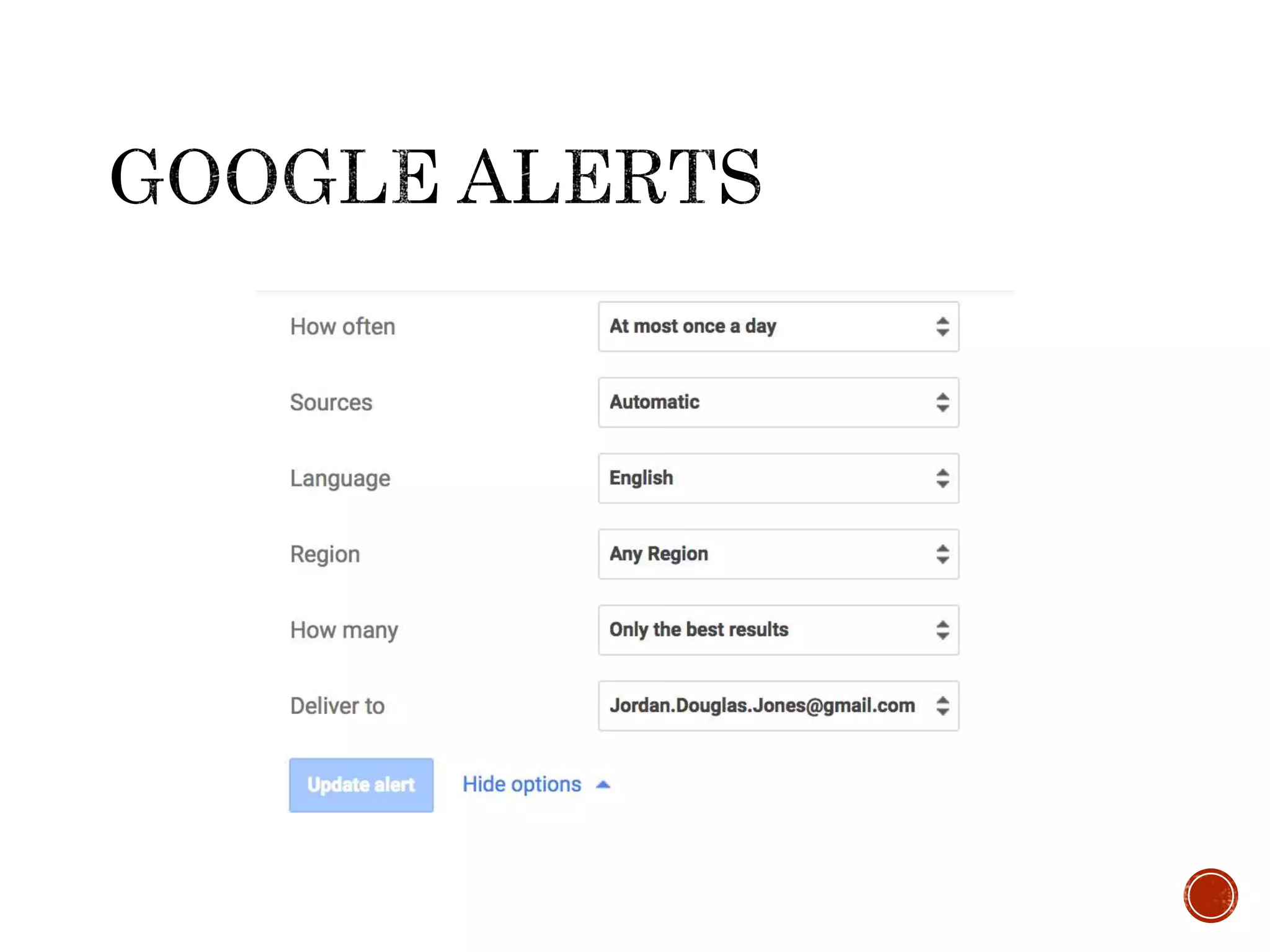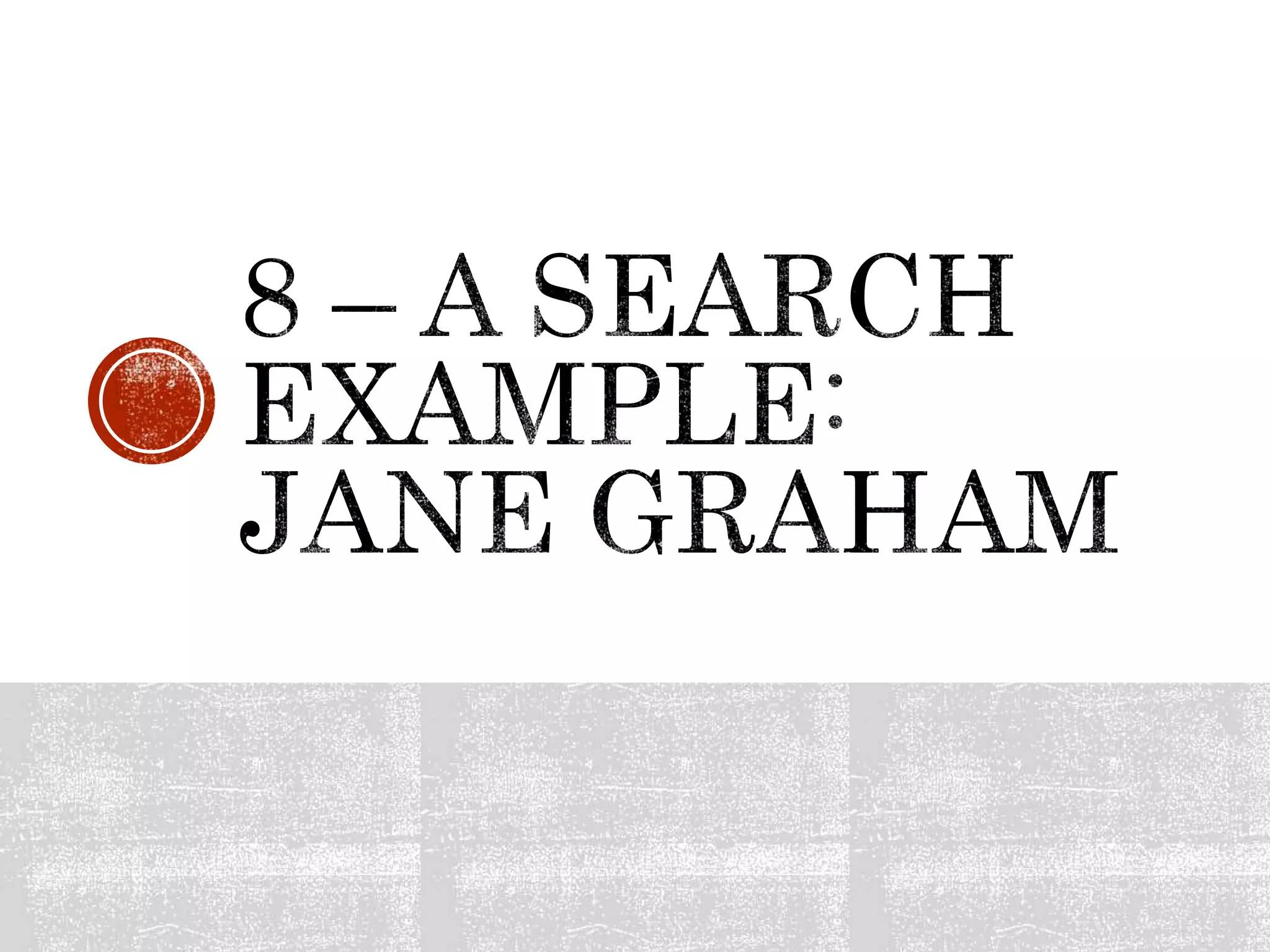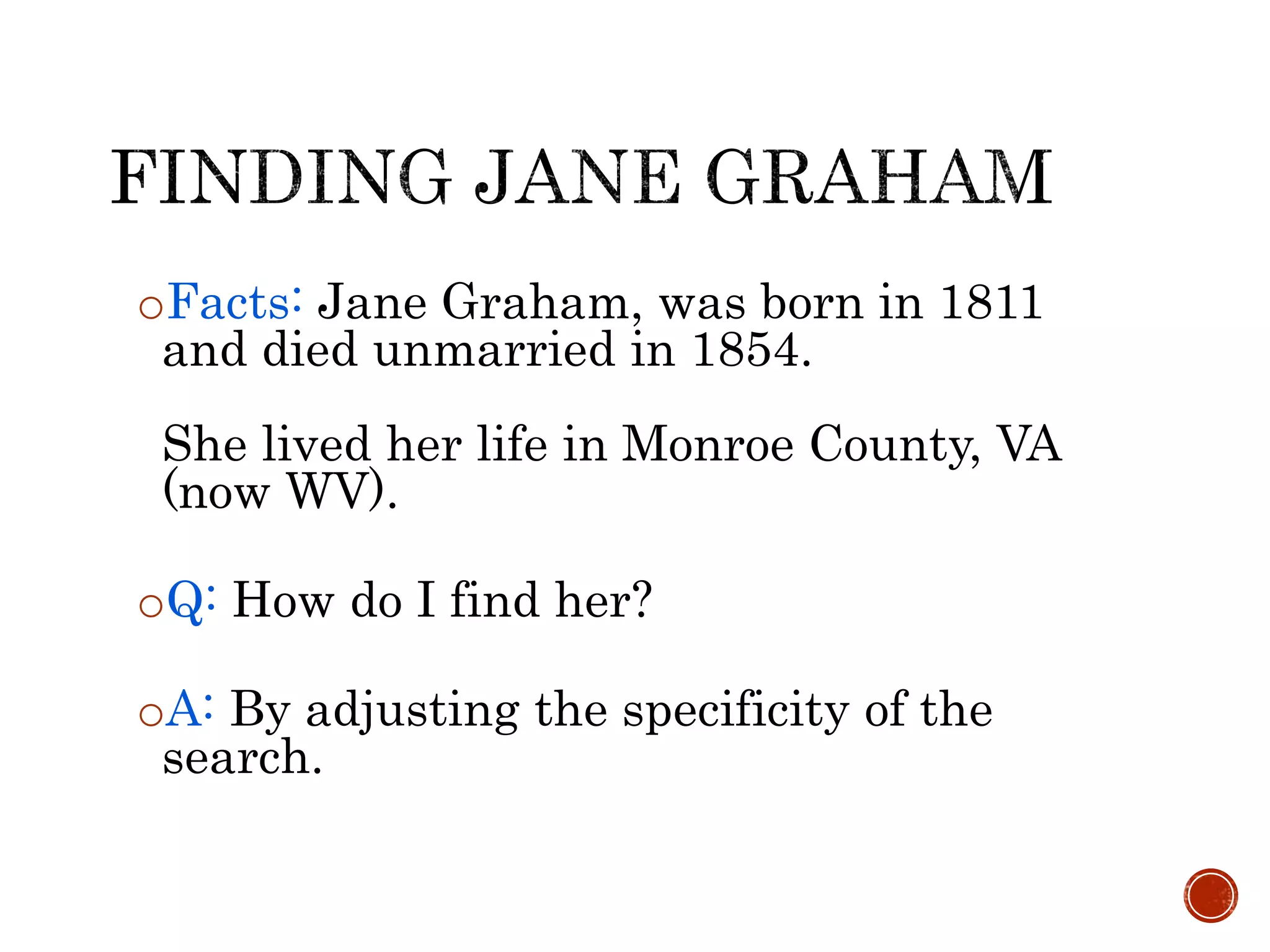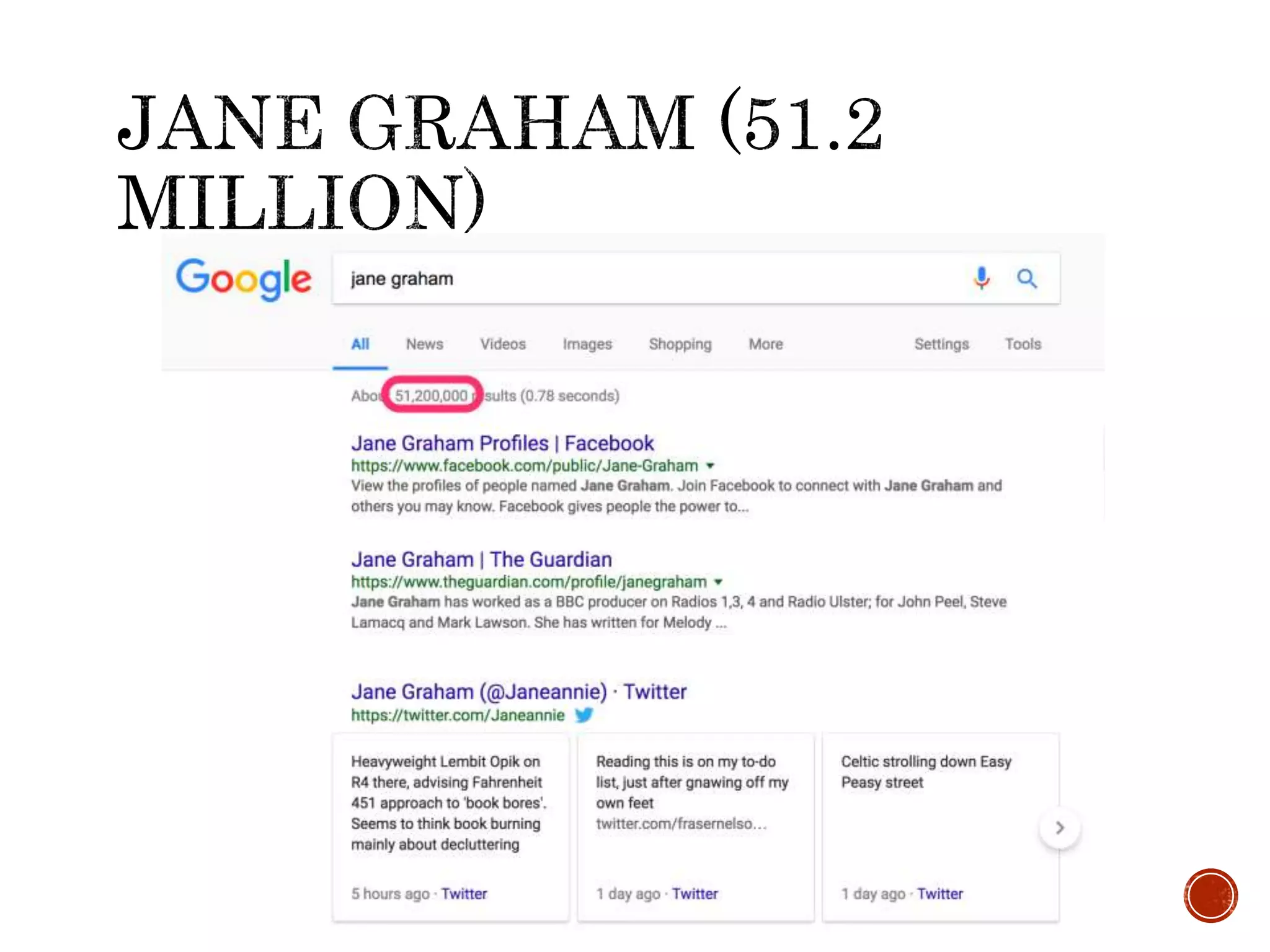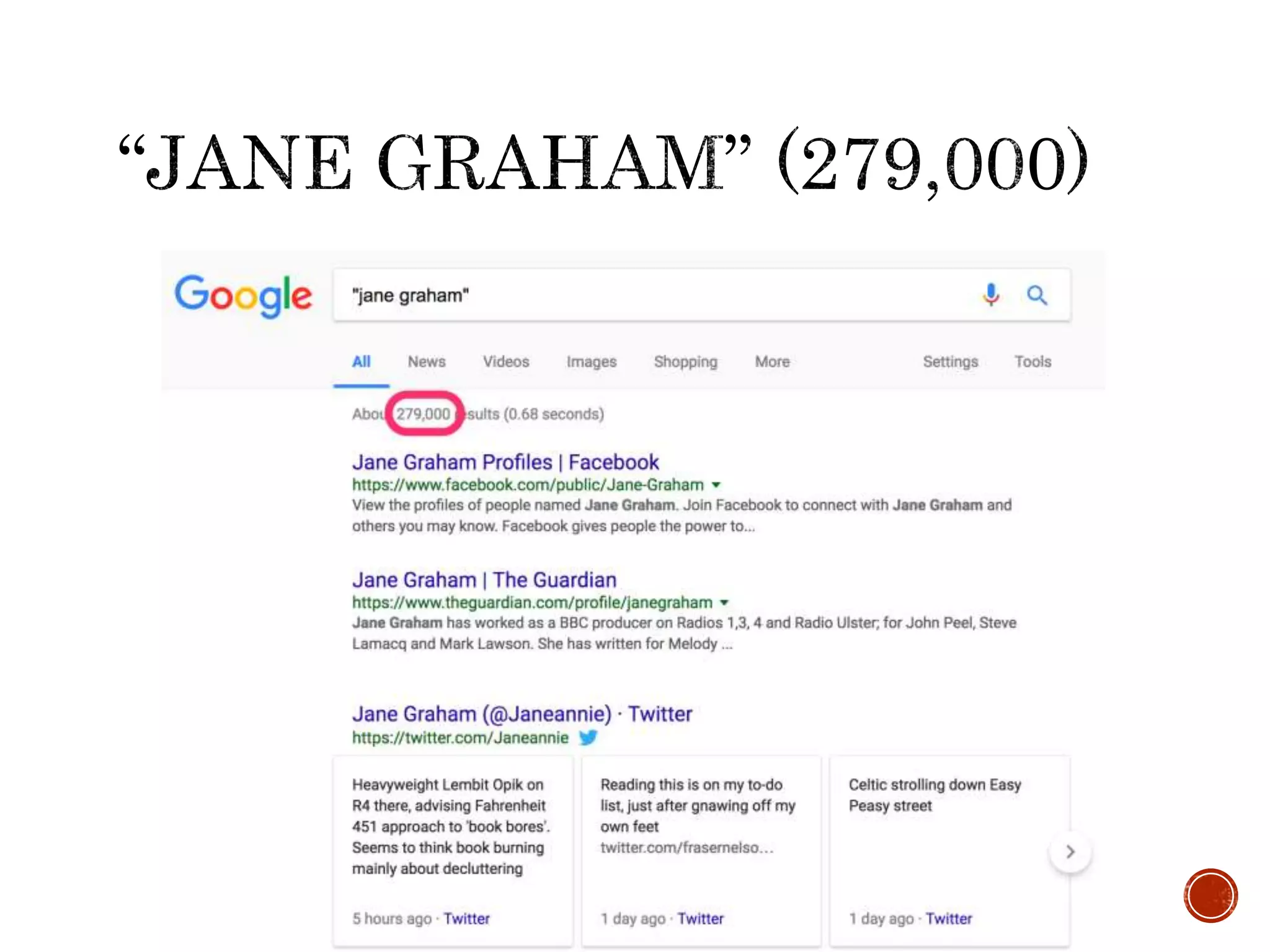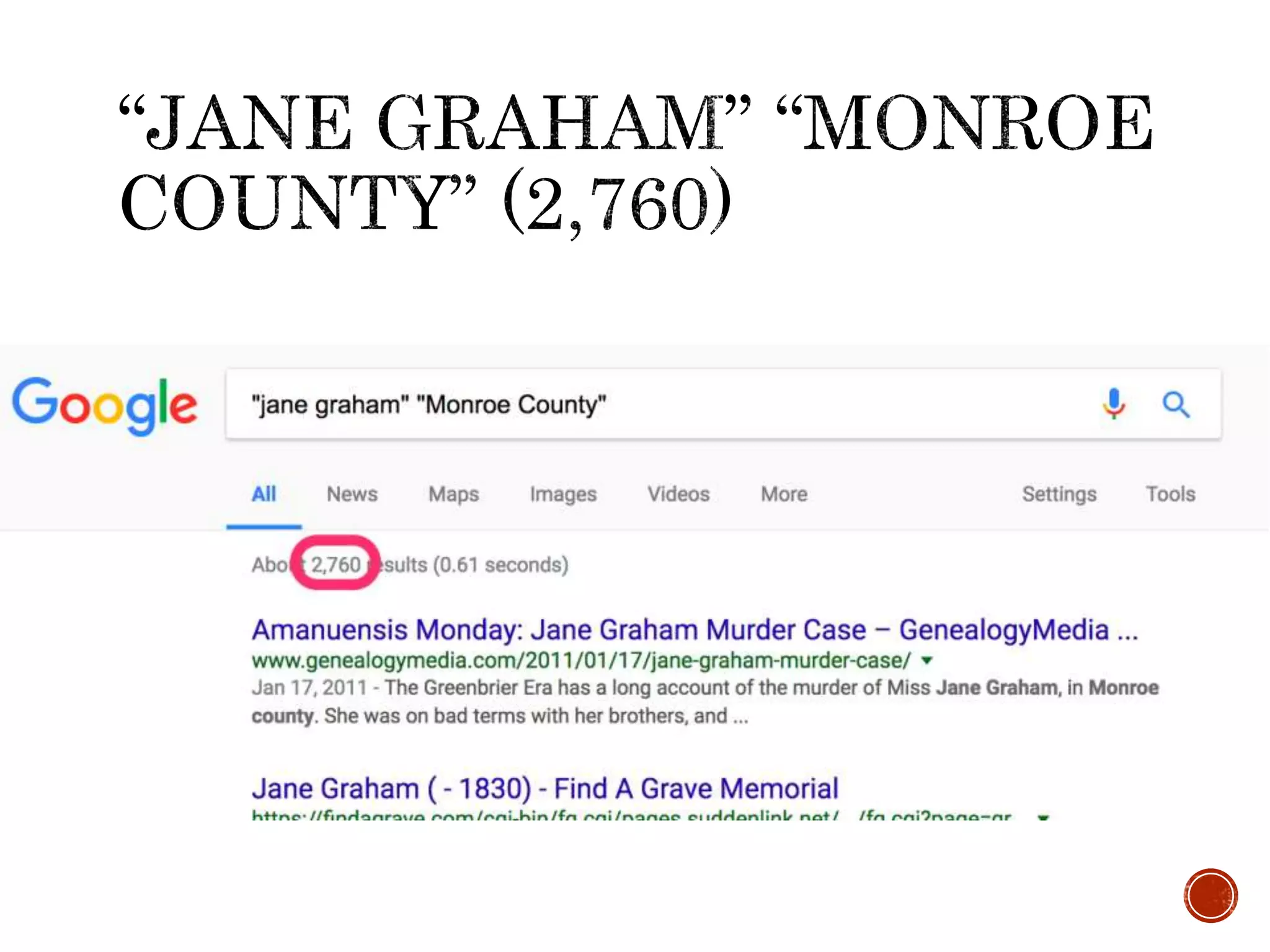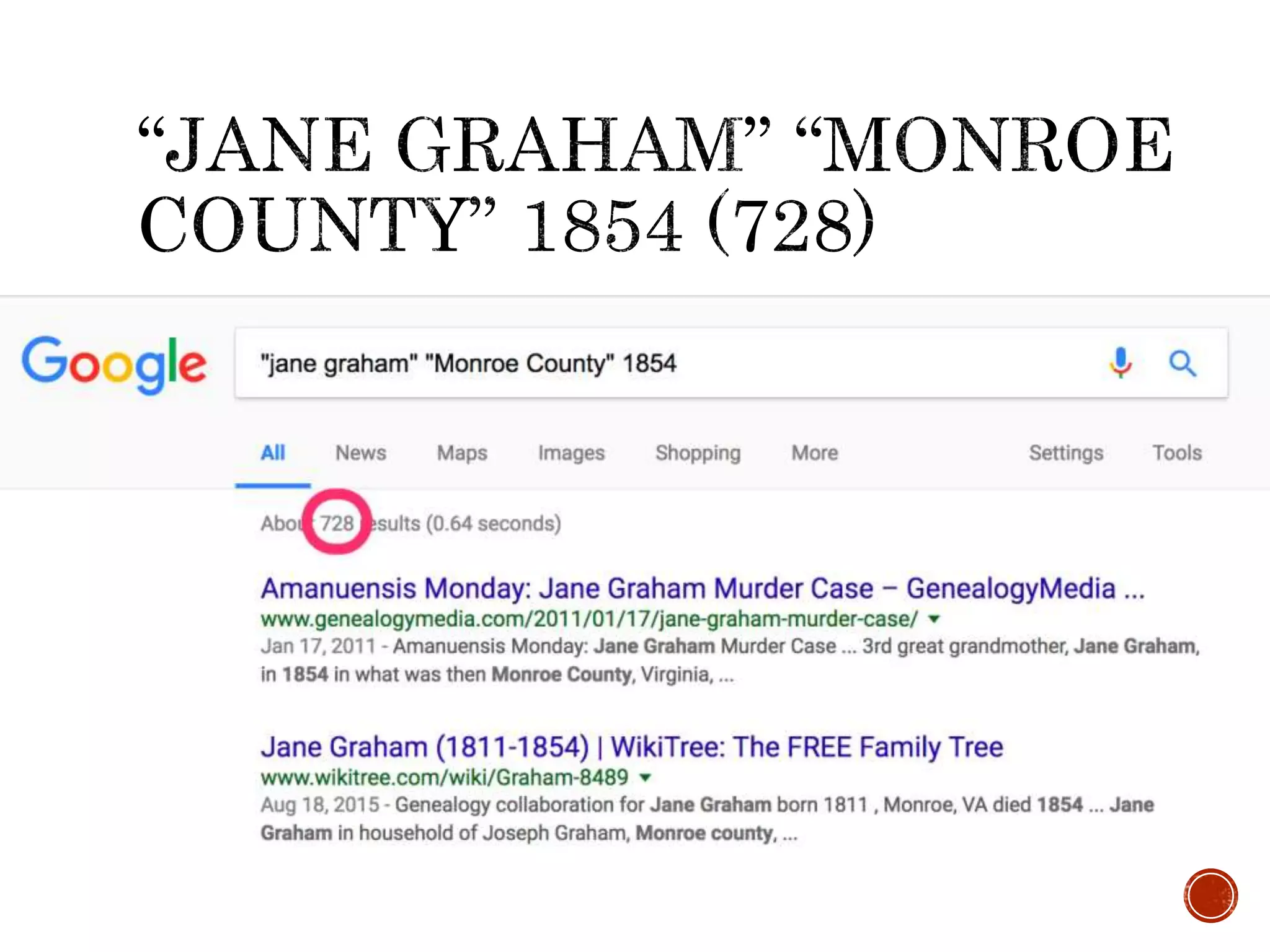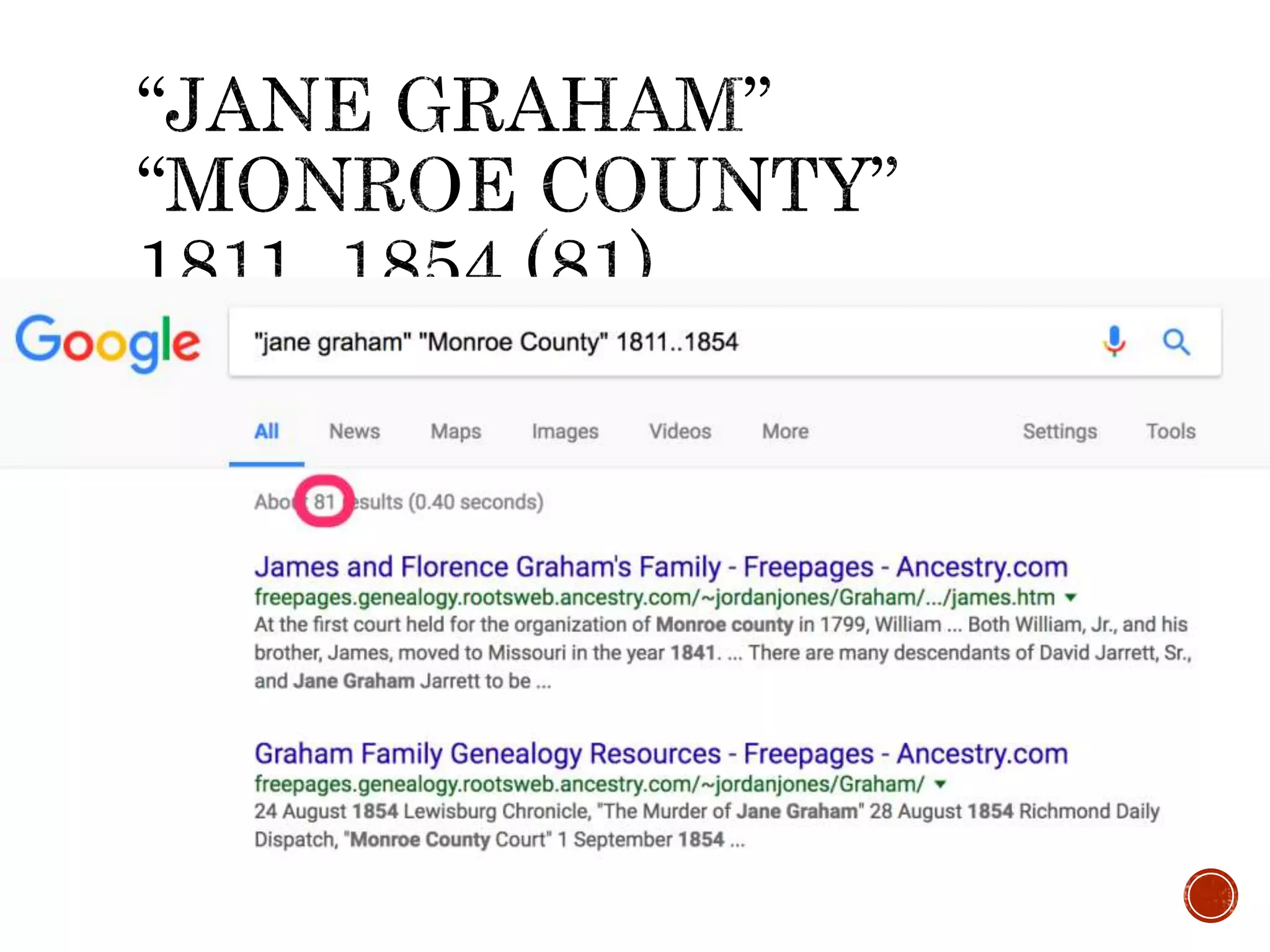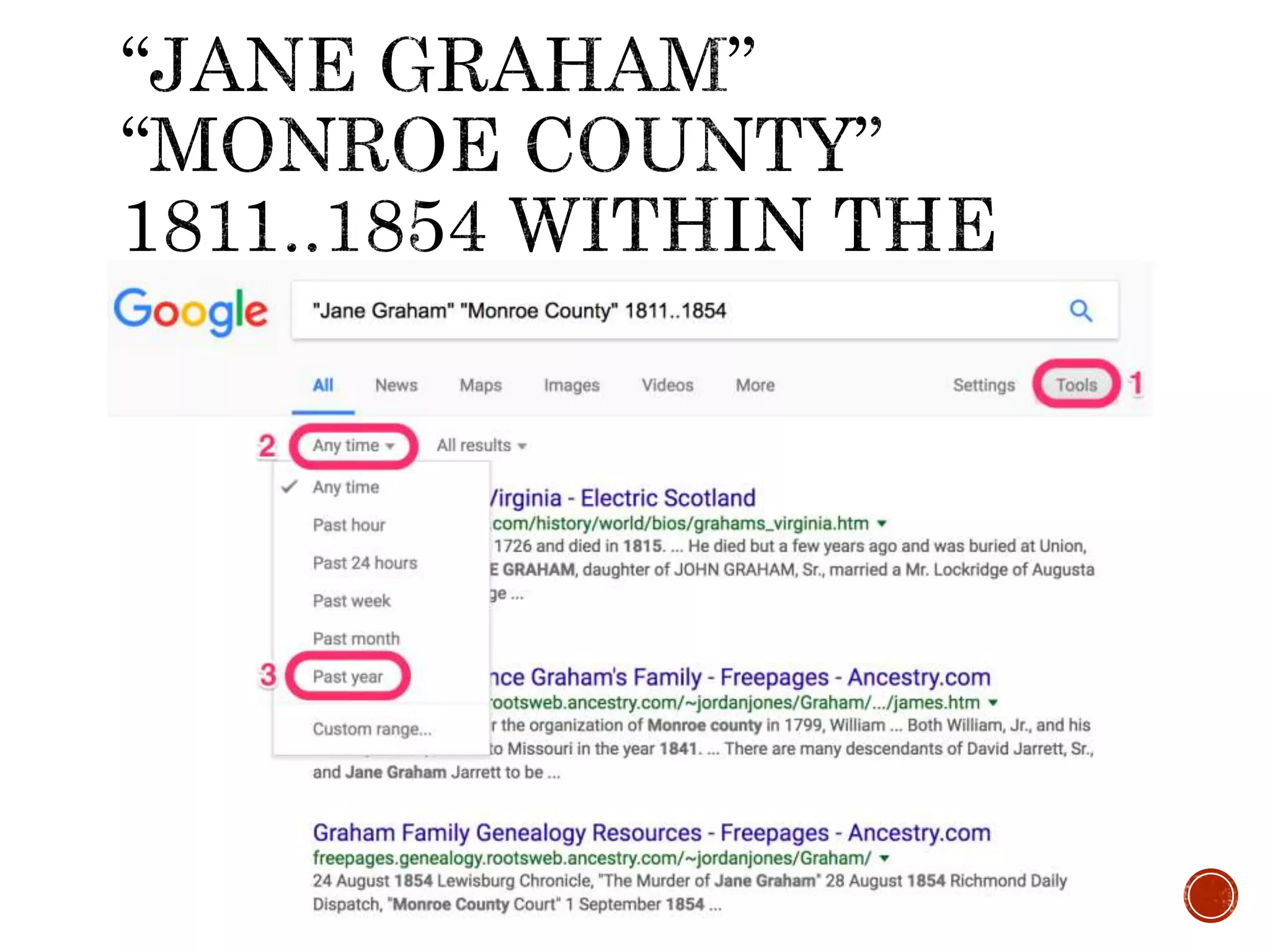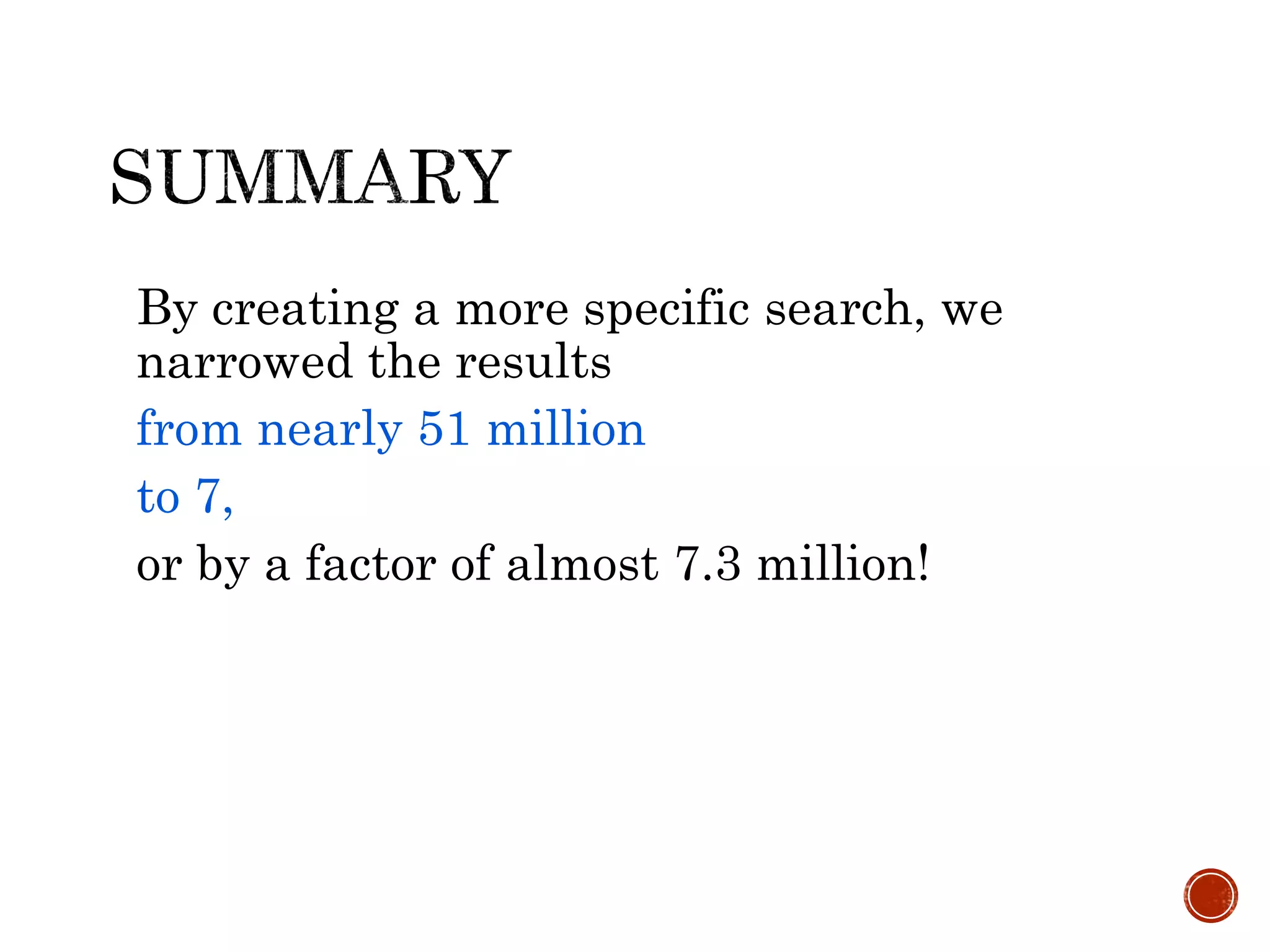The document outlines guidelines and best practices for genealogical searching, focusing on effective use of search engines and navigation techniques. It emphasizes the importance of keyword searches, advanced search methods, and the utilization of various online tools and databases to enhance research efficiency. Additionally, it warns against unauthorized photography and recording during the session, citing copyright concerns.
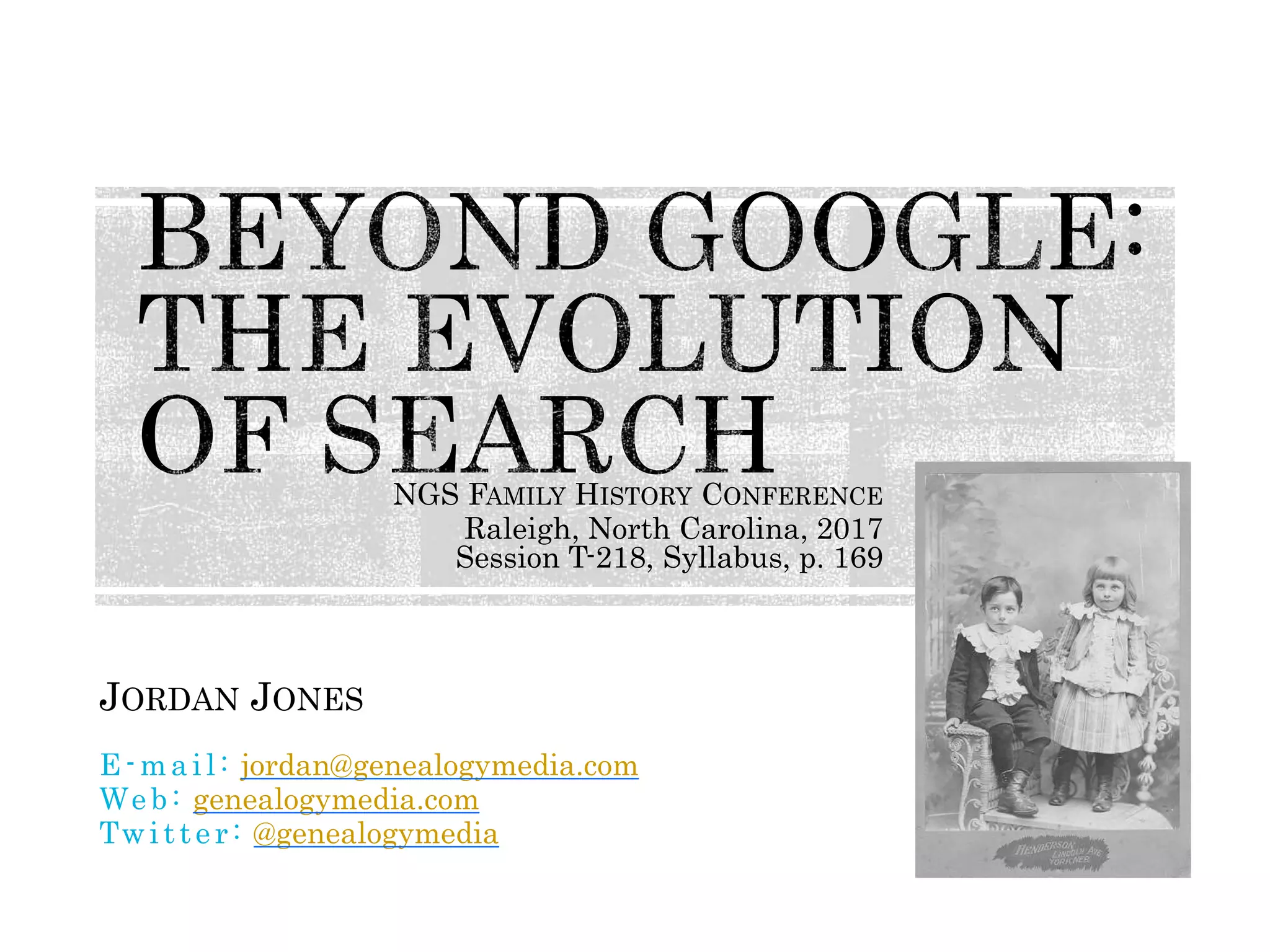
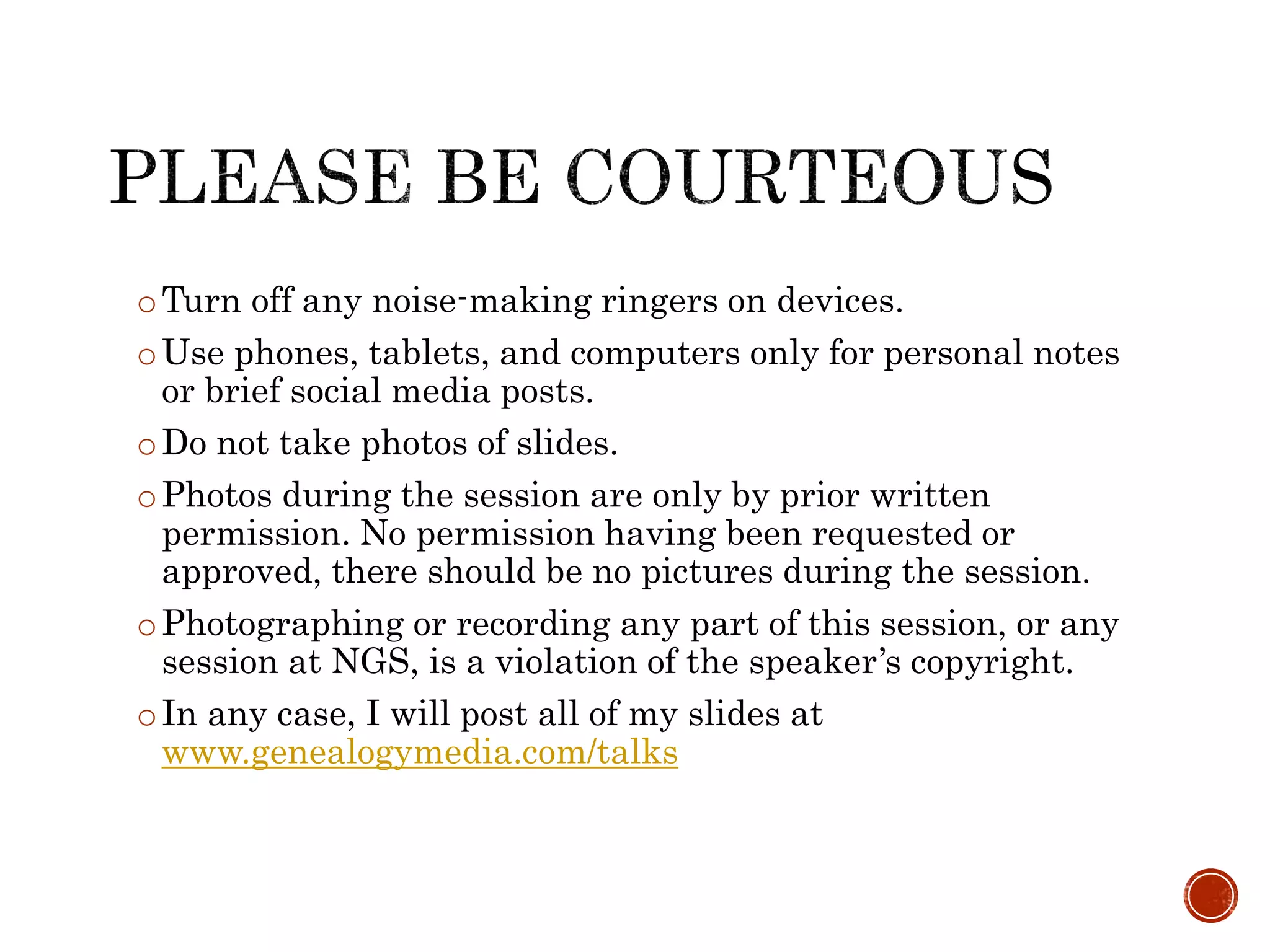
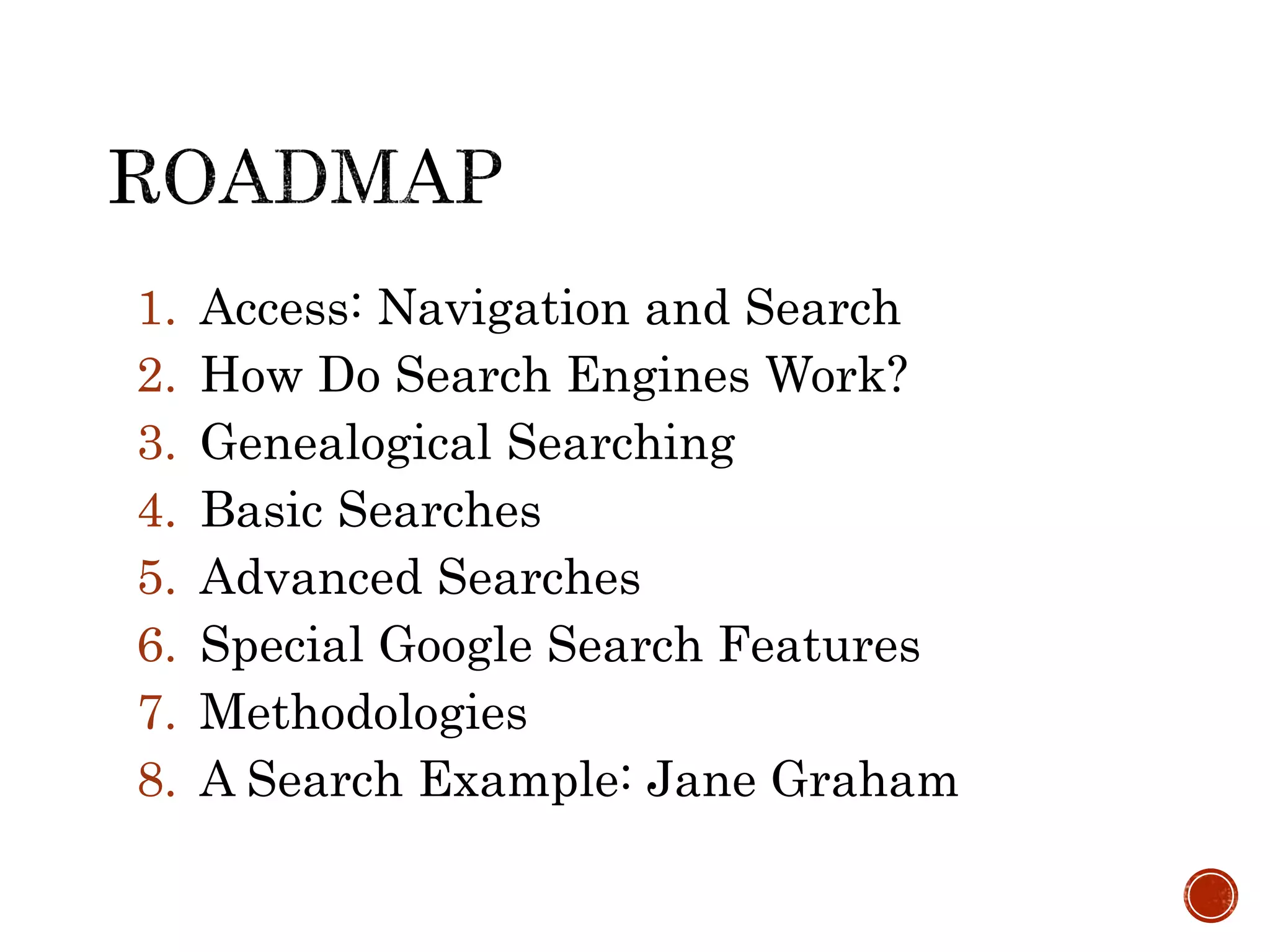
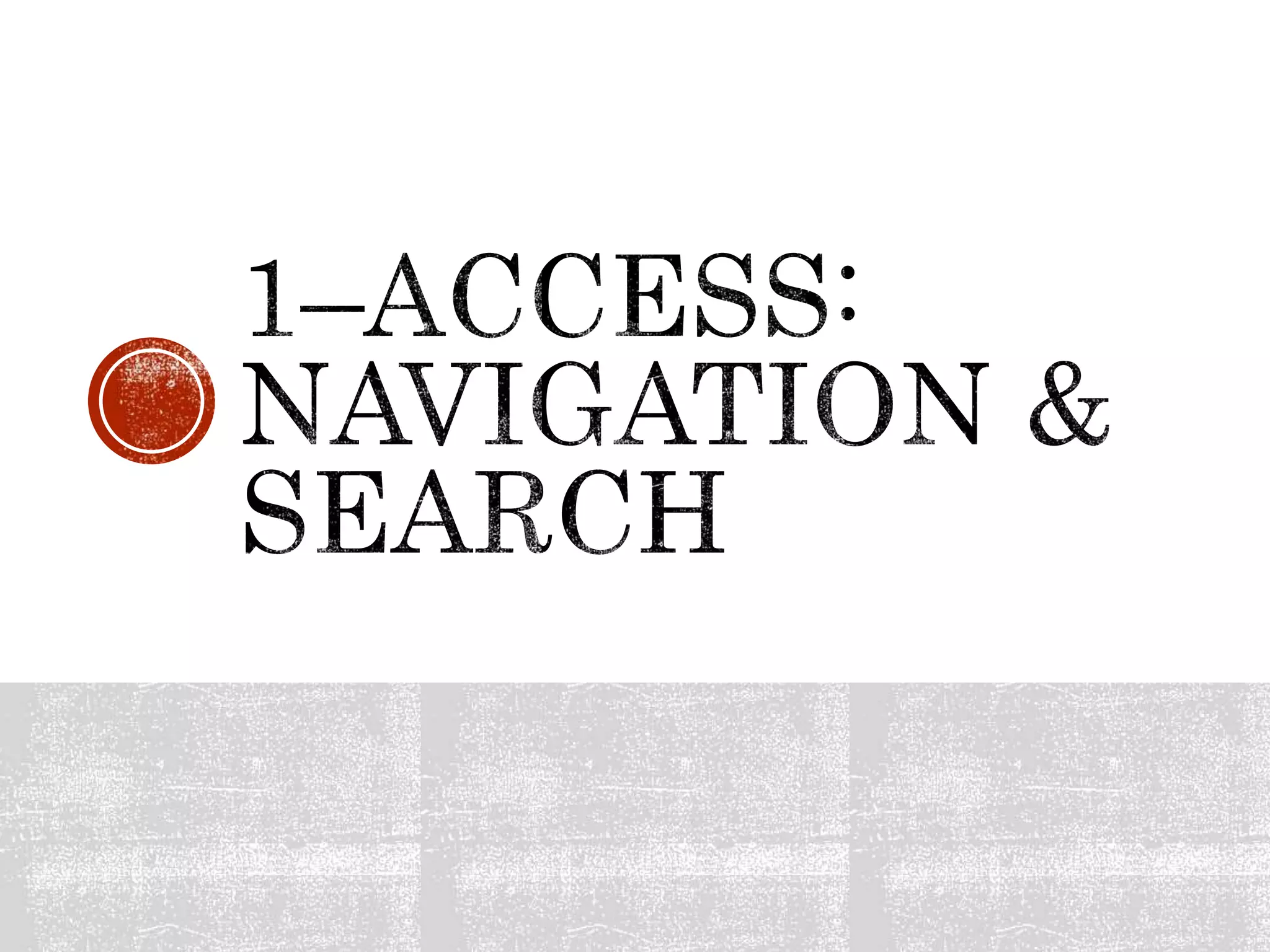
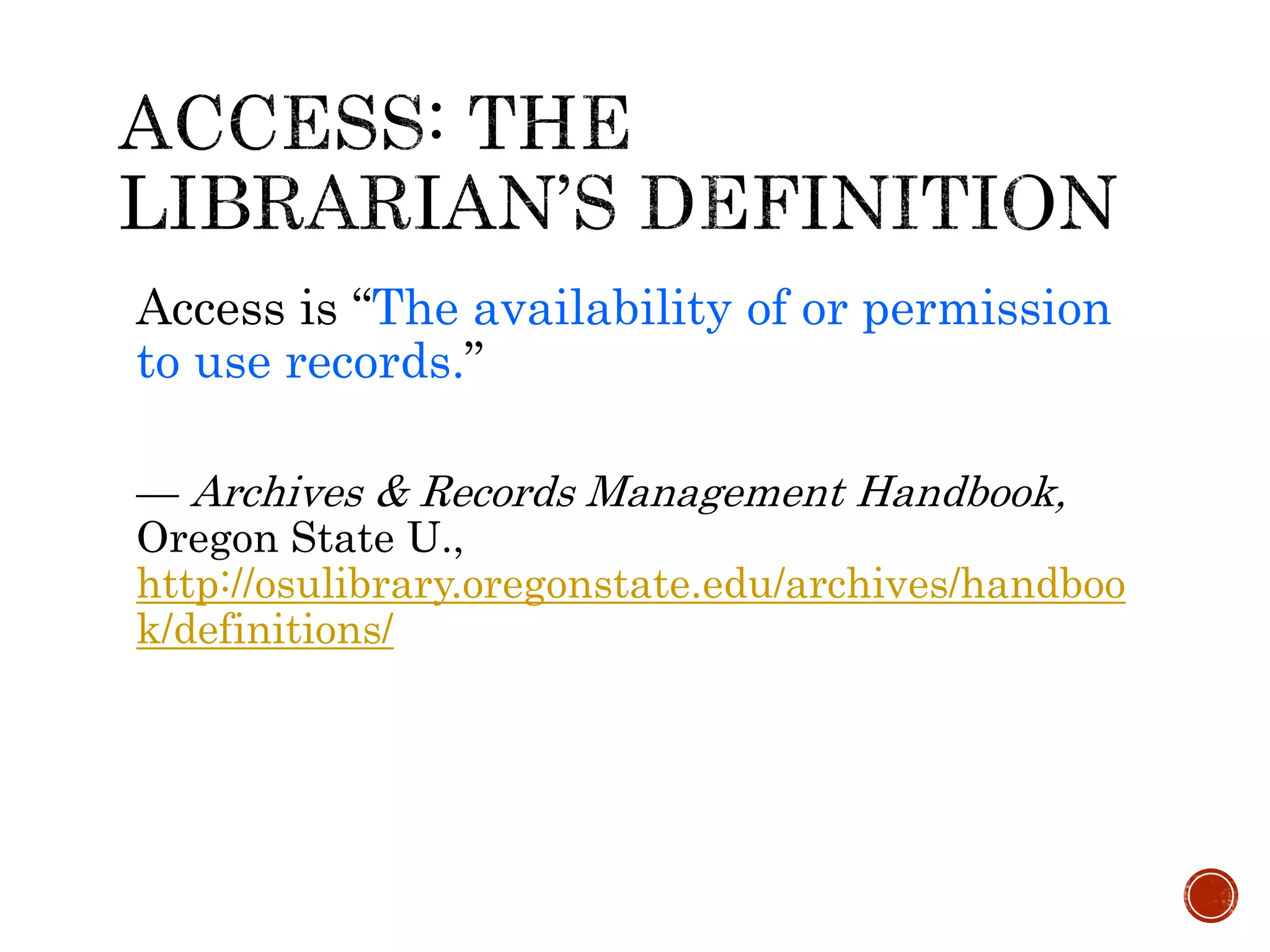
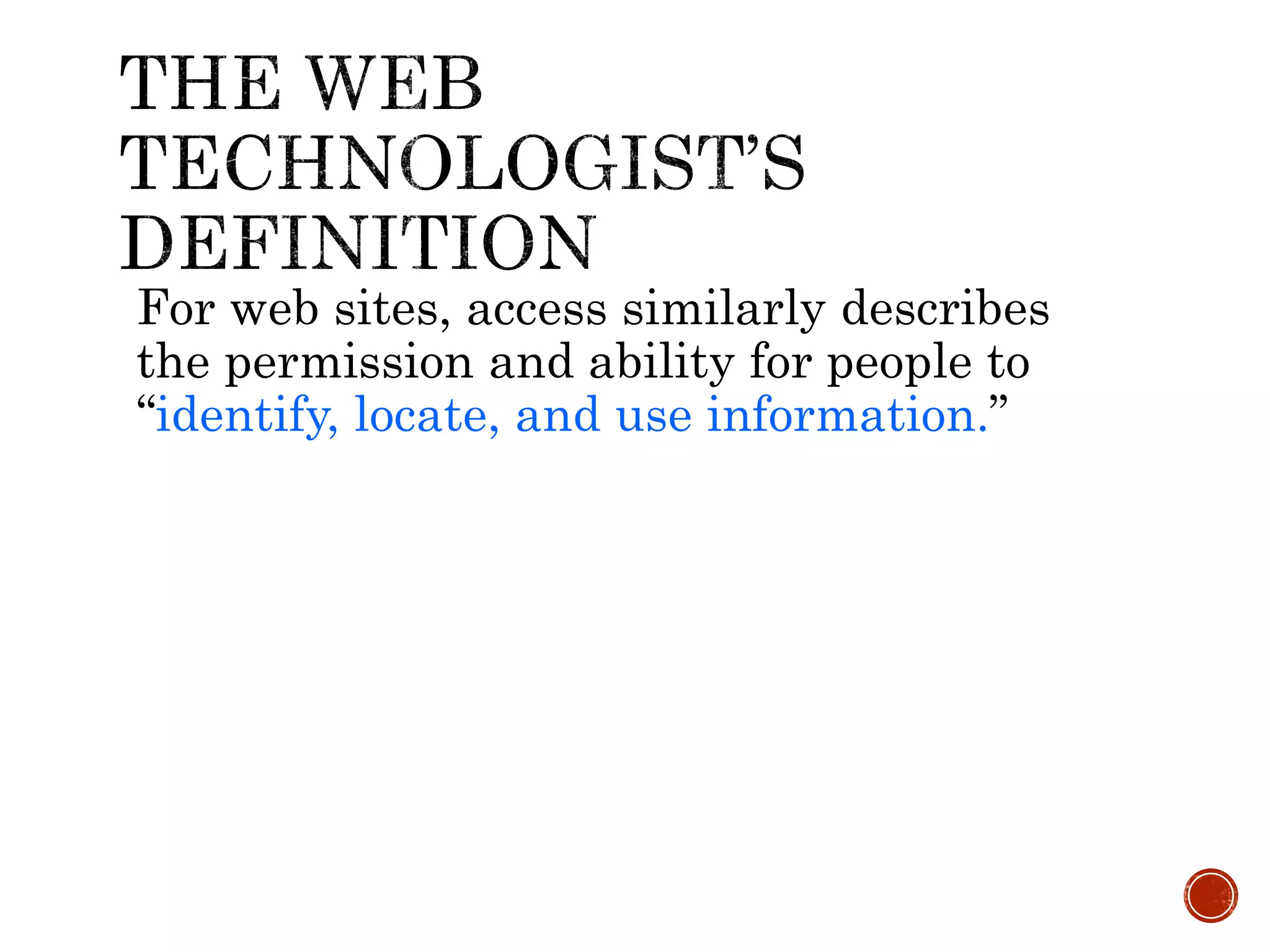
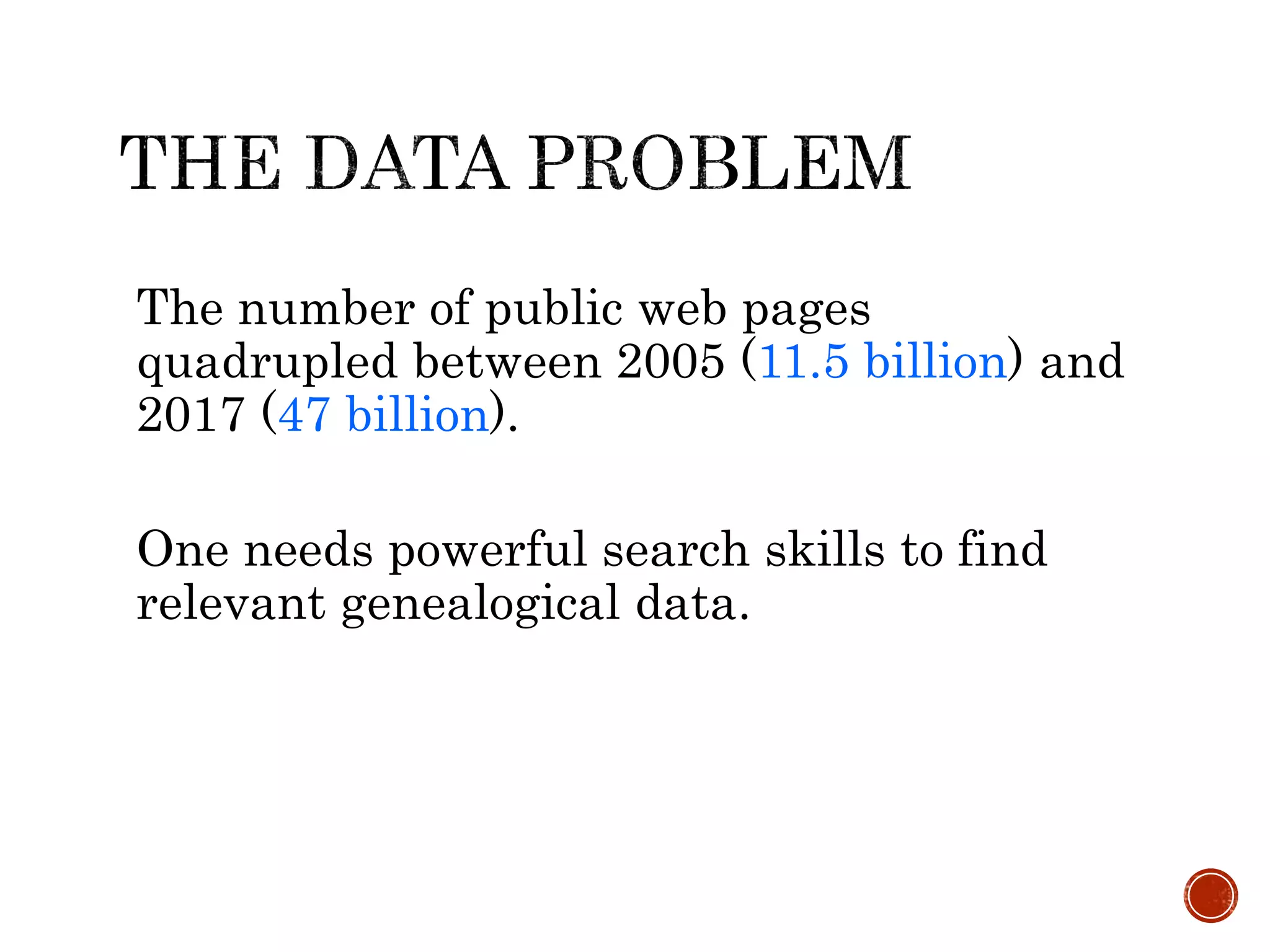
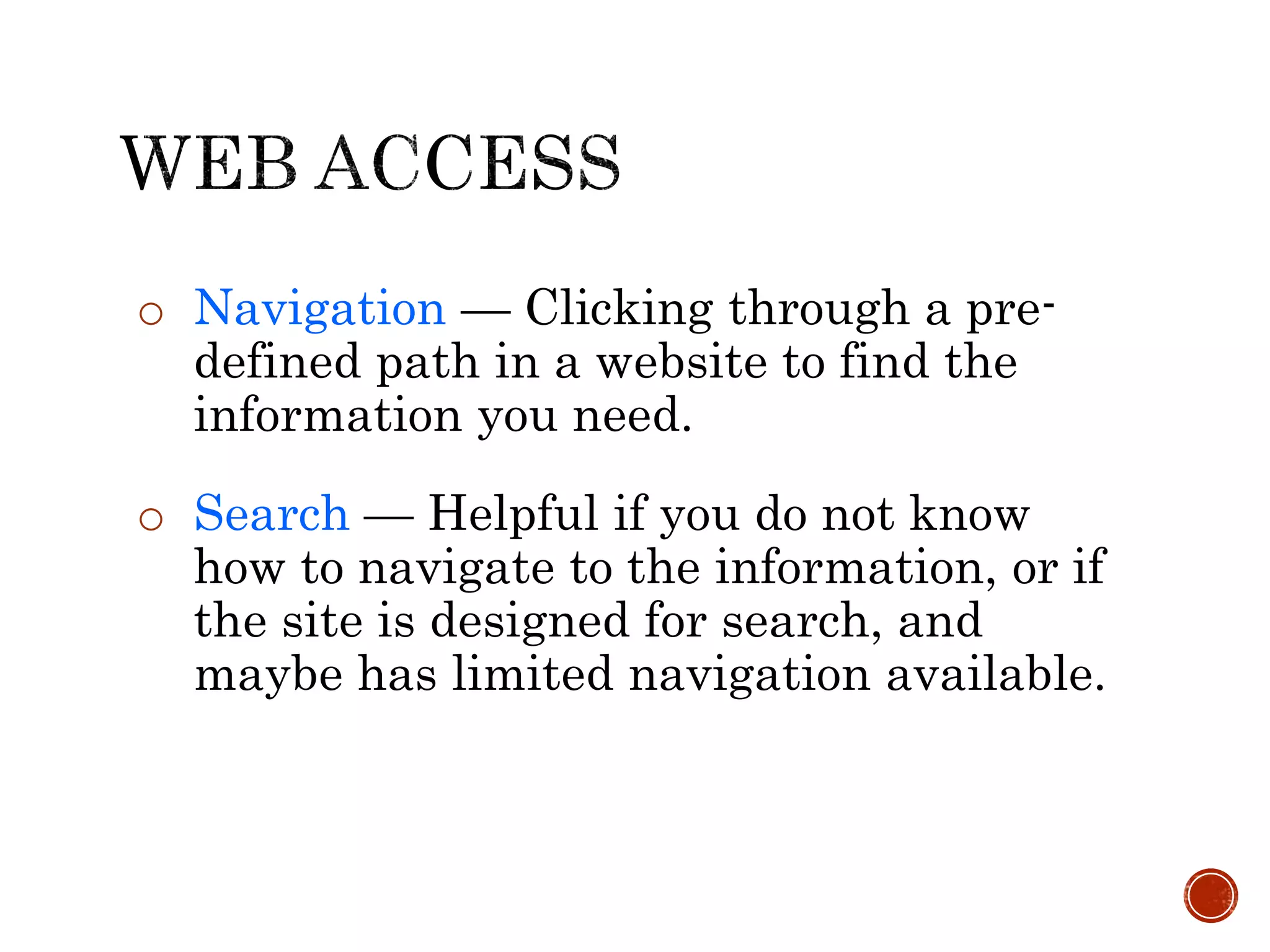
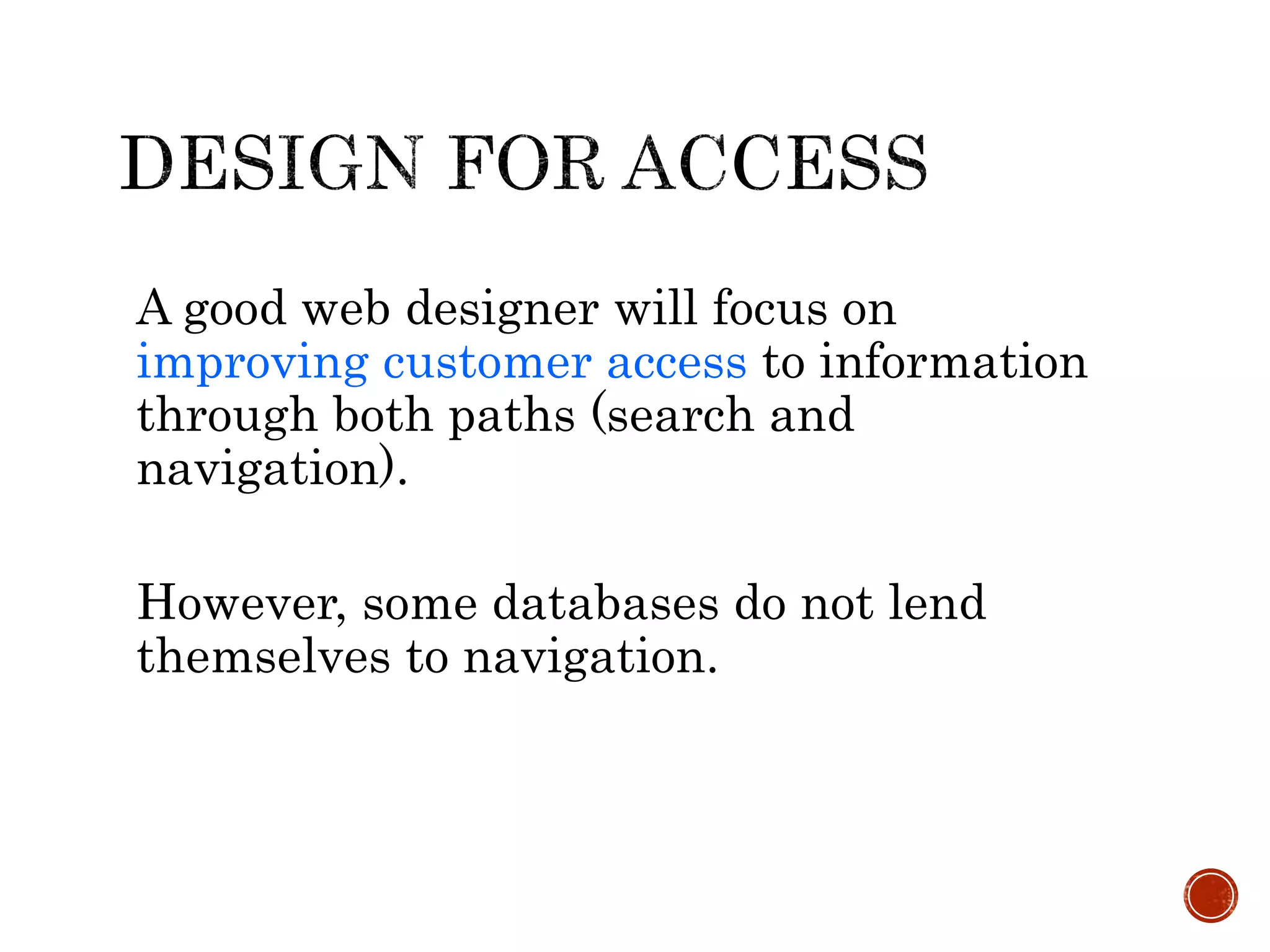
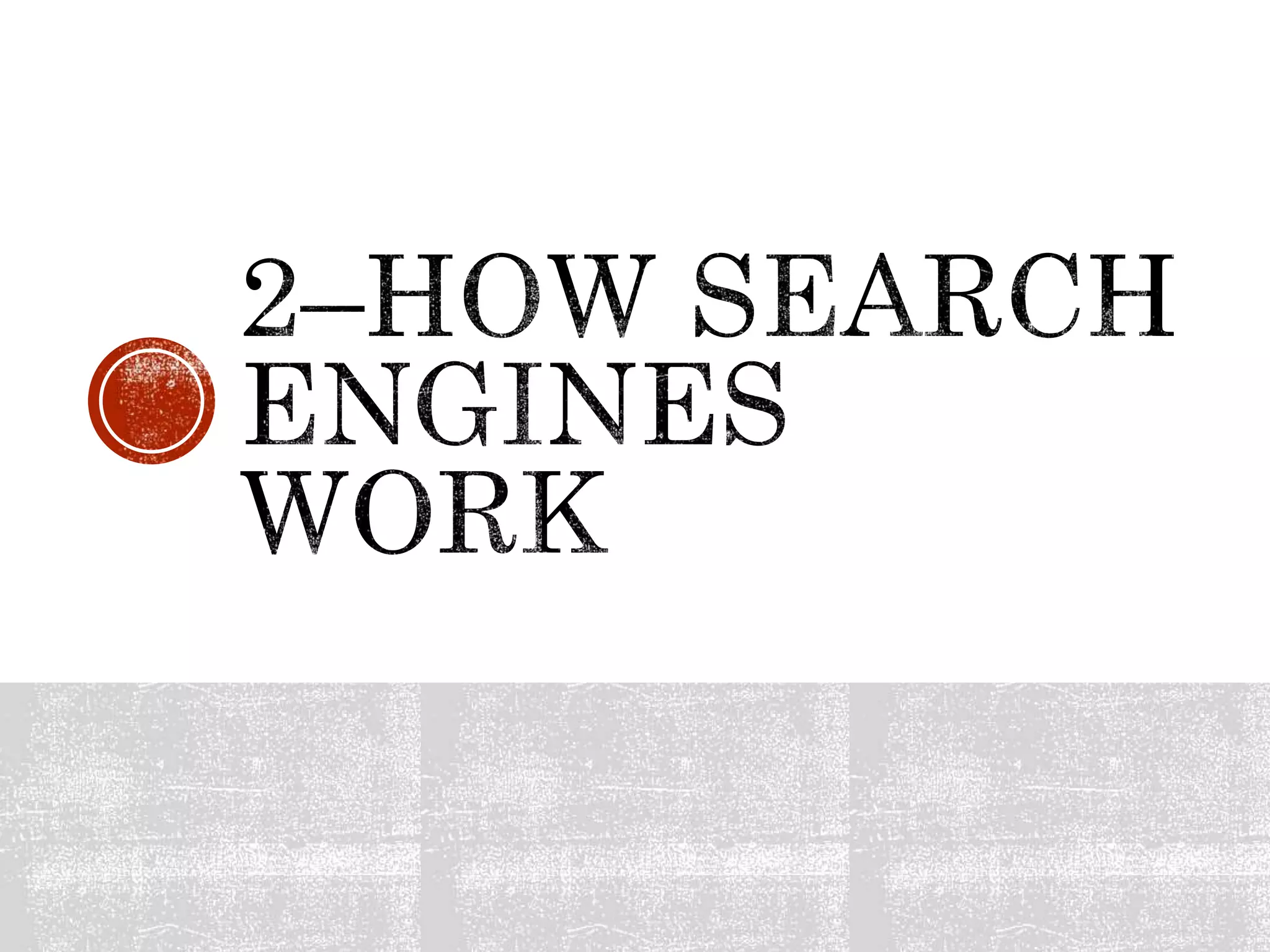
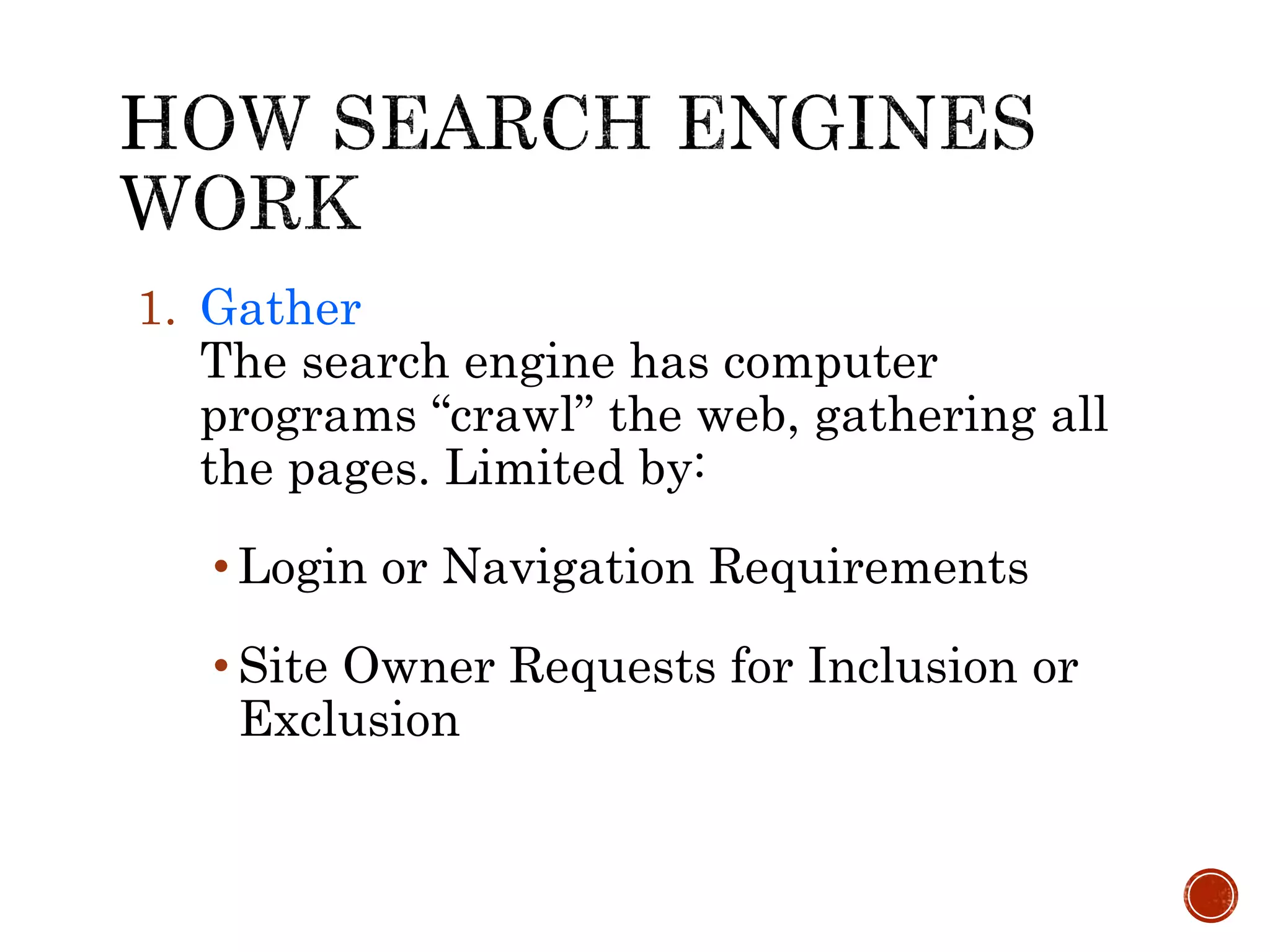
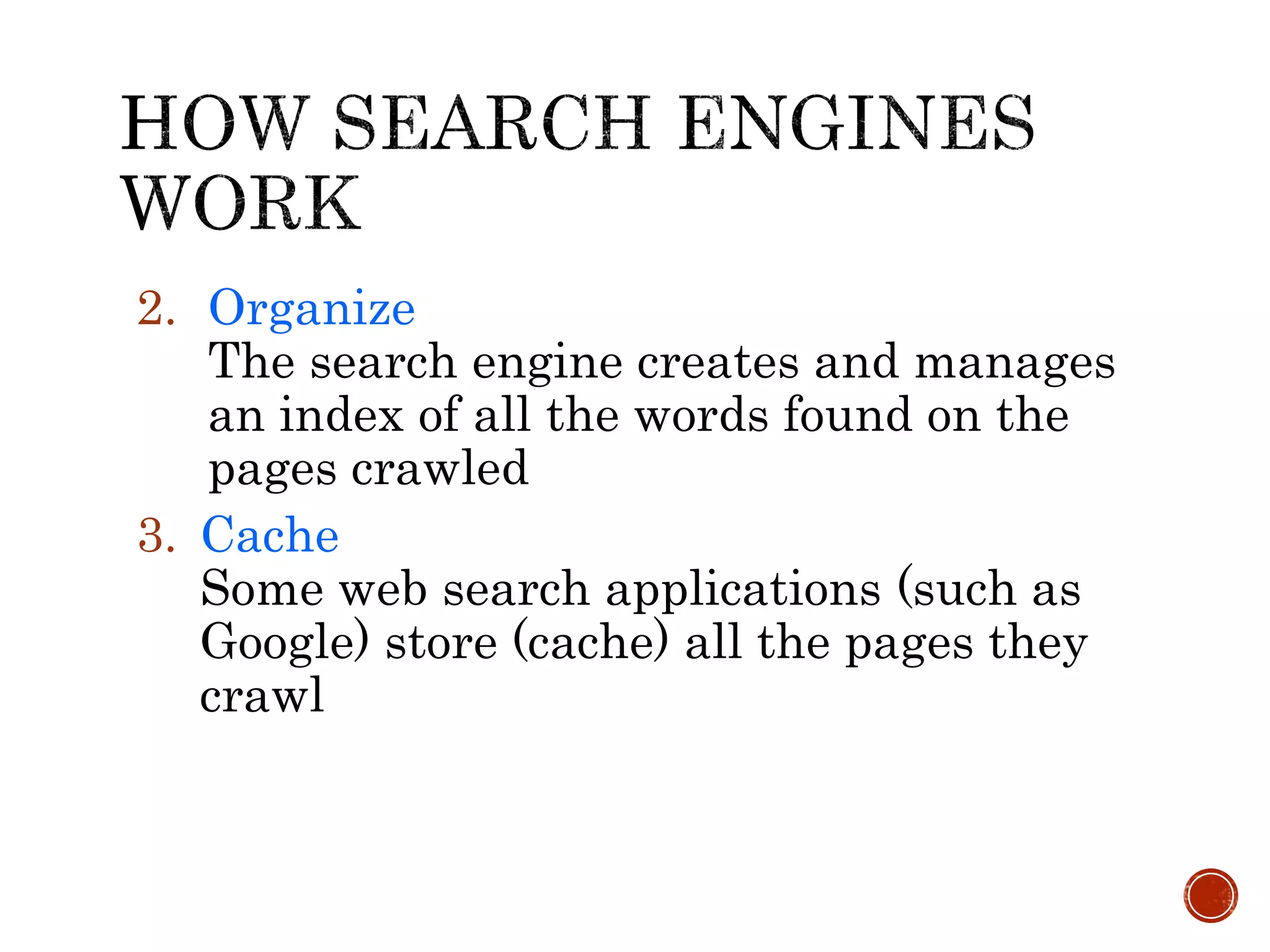
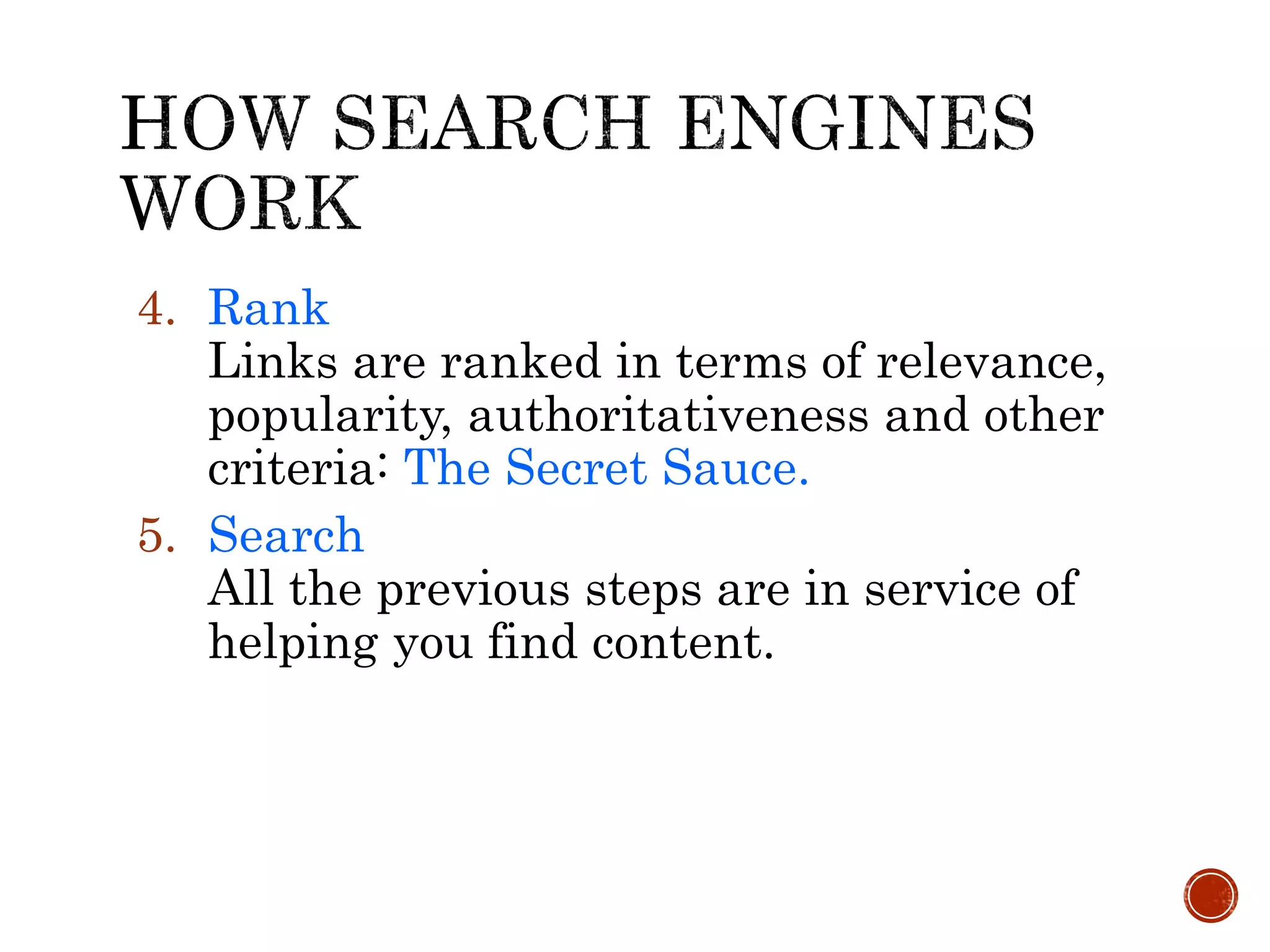
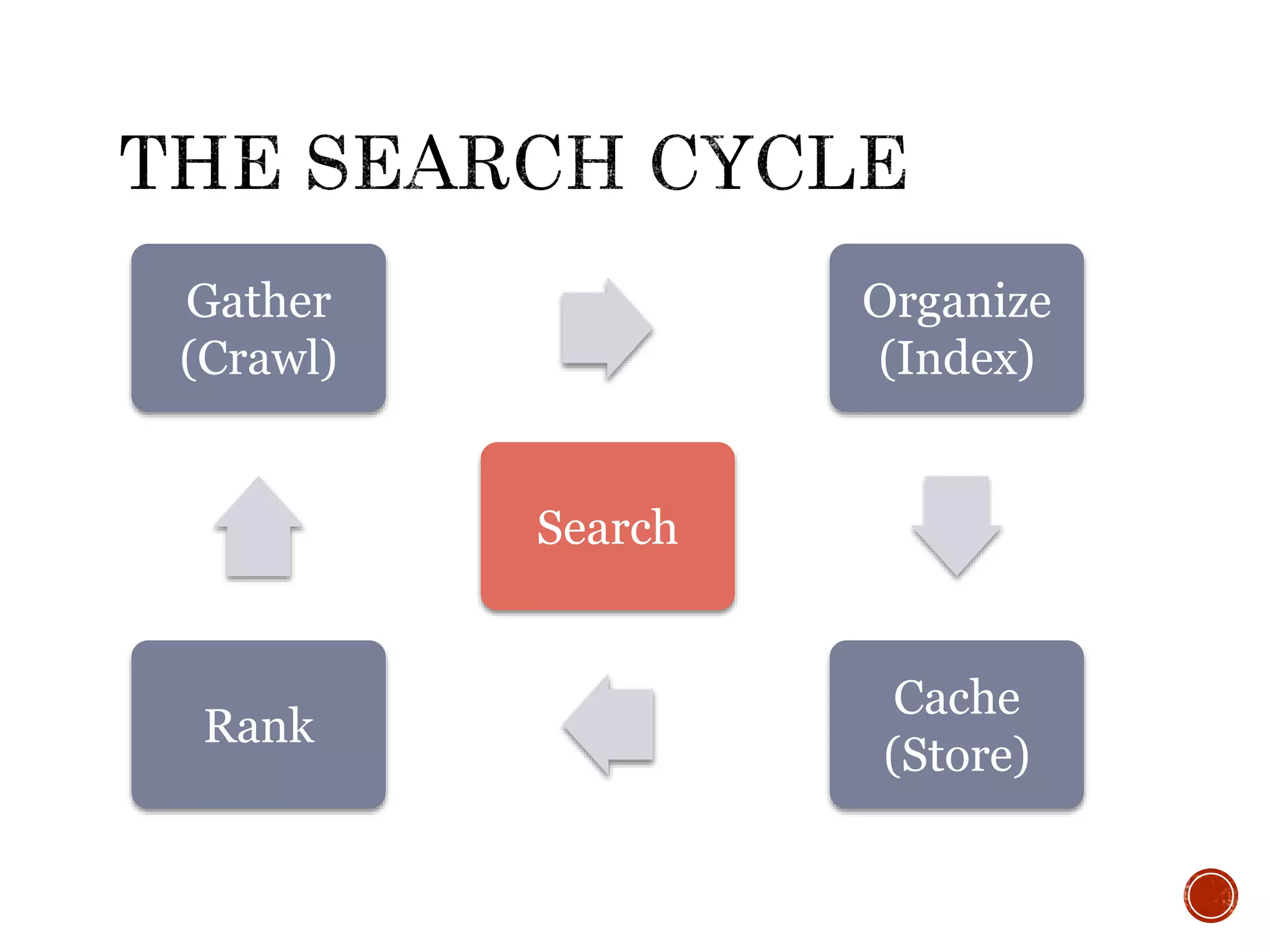
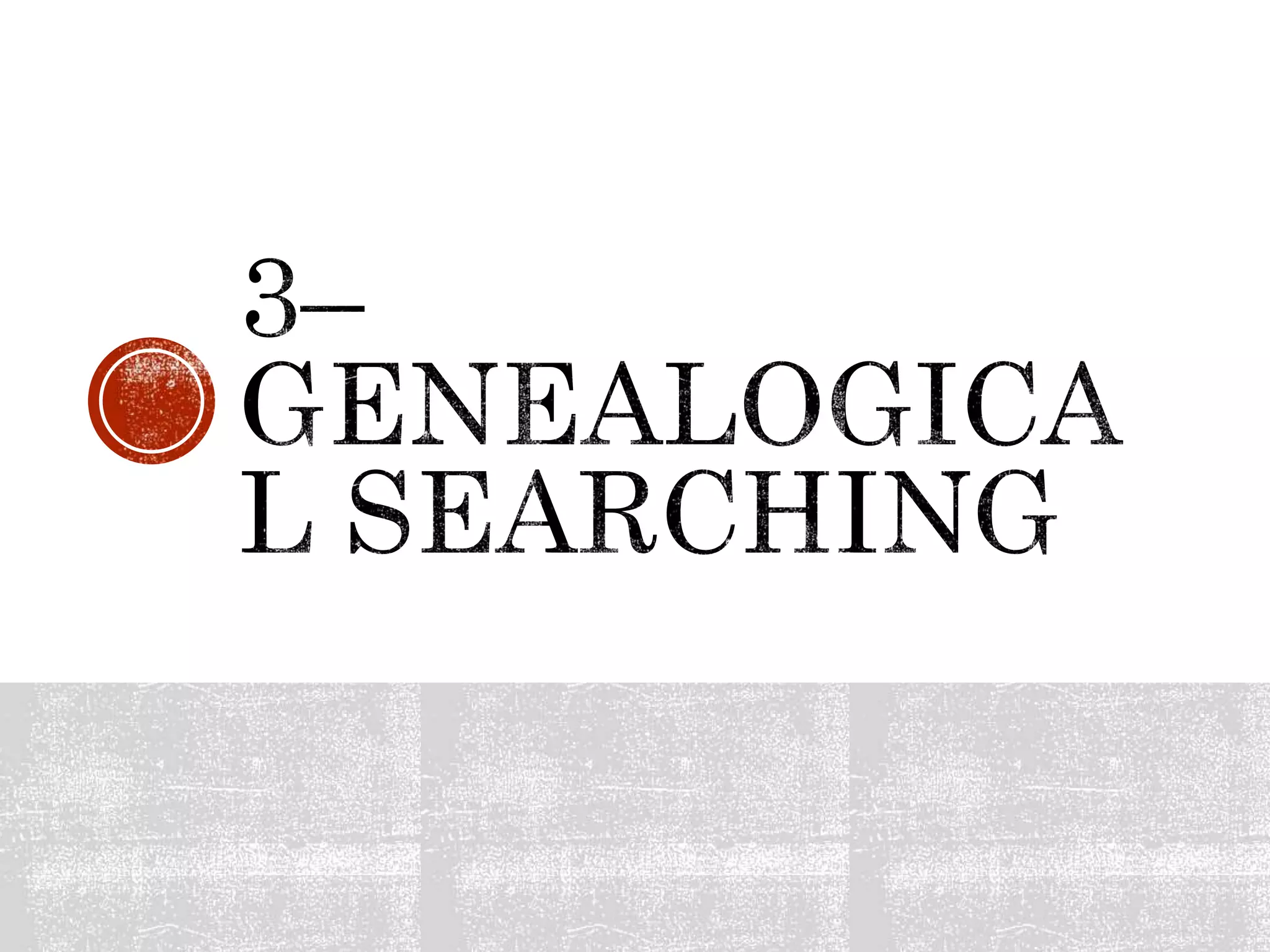
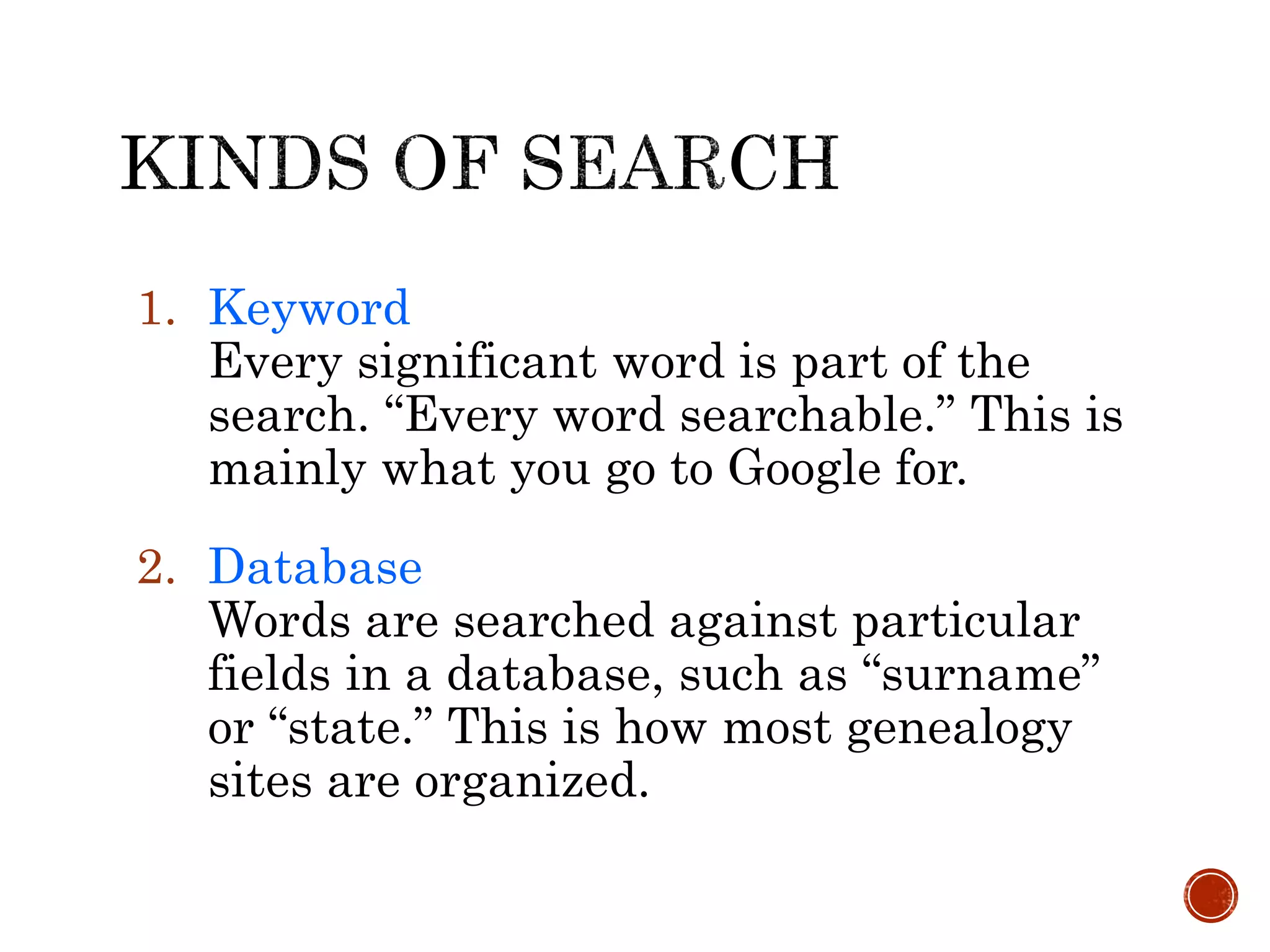
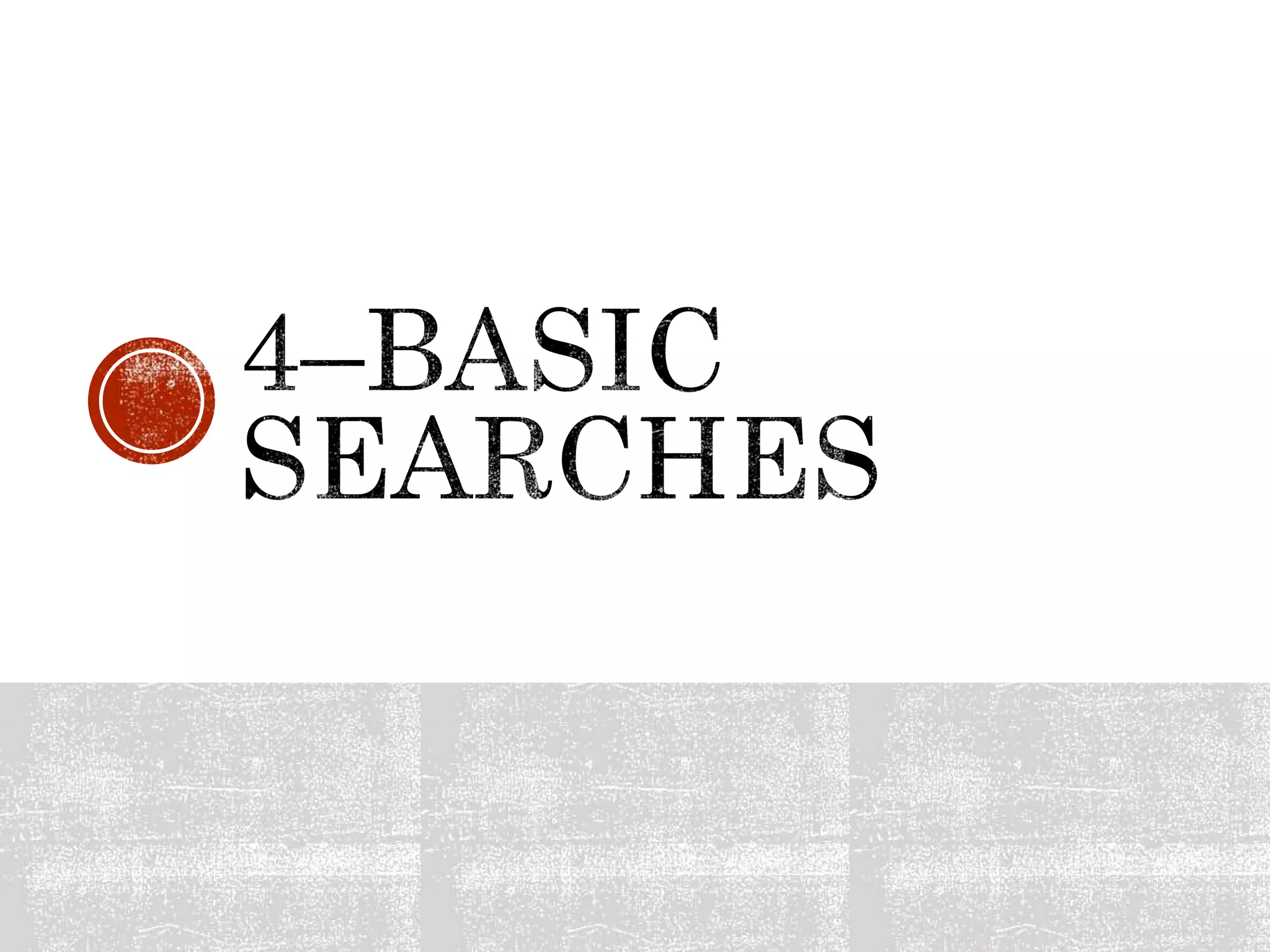
![Jane Graham
Google: [ Jane Graham ]](https://image.slidesharecdn.com/2017-05-11-t218-beyondgoogle-public-170618174931/75/Beyond-Google-The-Evolution-of-Search-NGS-2017-18-2048.jpg)
![To include common words or to ignore
plurals and synonyms and search for a term
exactly as you typed it, preface the term with
a + sign.
Google: [ Jane Graham +barn ]](https://image.slidesharecdn.com/2017-05-11-t218-beyondgoogle-public-170618174931/75/Beyond-Google-The-Evolution-of-Search-NGS-2017-19-2048.jpg)
![The exact phrase “Jane Graham”.
Google: [ “Jane Graham” ]
will find only pages with the exact phrase
“Jane Graham” and ignore pages that only
have phrases such as “Jane Eliza Graham”](https://image.slidesharecdn.com/2017-05-11-t218-beyondgoogle-public-170618174931/75/Beyond-Google-The-Evolution-of-Search-NGS-2017-20-2048.jpg)
![“Jane” is near “Graham”.
Google: [ Jane * Graham OR Graham * Jane
]
will find “Jane Eliza Graham”, “Jane ‘Liza’
Eliza Graham”, and “Graham, Miss Jane”
but not “Jane Graham” or “Graham, Jane”](https://image.slidesharecdn.com/2017-05-11-t218-beyondgoogle-public-170618174931/75/Beyond-Google-The-Evolution-of-Search-NGS-2017-21-2048.jpg)
![AND / OR
Google: [ “Jane Graham” OR “Graham, Jane”
]
This allows you to find something in spite of
the alternate ways something may be listed.
It is very handy for first-name last and last-
name first searches or searches with names
and nicknames.](https://image.slidesharecdn.com/2017-05-11-t218-beyondgoogle-public-170618174931/75/Beyond-Google-The-Evolution-of-Search-NGS-2017-22-2048.jpg)
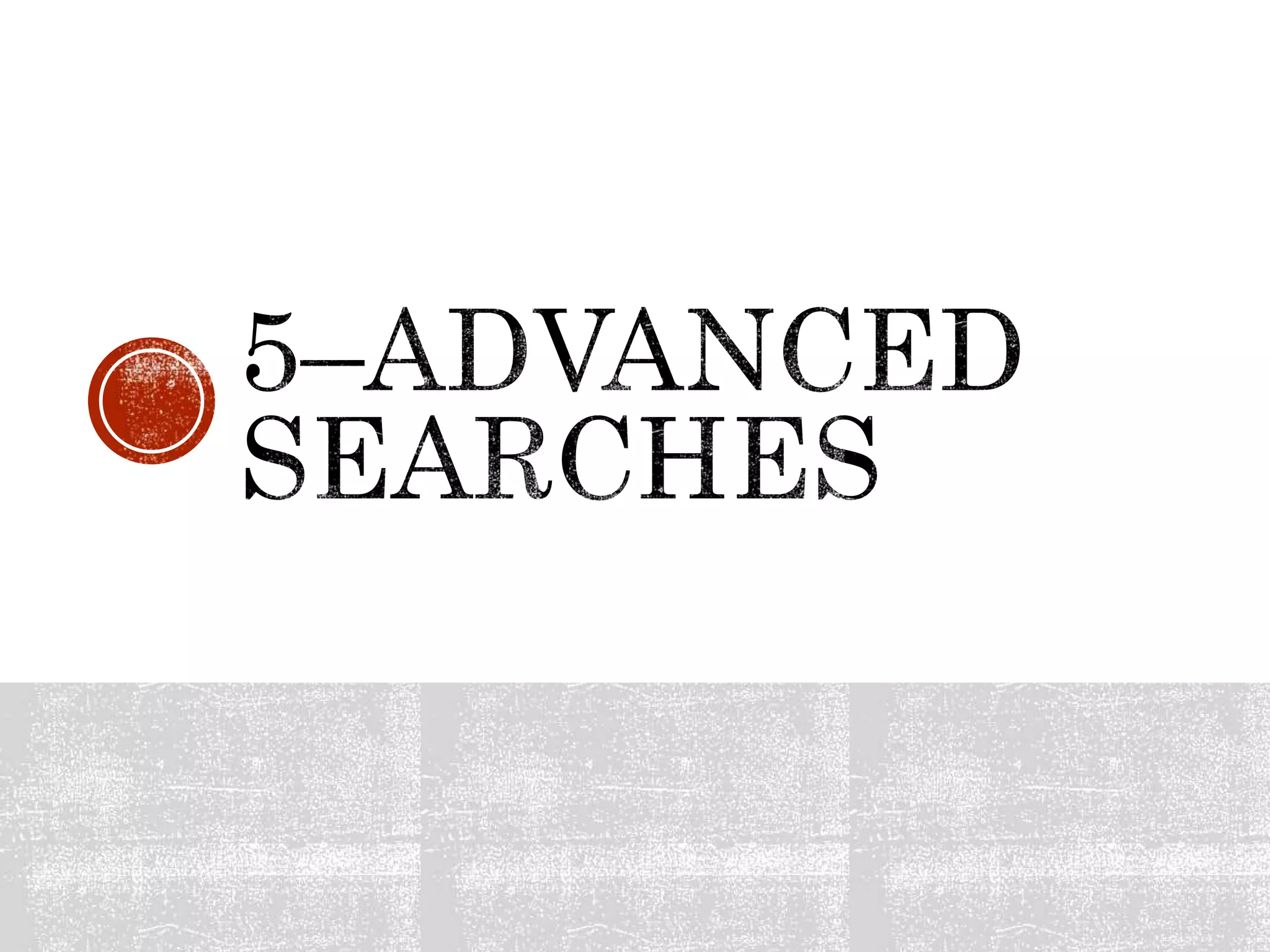
![Find pages with words like your search
term or phrase.
(More useful outside genealogy, but has
some similarity to a Soundex search.)
Google: A search for [ ~genealogy ] returns
results about genealogy and family history.](https://image.slidesharecdn.com/2017-05-11-t218-beyondgoogle-public-170618174931/75/Beyond-Google-The-Evolution-of-Search-NGS-2017-24-2048.jpg)
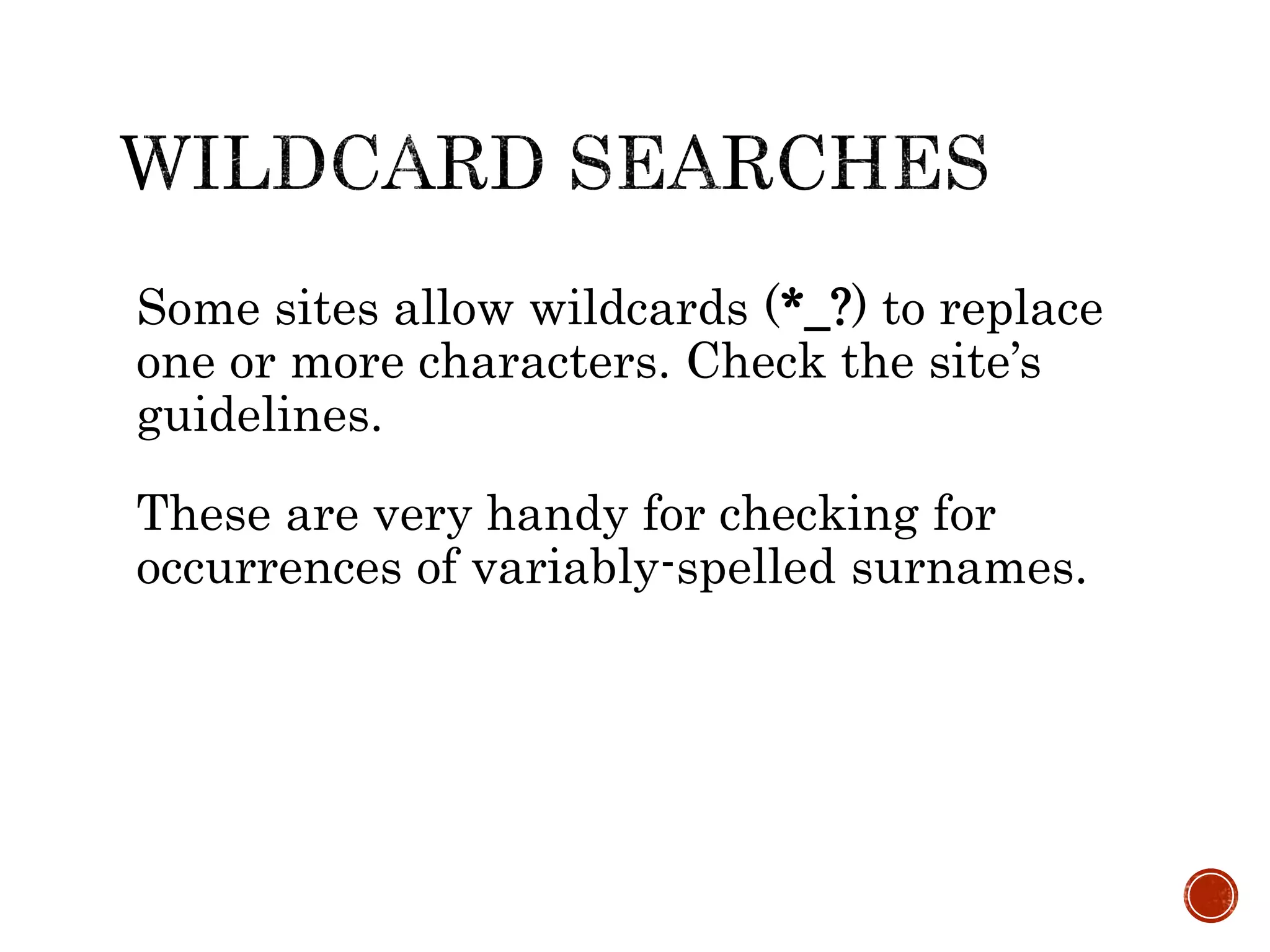
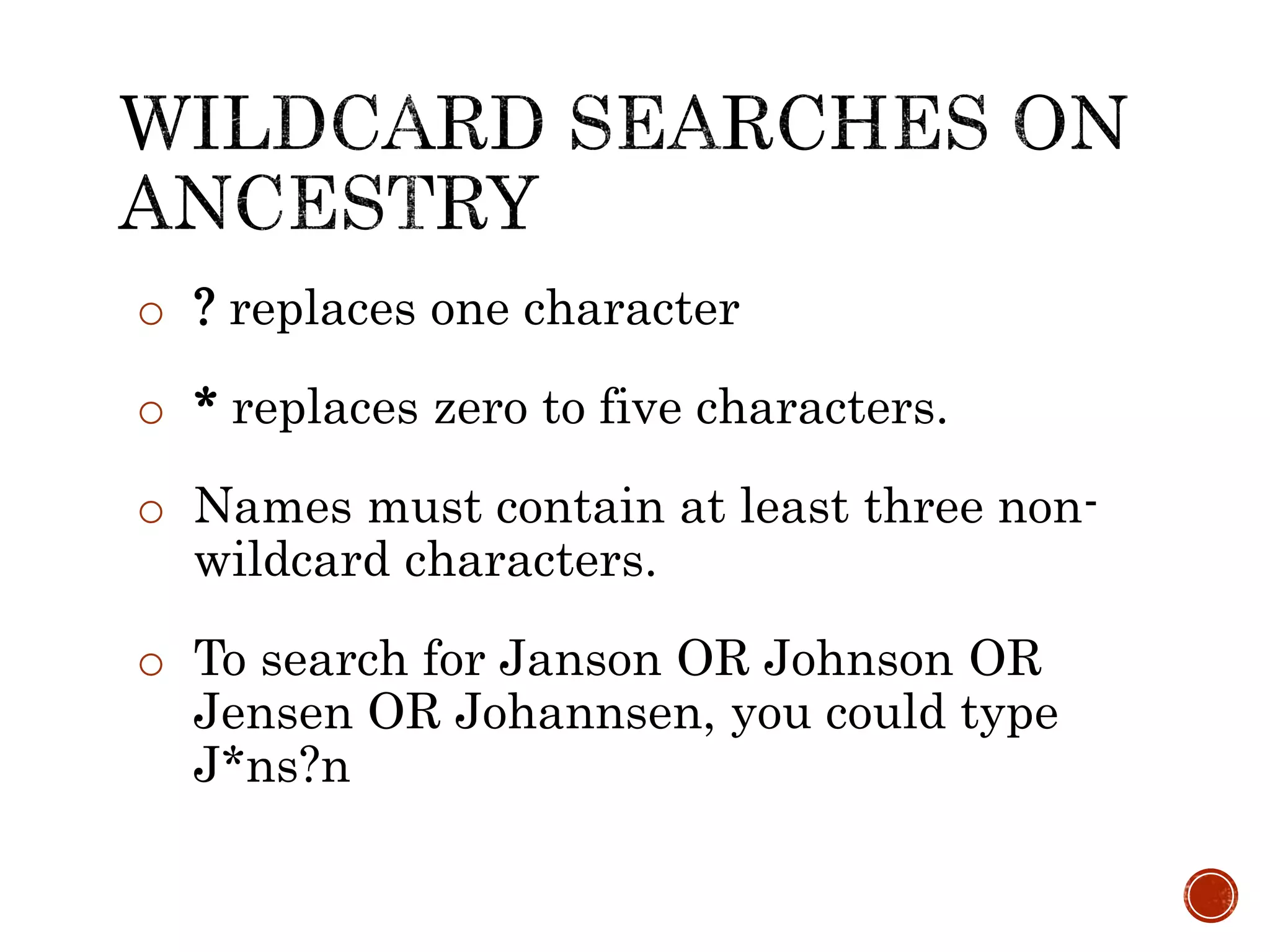
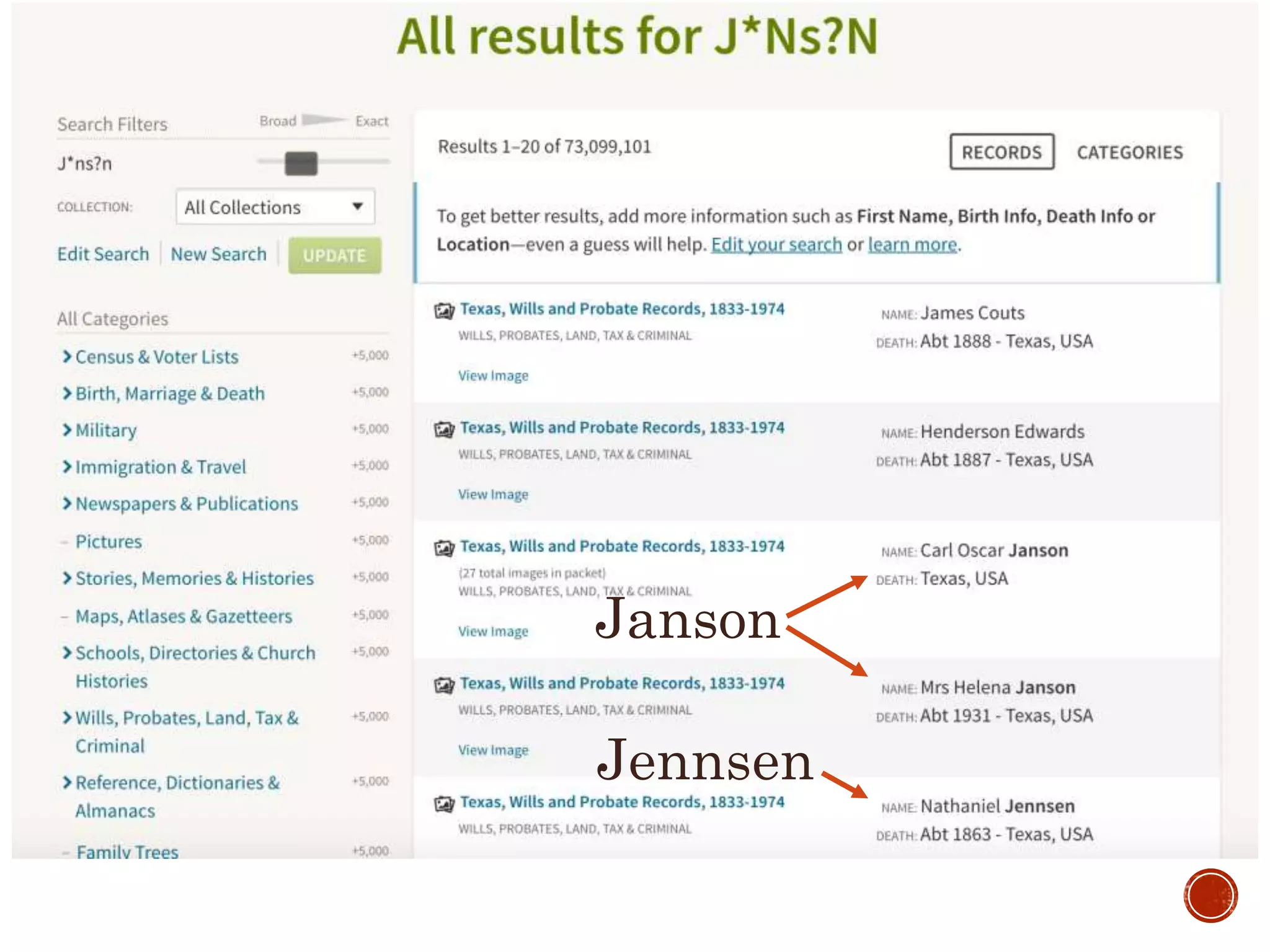
![o * replaces one or two whole words.
o There is no wild card for less than a word
on Google.
o For multiple surname spelling searches
on Google, you would use the Boolean OR
operator [ Johnson OR Jensen OR
Johannsen ]](https://image.slidesharecdn.com/2017-05-11-t218-beyondgoogle-public-170618174931/75/Beyond-Google-The-Evolution-of-Search-NGS-2017-28-2048.jpg)
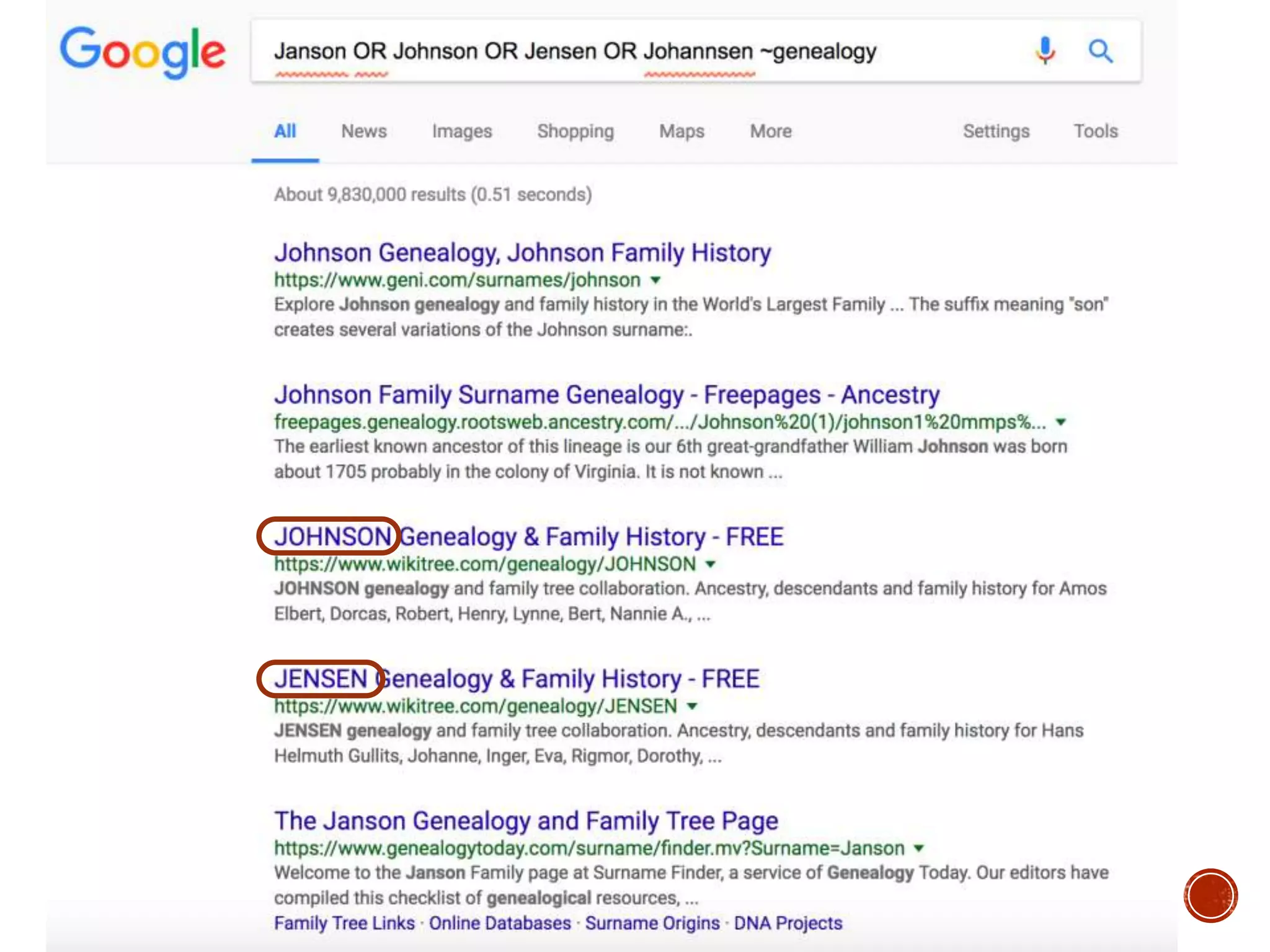
![Find pages that do not include a particular
word.
Google: [ Jane Graham -Eliza ]](https://image.slidesharecdn.com/2017-05-11-t218-beyondgoogle-public-170618174931/75/Beyond-Google-The-Evolution-of-Search-NGS-2017-30-2048.jpg)
![Find pages that do not include a particular
phrase.
Google: [ Jane -“Eliza Graham” ]](https://image.slidesharecdn.com/2017-05-11-t218-beyondgoogle-public-170618174931/75/Beyond-Google-The-Evolution-of-Search-NGS-2017-31-2048.jpg)
![Find pages in a specific site, such as
usgenweb.org, where ...
Google: [ site:www.usgenweb.org Graham ]](https://image.slidesharecdn.com/2017-05-11-t218-beyondgoogle-public-170618174931/75/Beyond-Google-The-Evolution-of-Search-NGS-2017-32-2048.jpg)
![Find pages, but exclude a specific site.
Google: [ -site:www.usgenweb.org Graham ]
Useful when you already know what’s at one
site, and it is coming up prominently in your
searches.](https://image.slidesharecdn.com/2017-05-11-t218-beyondgoogle-public-170618174931/75/Beyond-Google-The-Evolution-of-Search-NGS-2017-33-2048.jpg)
![City, County, State or Other Locale can
narrow search results drastically.
Google: [ “Jane Graham” “Monroe County” ]
Keep in mind that this is only a keyword
search on Google. It does not understang
you are talking about a place.
Major genealogy sites, Flickr and other
database searches provide fields to narrow
searches by location.](https://image.slidesharecdn.com/2017-05-11-t218-beyondgoogle-public-170618174931/75/Beyond-Google-The-Evolution-of-Search-NGS-2017-34-2048.jpg)
![Birth Certificate, Obituary, Newspaper
Google: [ “Jane Graham” newspaper ]
Major genealogy sites provide methods for
limiting searches to particular record types
based on database searches.
Google does not know what a newspaper is,
but it sees the word “newspaper” in the site,
or in links to it.](https://image.slidesharecdn.com/2017-05-11-t218-beyondgoogle-public-170618174931/75/Beyond-Google-The-Evolution-of-Search-NGS-2017-35-2048.jpg)
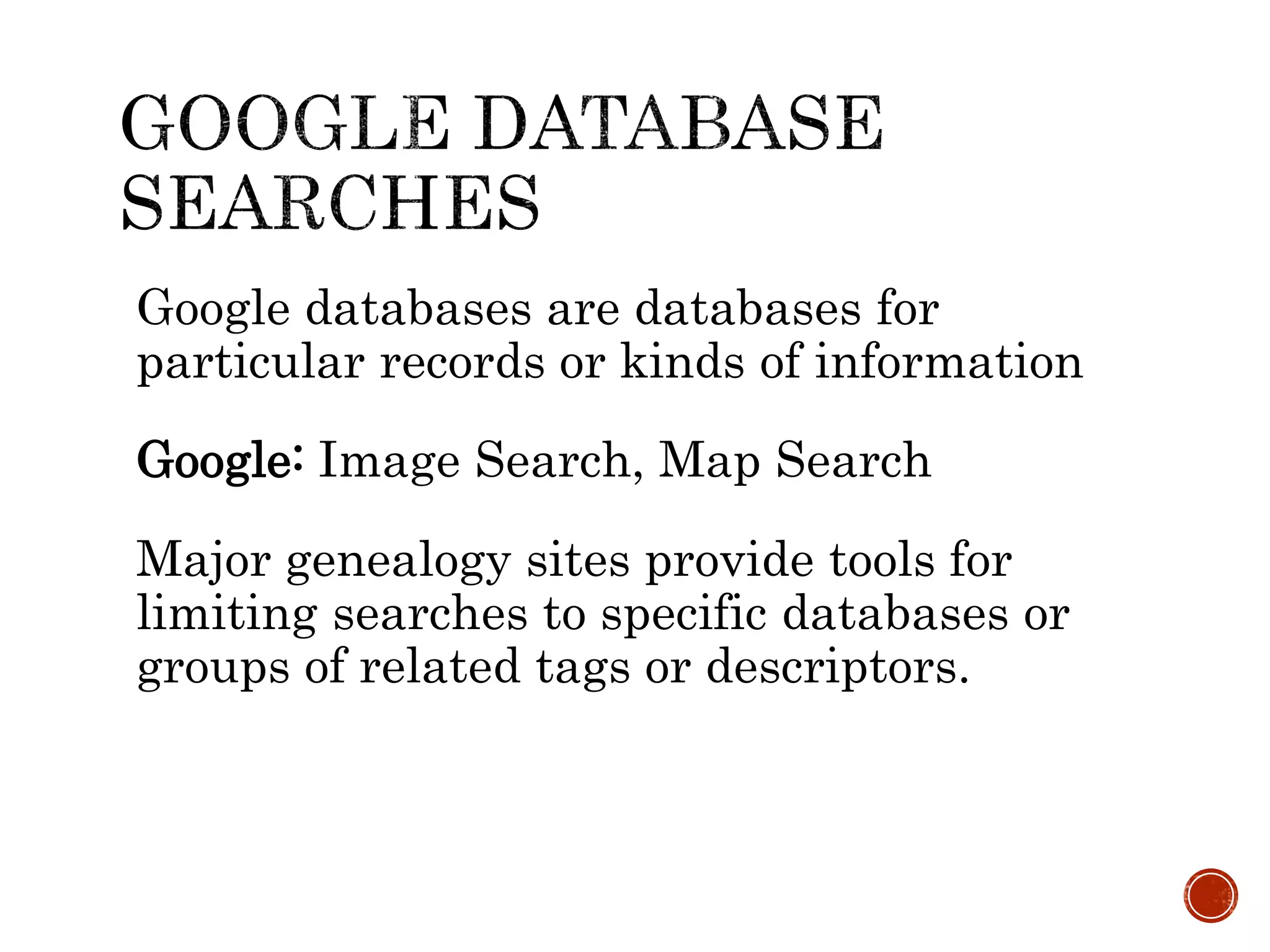
![Soundex, available on many genealogy
websites, and not only for census records.
Find pages with words like your search
term or phrase. (More useful outside
genealogy, but has some similarity to a
Soundex search.)
Google: A search for [ ~genealogy ] returns
results about genealogy and family history.](https://image.slidesharecdn.com/2017-05-11-t218-beyondgoogle-public-170618174931/75/Beyond-Google-The-Evolution-of-Search-NGS-2017-37-2048.jpg)
